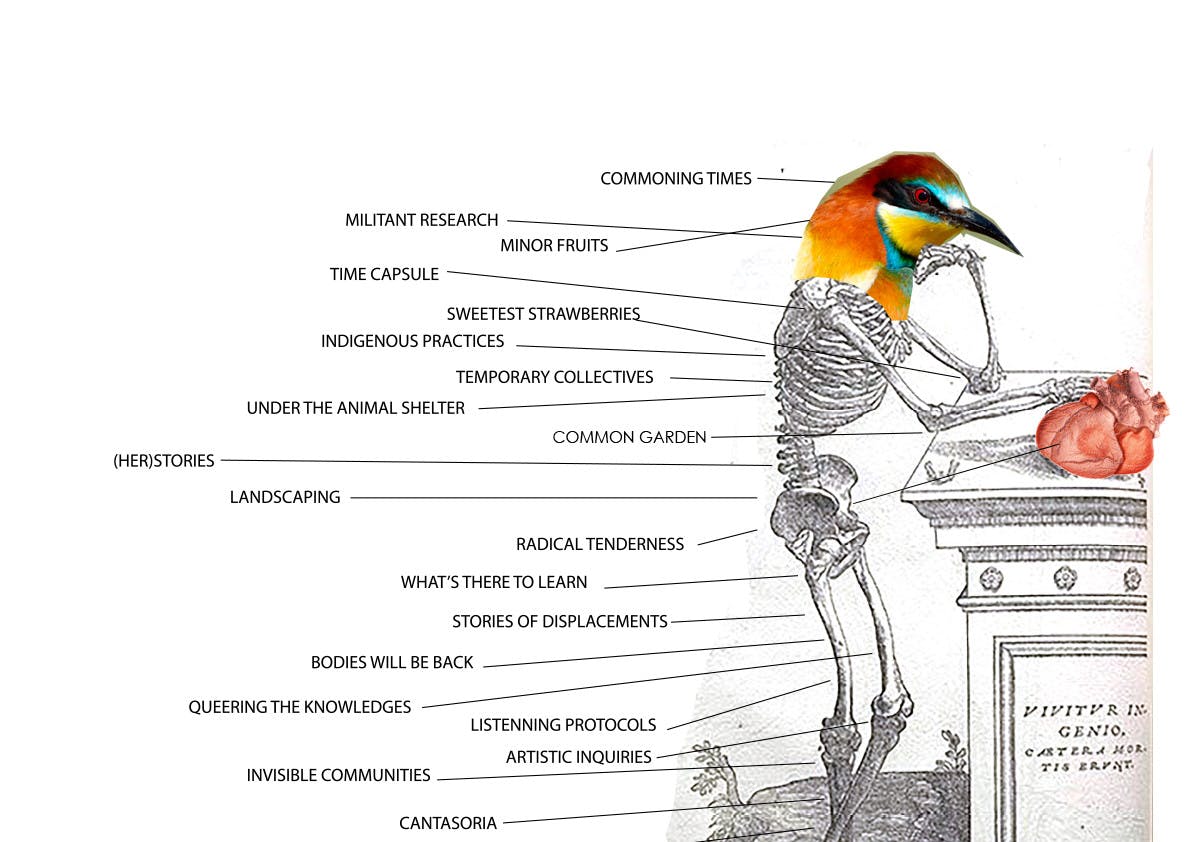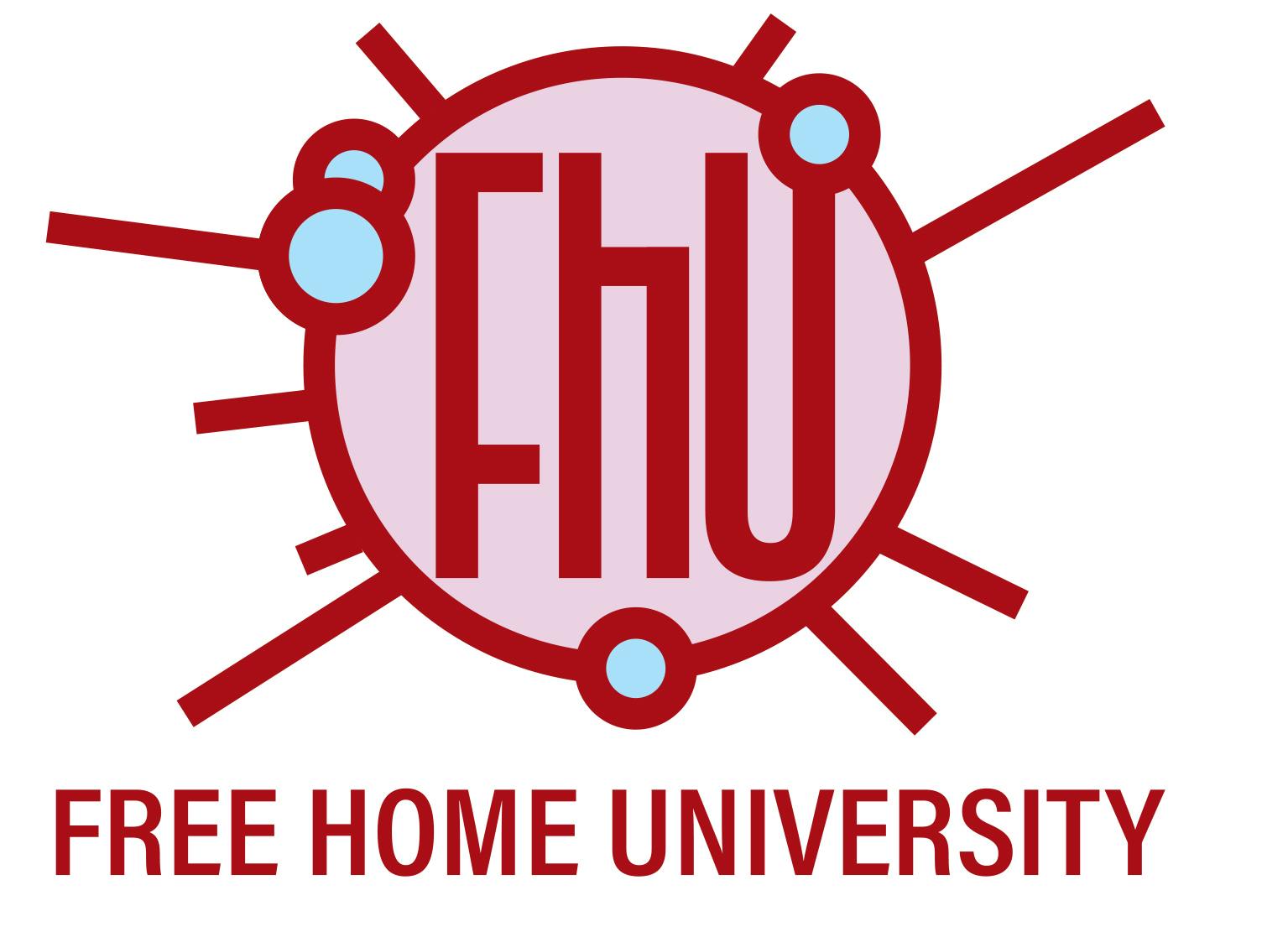Polit-Informatsia Under the Mango Tree
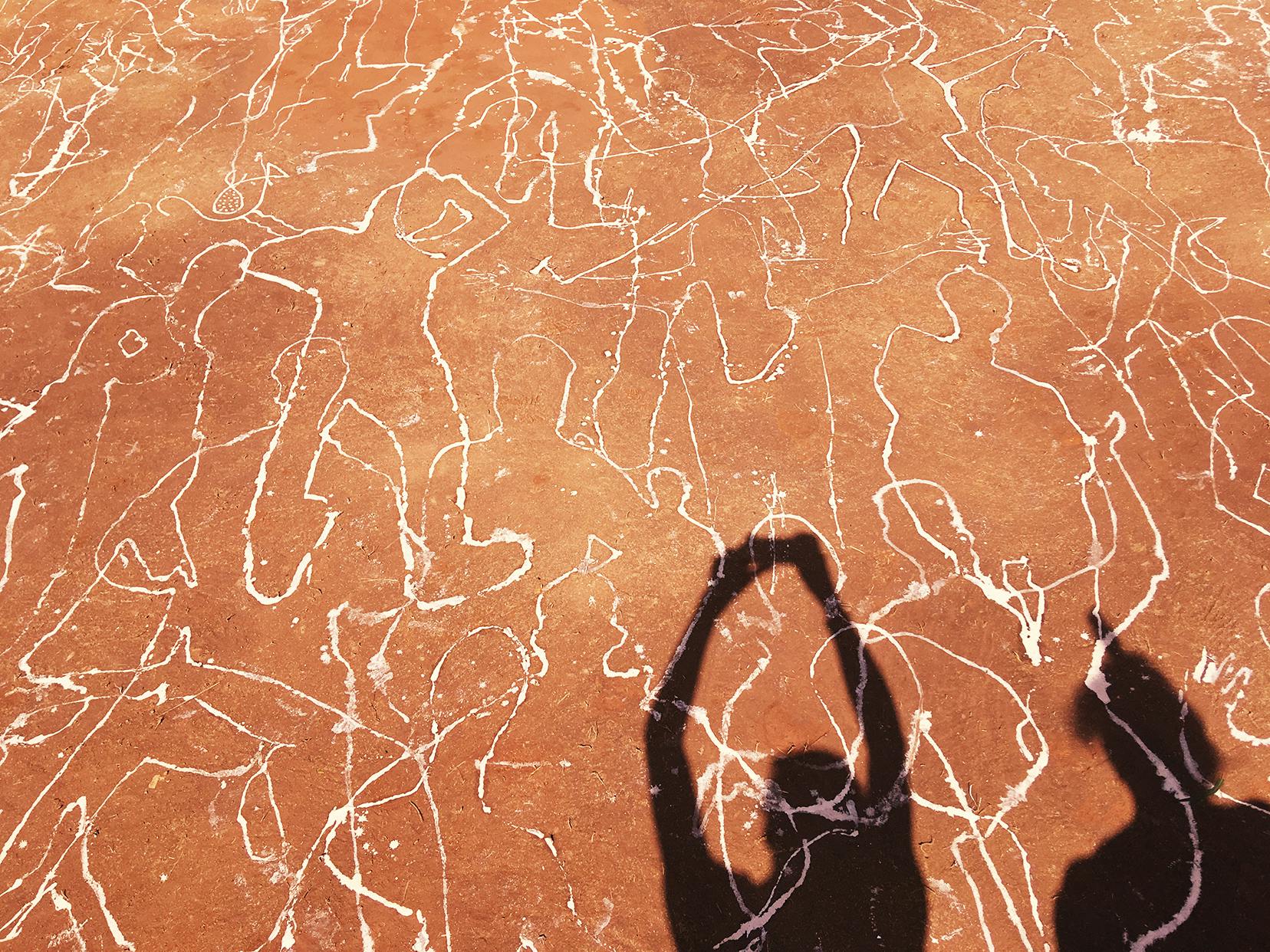
{In 2017 as the contributors to the first under the mango tree sat in the former waiting room of the Kassel Hauptbahnhof to discuss a possible future, many ideas were exchanged. Slow methods of postal correspondence, postcards to be written as a reminder of our time together and the promise that one day we would meet again. A pregnant pause sat heavy in the air as we all knew that when you have these moments of coming together - the mood is always hopeful but it's never known whether those energies will be enough. The reality of our everyday lives can render these moments as distant memories. Then an utterance. An invitation to make a gathering in Santiniketan - the very place that inspired under the mango tree. And so here we are - in a new configuration and a hope to shift our very beings by coming together}*
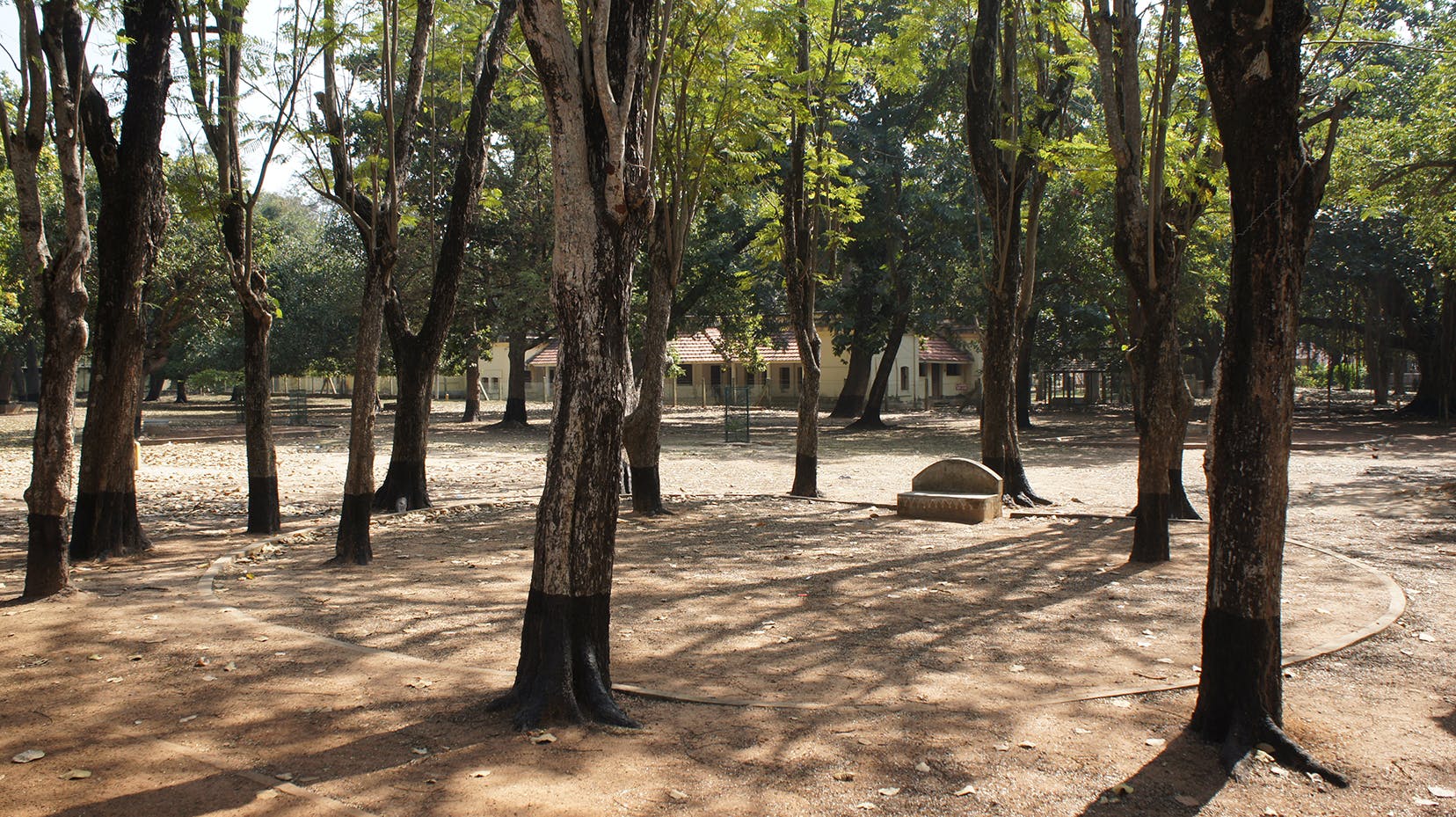
a typical open-air classroom at Visva-Bharati awaiting students
Free Home is enthusiastic to come back under the mango tree and take part in the second edition of this inter-spatial multi-pedagogical initiative. Hosted by Sepake Angiama, Tara Lasrado, and Sanchayan Ghosh who opened the gates of Visva-Bharati institute – a historical pedagogical experiment originated by Rabindranath Tagore a century ago in Santiniketan, Bengal.
In the spirit of opening spaces of learning, sharing practices, inspirations and politics in a generous, convivial way, we started with Sanchayan’s exercise with all participants casting their shadows under the bright morning sun in a large circle surfaced with red clay and cow-dung. We worked in couples, one person outlined the shadow of the other using a local traditional technique – a liquid mixture of white clay and raw rice paste. A monumental collective ornament, a group signature, an opening solar ensemble.
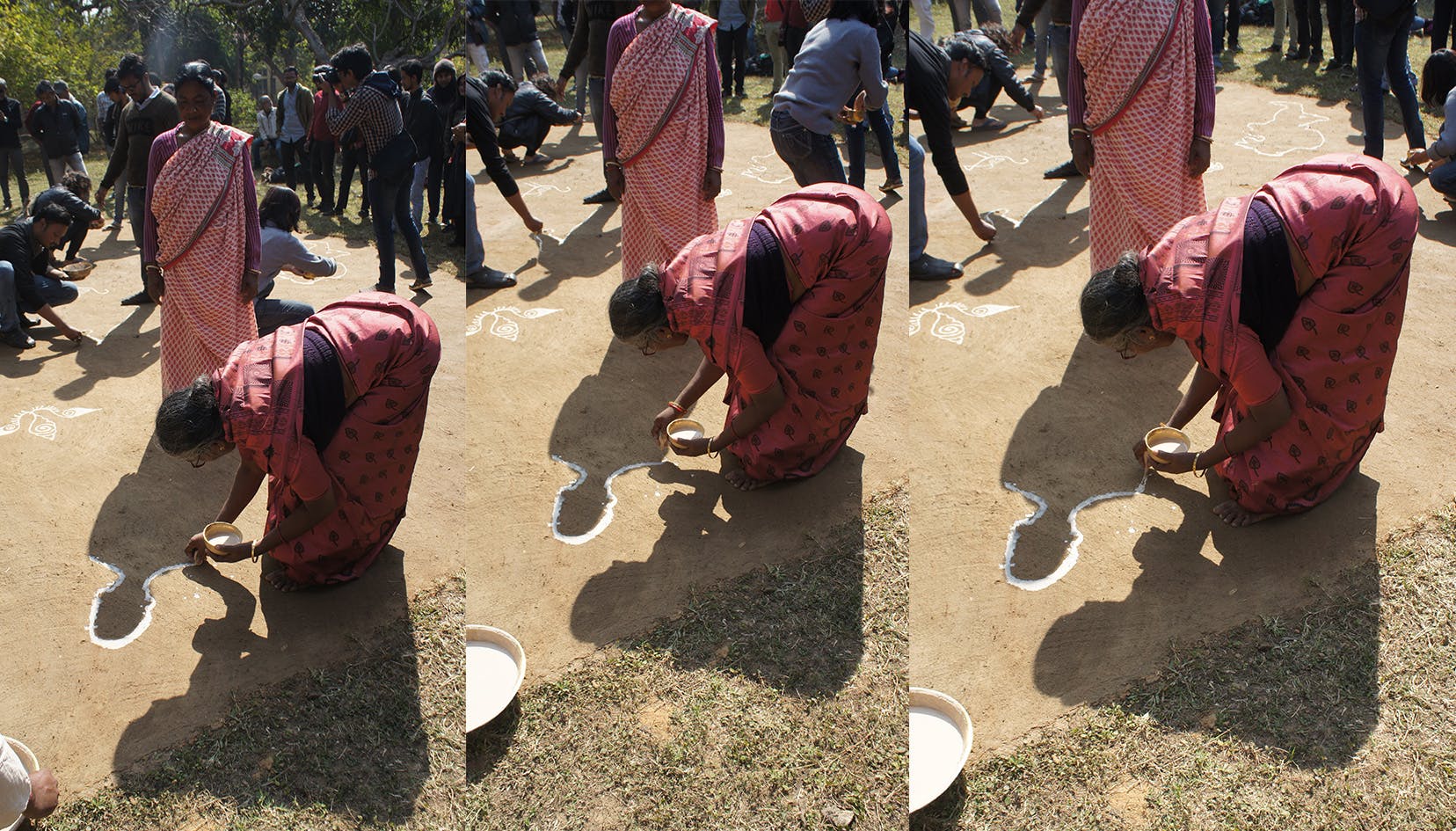
entangling our shadows
In the following five days, we were fulfilled with the flow of knowledges and practices, deep-diving conversations, free-falling discussions, all-night-long screening (with Abhijan Toto), 5 AM field trip (with Sharmila Samant), an ongoing indigenous ceramic atelier (with Jorge I. Gonzalez Santos, Rocío Tejada, Taylor Cruz), morning lectures on histories\legacies of Santiniketan (with Swati Ganguly and other faculties), tea-time debates, and collective grounding lunchtimes (by Dharitri Boro and her Indigenous and rural culinary culture in collaboration with Clare Butcher, care-givers and students of the University).
The whole dynamic of the gathering was sustained and uplifted by the students of Visva-Bharati, their profound engagement, fully-immersive curiosity. And everyone made their memorable contribution.
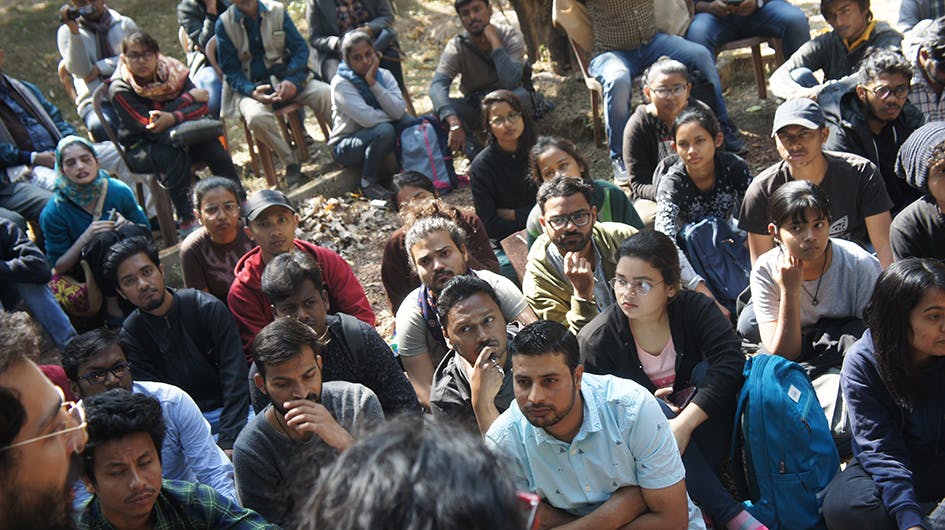
the classroom is now fully engaged
From Free Home Nikolay Oleynikov brought under that mango tree the practice of Polit-Informatsia. It is a daily exercise from Soviet-era schools, where students were required to report on the recent news and update their classmates before beginning class. This practice was introduced in the School of Engaged Art of Chto Delat and reinterpreted in Free Home University to critically inform the curriculum with the states of the world.
Under the mango tree Polit-Informatsia unfolded in four chapters\exercises:
Chapter 1. Introduction
Polit-Informazzia was launched in conjunction with Menakshi Thirukode’s Feminist Syllabus. Being an engaged activist Meenakshi informed the group about the ongoing student \ civil unrest in India, specifying on the role of women at the core of it by reading and analyzing a call for action published by #PinjraTod - a feminist activist group from New Delhi who inspired many.
The group of students and researchers that followed the learning program of Sharmila Samant contributed a lot throughout the course of Polit-Informatsia. While studying in depth the local ecosystem with the focus on the means of distribution of water resources they came up with their embodied experiential inputs.
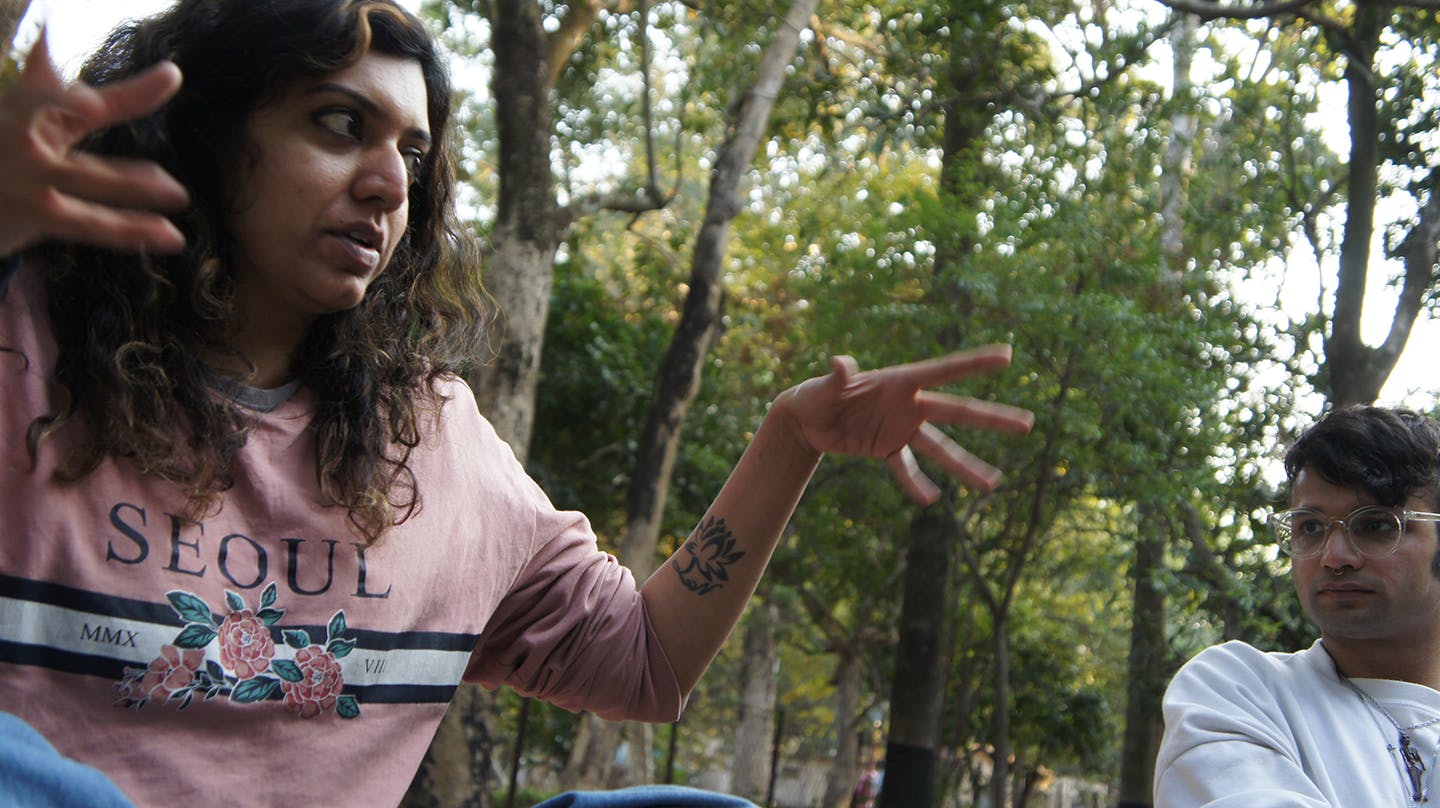
Meenakshi informs the group about the principal role of women in the recent protest movement in India
Chapter 2. News from the Past
Participants brought personal examples of historical or\and ongoing political and civil movements they feel related to. Many stories from the village in Kashmir to the borders of Assam and Bengal, from Bangkok to Shies station, from India to Pakistan and beyond were (not) coincidentally introduced through sound pieces – songs of protest and resistance and the rich stories behind them.
Chapter 3. Registration in Space and Time
This exercise is featured in the film The Excluded. In a Moment of Danger by Chto Delat (2014) where participants introduce themselves referring to a significant event in time and a significant point in space that bring them to be present, - here and now.
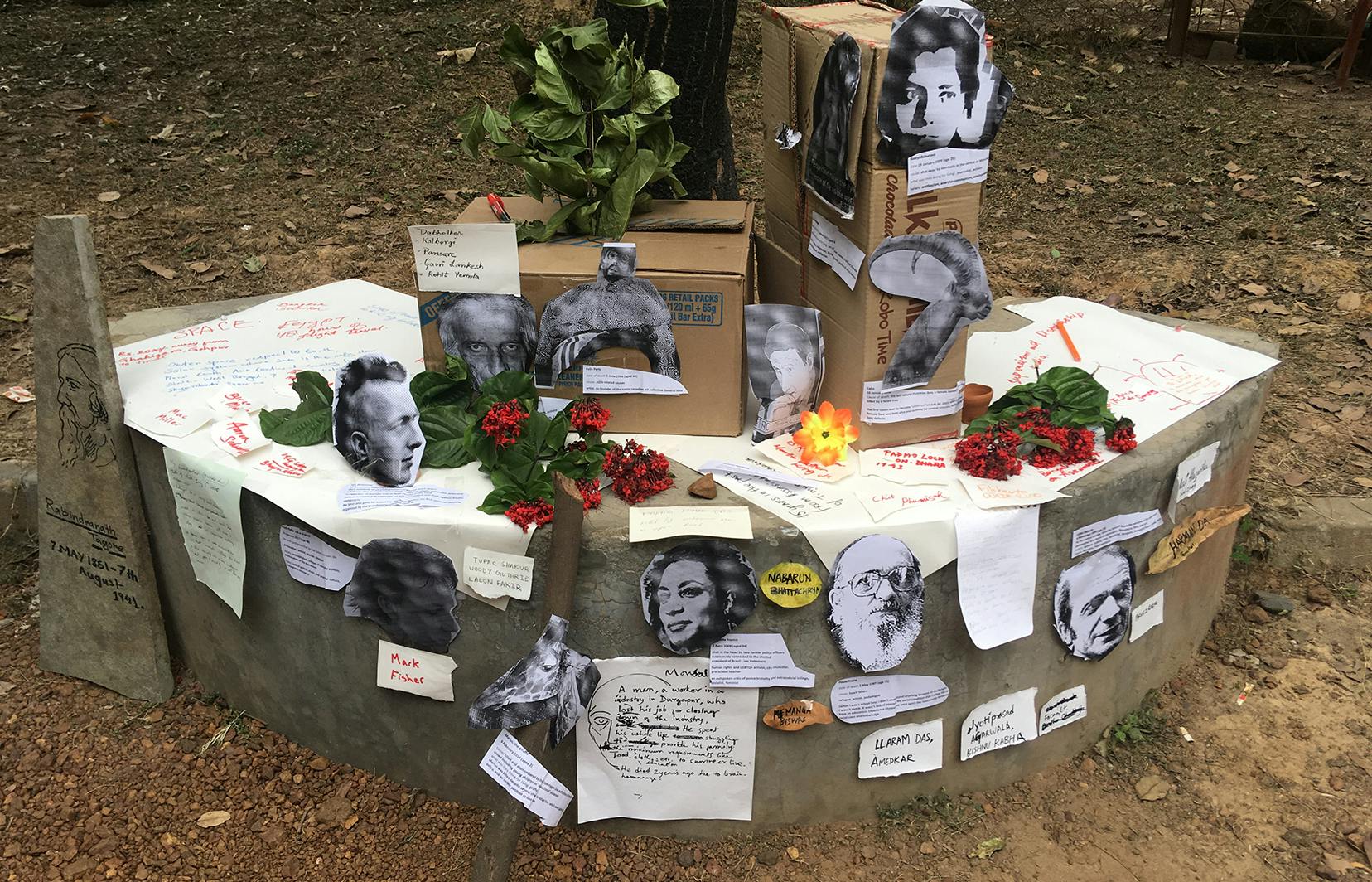
Chapter 4. Altar to our Teachers
To exercise a Politics of Commemoration in the learning context of the Gathering, the participants were invited to build a temporary altar to those pedagogues who have inspired, transformed, and influenced our pathways. The exercise, originated in self-organised antifascist and feminist workshops to make props for political rallies was then introduced in both Free Home and Chto Delat’s practices. In January 2020 Chto Delat presented an altar as a part of Times, Lines, 1989s – a solo show at Khoj Artists’ Space in New Delhi. And Free Home offered the exercise for Dia de los Muertos during the Ecoversities Alliance Global Gathering in November 2019 in Michoacan, Mexico.
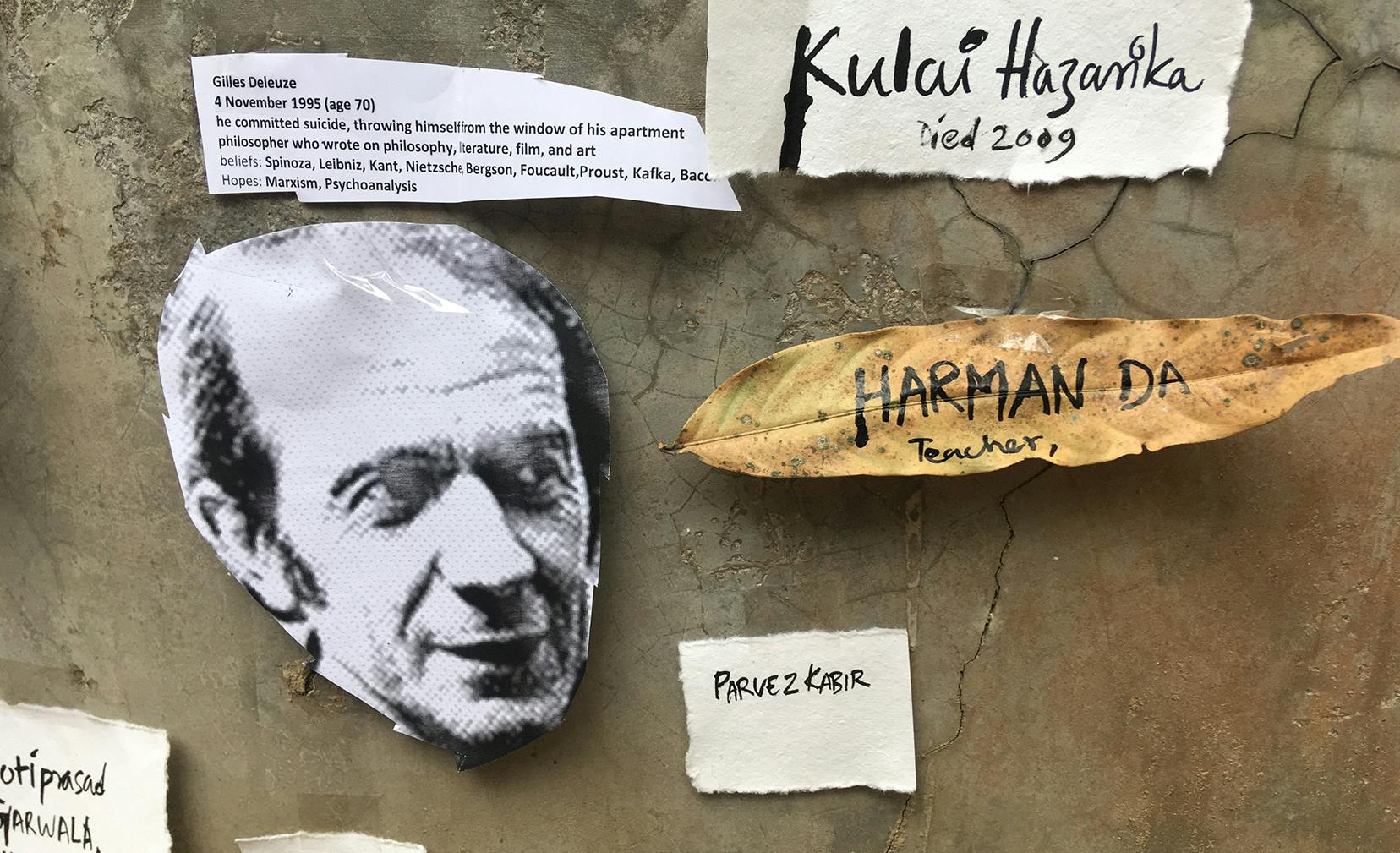
Harman Da, Gilles Deleuse, Parvez Kabir and other teachers
This practice is a way in which we share stories otherwise untold, remembering those who were examples of courage, dedication and resistance - we evoke activists and philosophers, poets and grandmothers, desaparecidxs and desobedientxs, reciting their names, poems, or singing their songs in Bengali, Spanish, and Hindi.
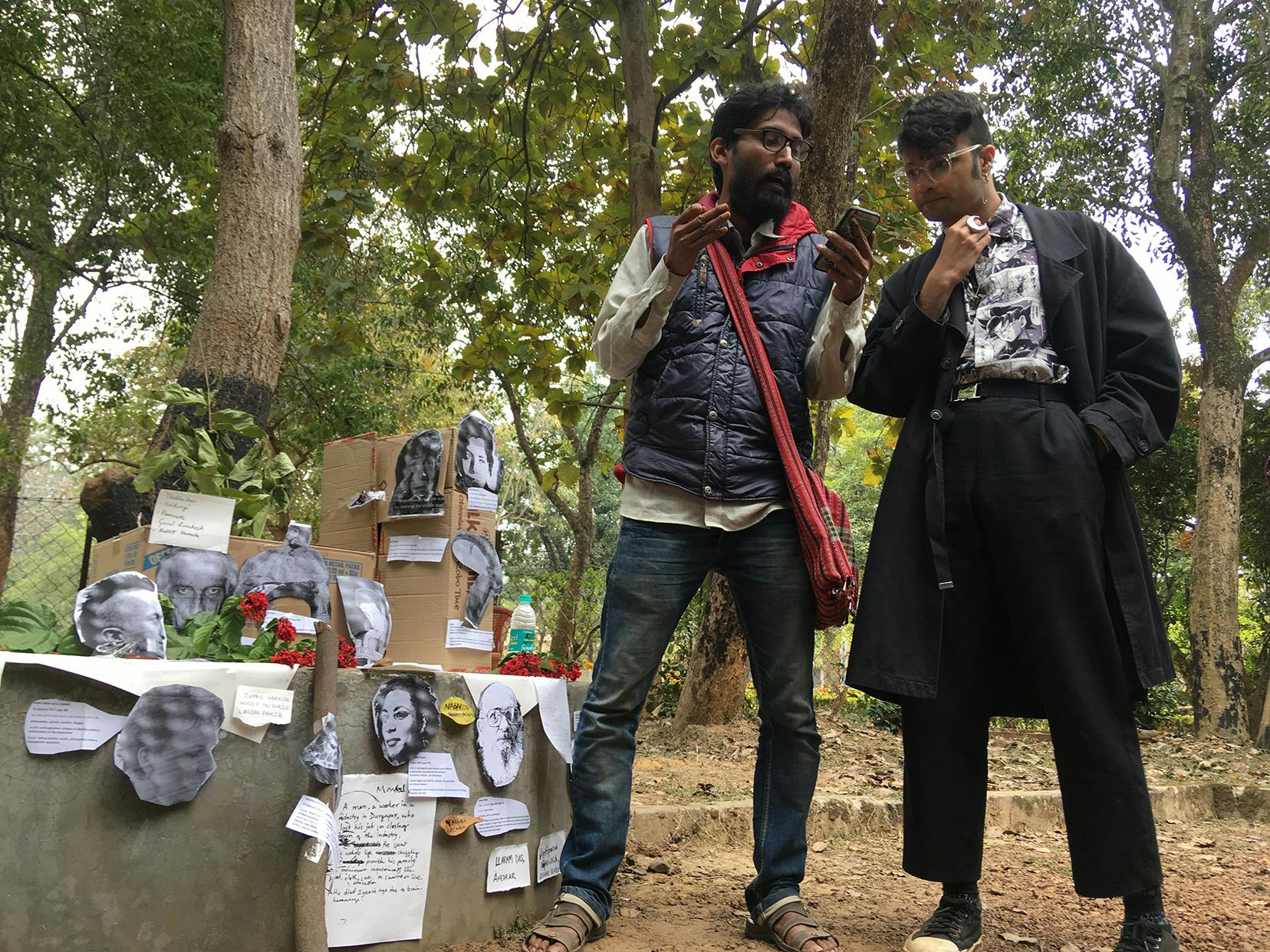
Bhaskar Hazarika recites the poem of Nabarun Bhattacharya. Abhijan translates from Bengali
On our last morning, we started on the patio of the Library of Visva-Bharati. Two learning streams had fused together: those who followed Polit-Informatsia joined the Drifting Classroom of Vincent Tao for a common exercise. During a three-day course participants of the Drifting Classroom made their consequent steps towards a manifesto. Analyzing and deconstructing the language of existing artistic\political manifestos they then focused on two levels of demands, inspired by Bread and Roses – a famous feminist anthem from the 1930's. The first level: Bread - our basic necessities. The second – Roses – perhaps more abstract, though essential to fight for. That last morning, the participants were invited to state their demands, which brought them to underline the economical, physical, psychological and political conditions of being students in India, and more precisely – at Santiniketan 100 years after Tagore.
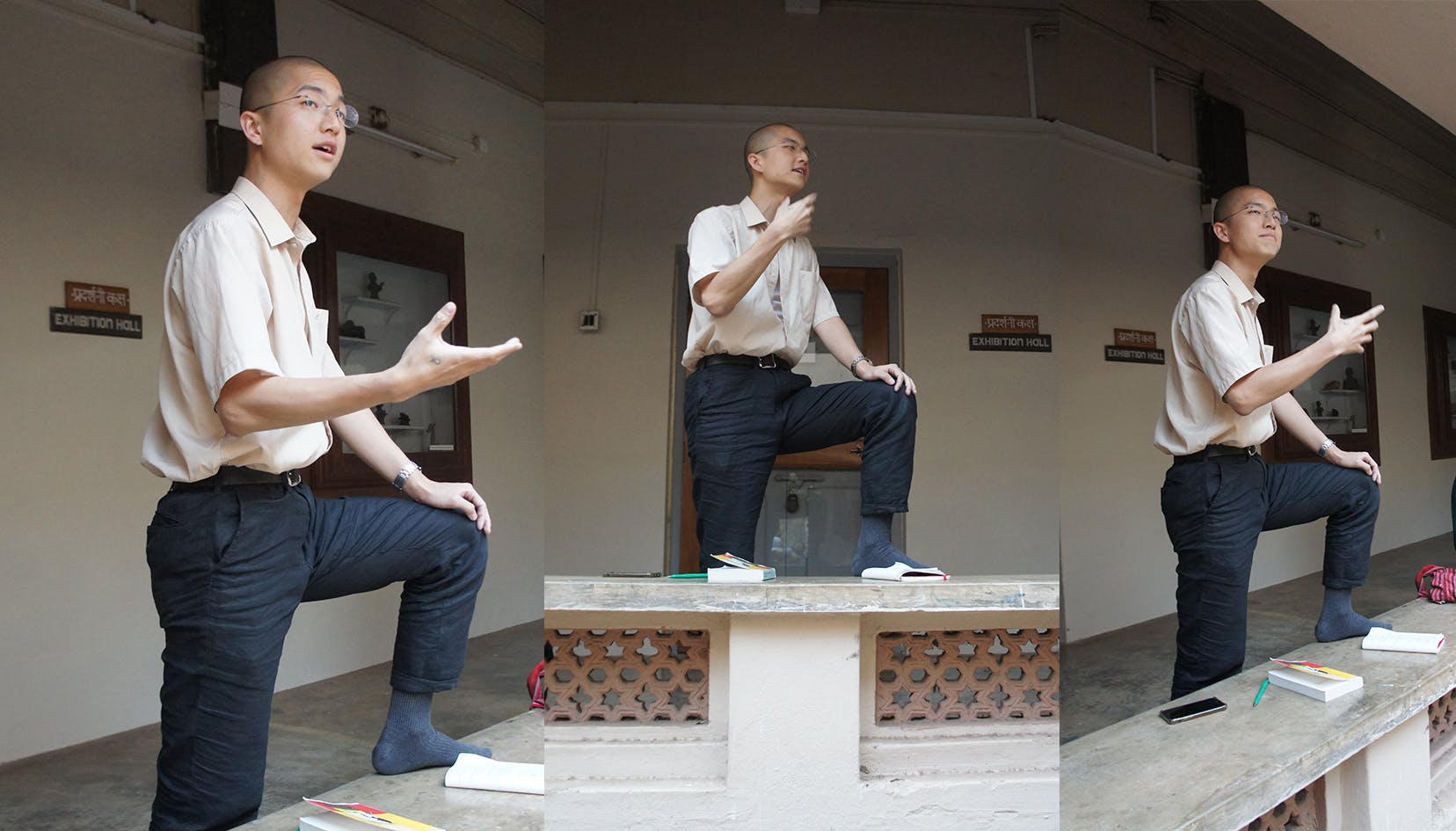
Vincent agitating from the Library's tribune
contributors:
Sepake Angiama / iniva / the slow insitute (London)
Dharitiri Boro / Visva Bharati (Santiniketan)
Clare Butcher (Toronto)
Alberto Cissello / Cielaroque (Vienna)
Taylor Cruz / Escuela de Artes Plásticas (Bayamón)
Pulak Dutta (Santiniketan)
Anshuman Dasgupta / Visva Bharati (Santiniketan)
Swati Ganguly / Visva Bharati (Santiniketan)
Sanchayan Ghosh / Visva Bharati (Santiniketan)
Jorge I. Gonzalez Santos / Escuela de Oficios (San Juan)
Eun Sun Huh with the Harvest School (Paris)
Carmen José (Rotterdam South/Madrid)
R Siva Kumar / Visva Bharati (Santiniketan)
Tara Lasrado / the slow insitute (Zürich)
Nikolay Oleynikov / Free Home University + School of Engaged Art Chto Delat (Leningrad/Salento/Brooklyn)
Dharmendra Prasad / Harvest School (Assam/Bihar)
Sharmila Samant / SN University Noida (Bombay)
Thasil Suhara Backer with the Harvest School (Thrissur)
Vincent Tao / The Drifting Classroom (Vancouver)
Meenakshi Thirukode / Instituting Otherwise (New Delhi)
Rocío Tejada / Escuela de Artes Plásticas (San Juan)
Abhijan Toto / The Forest Curriculum (Bangkok/Seoul)
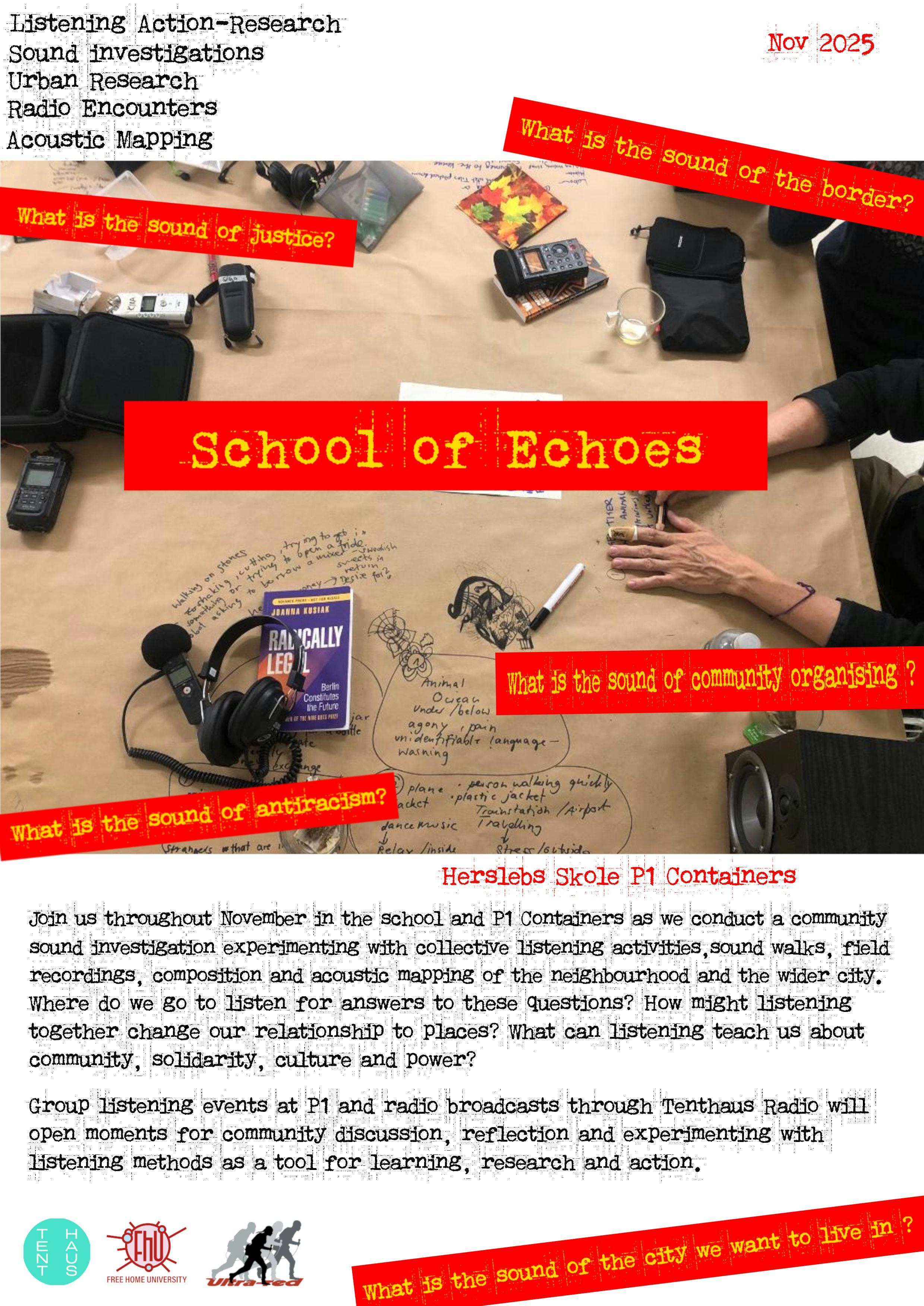
School of Echoes @ TentHouse, Oslo
FHU in residency in Norway
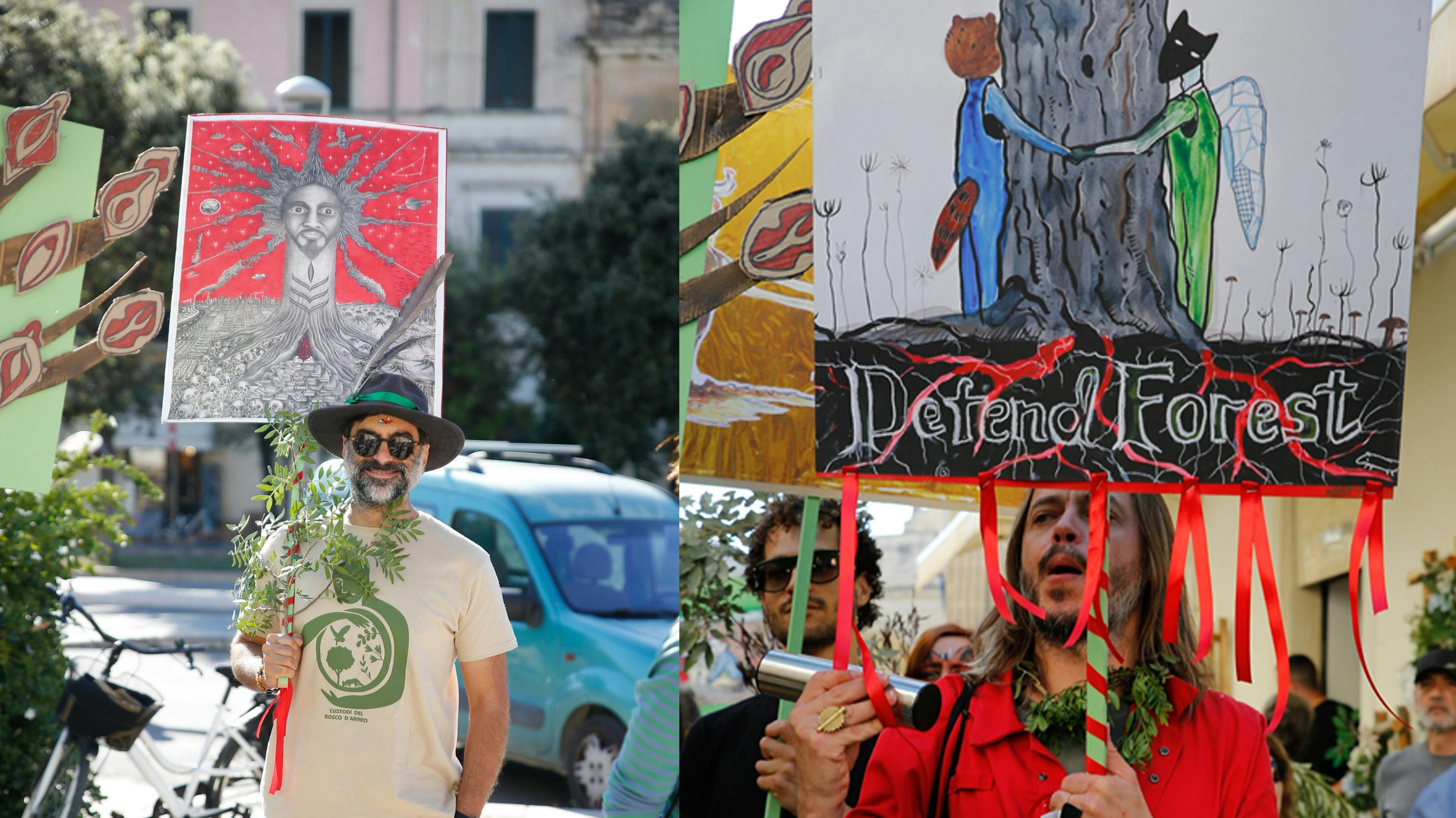
What role can art play in political activism? @ Museum Tinguely, Basel
Thursday, 4 December 2025, 7:30 pm
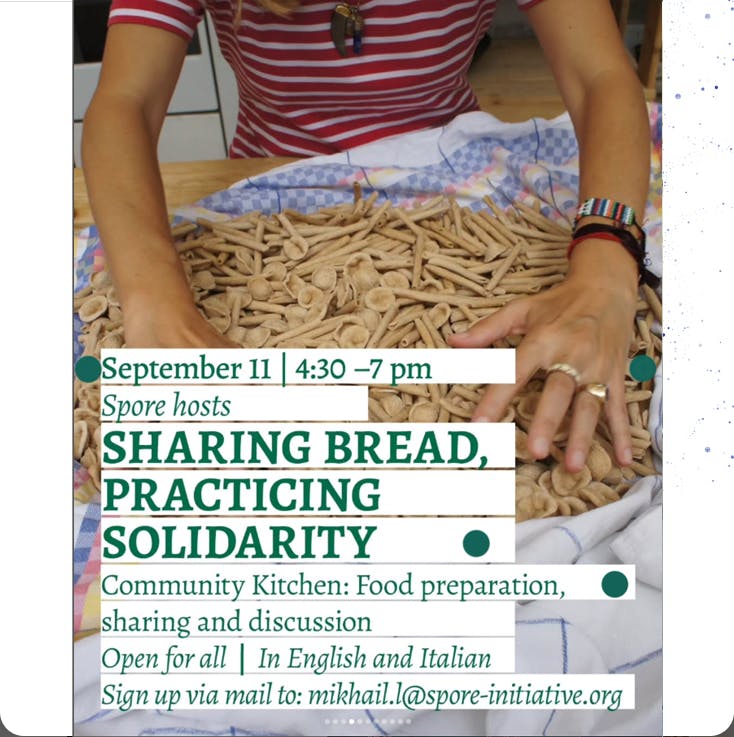
SHARING BRED, PRACTCING SOLIDARITY @ Spore initiative, Berlin
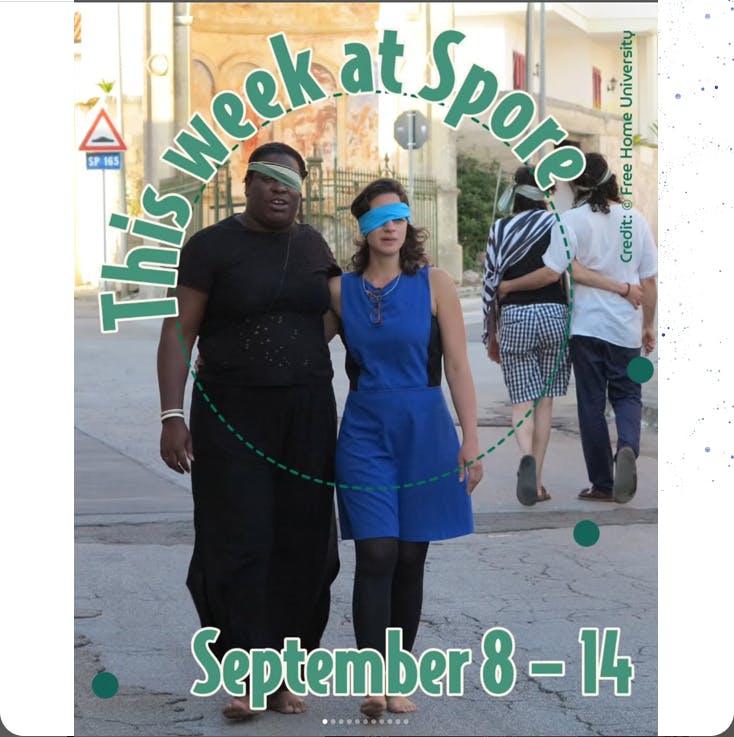
IN THE CRACKS of LEARNINGS @ Spore Initiative, Berlin
announcement
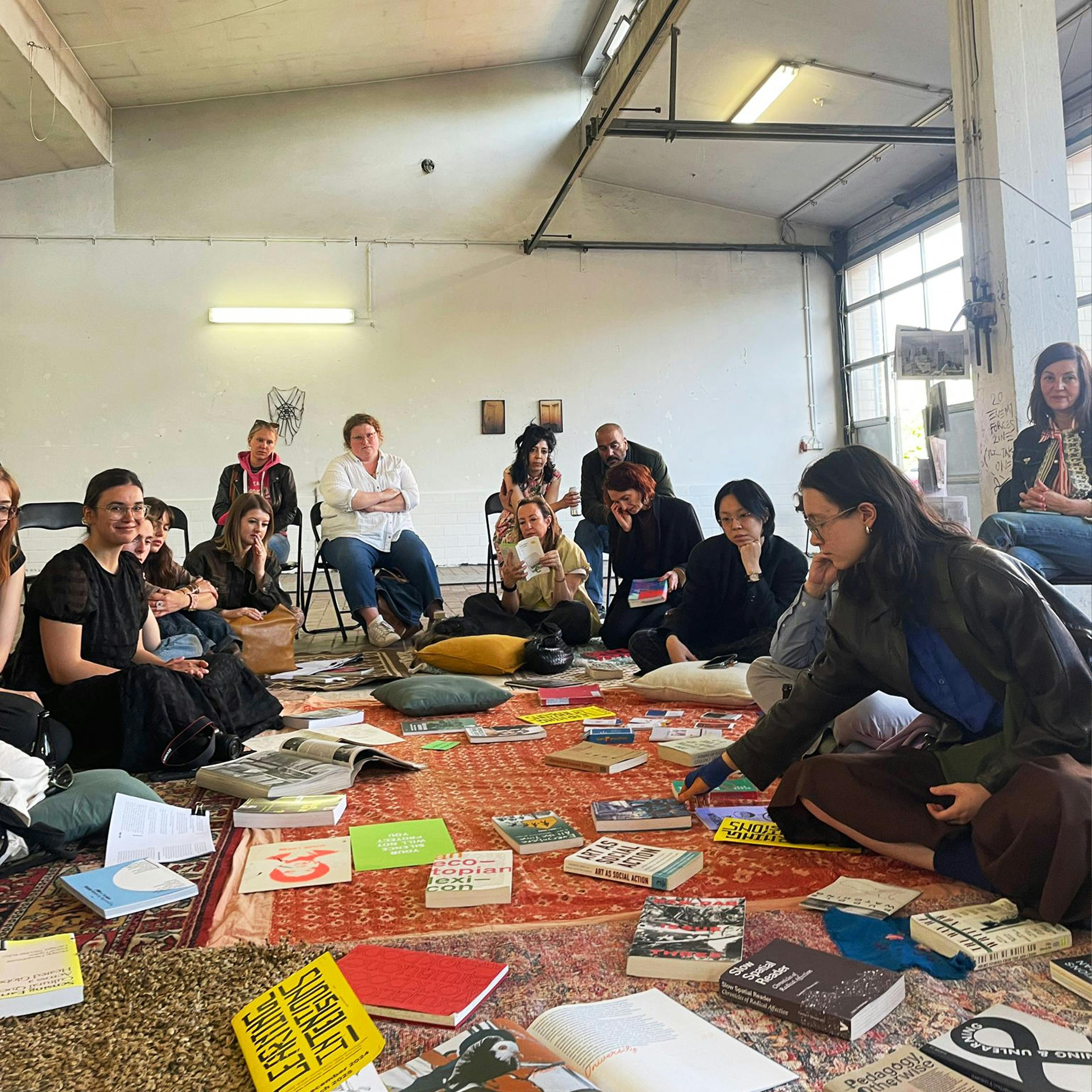
(Dis)Organizing Otherwise@Bard College Berlin
Free Home's Drifting Library at Bard College Berlin convened and carefully curated by Elisa R. Linn took place on May 9.
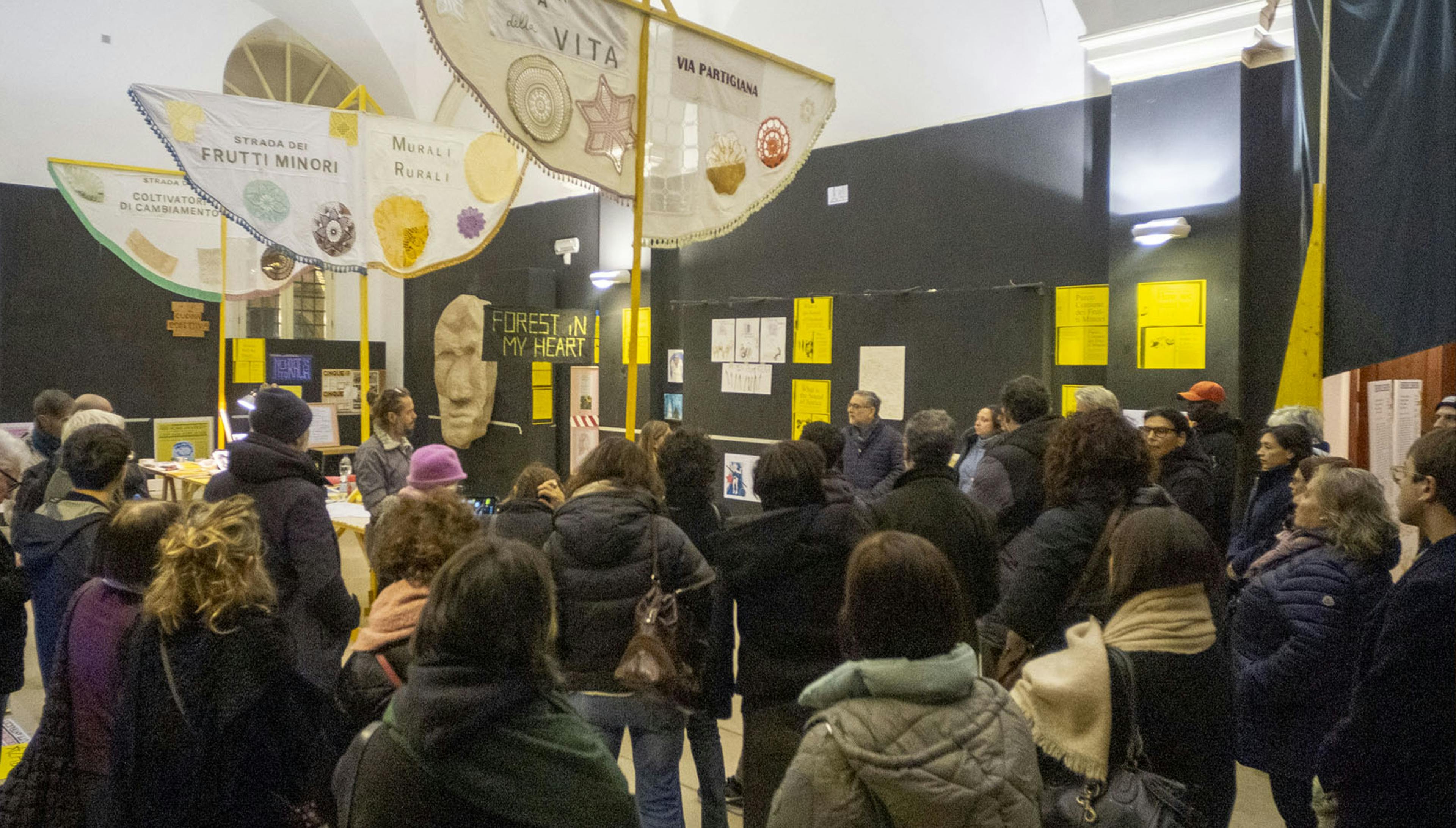
LEARNING INTENTIONS / LEARNING IN TENSIONS an exhibition @ San Francesco della Scarpa, Lecce
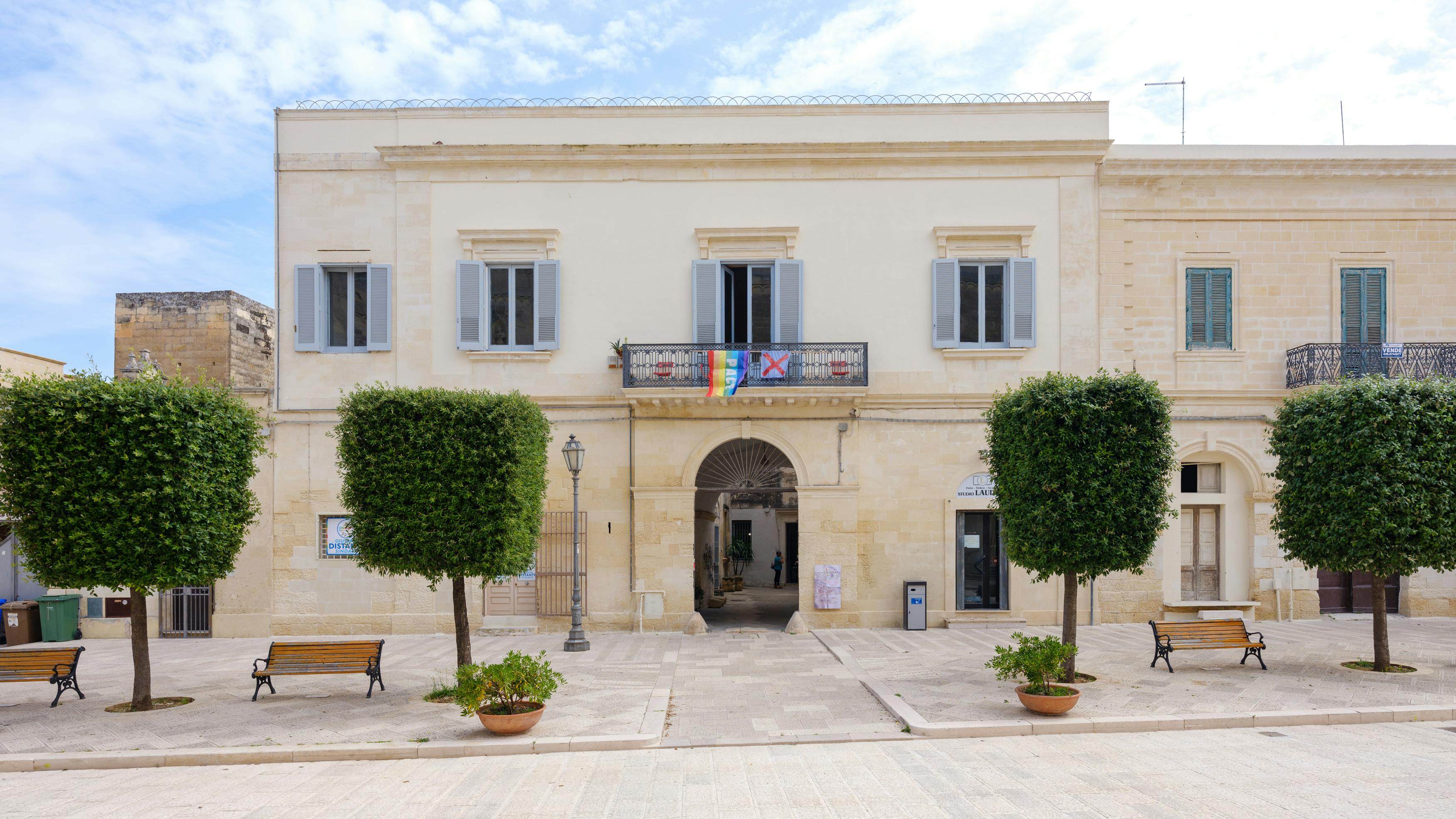
Simultaneous Arrivals in Residence at LoopHouse
Art Residency in San Cesario for a group of sound- and visual artists, scientists, and architects
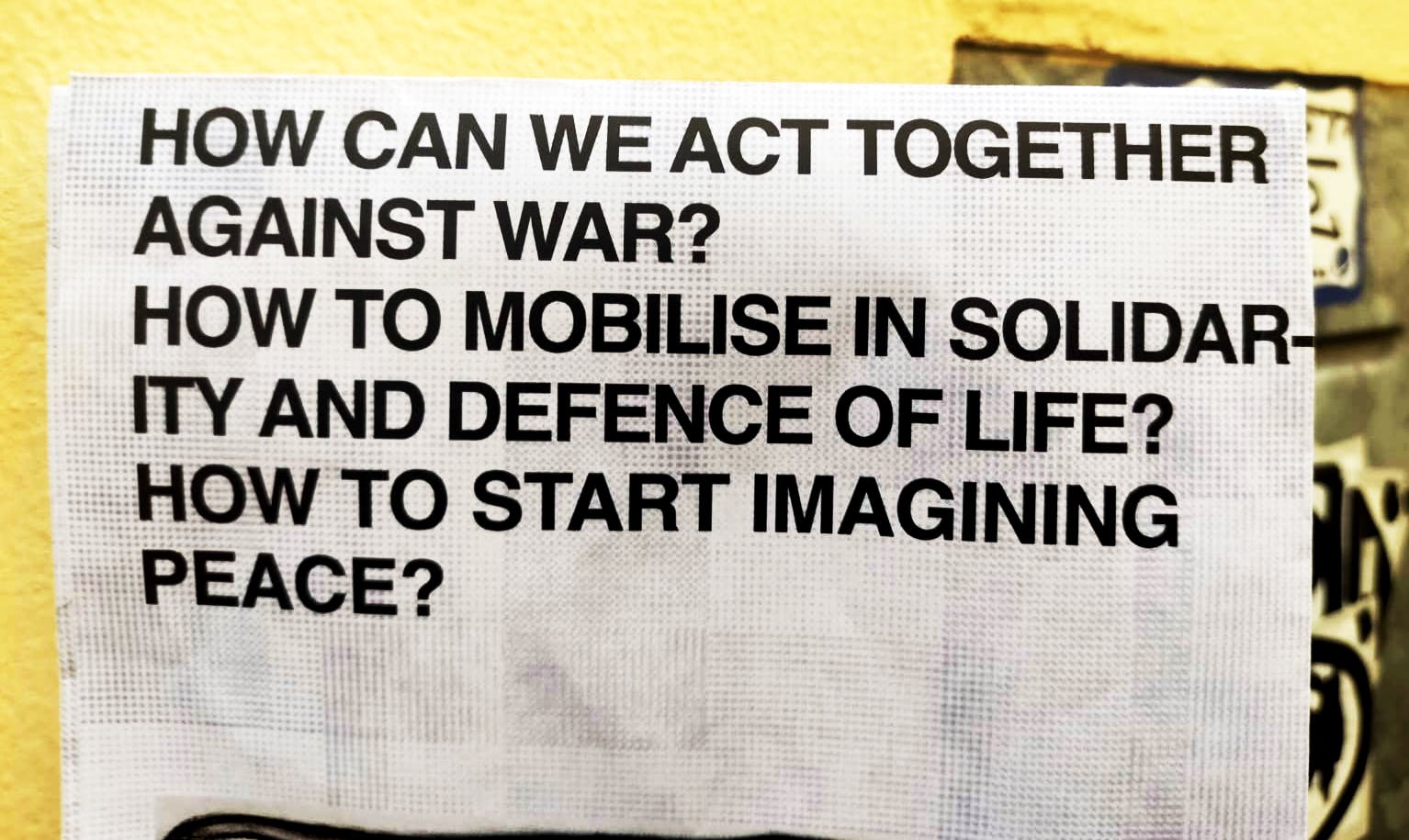
ASSEMBLY Against War in the Midst @ArsElectronica, Linz
World Artists' Agency Against War | KunstUni
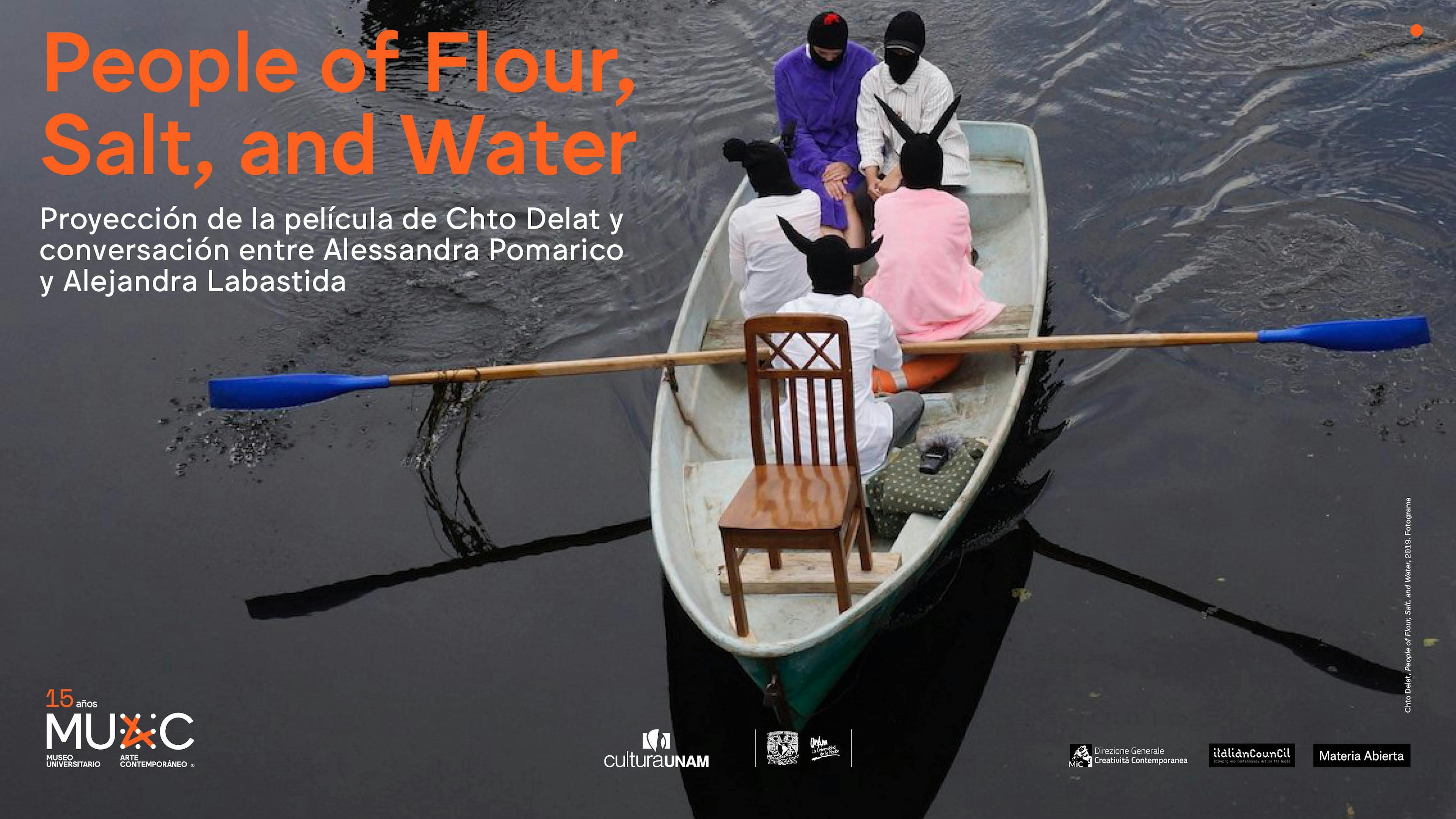
People of Flour, Salt, and Water @MUAC, MEXICO
Film Screening + Public Talk \w Alejandra Labastida & Alessandra Pomarico
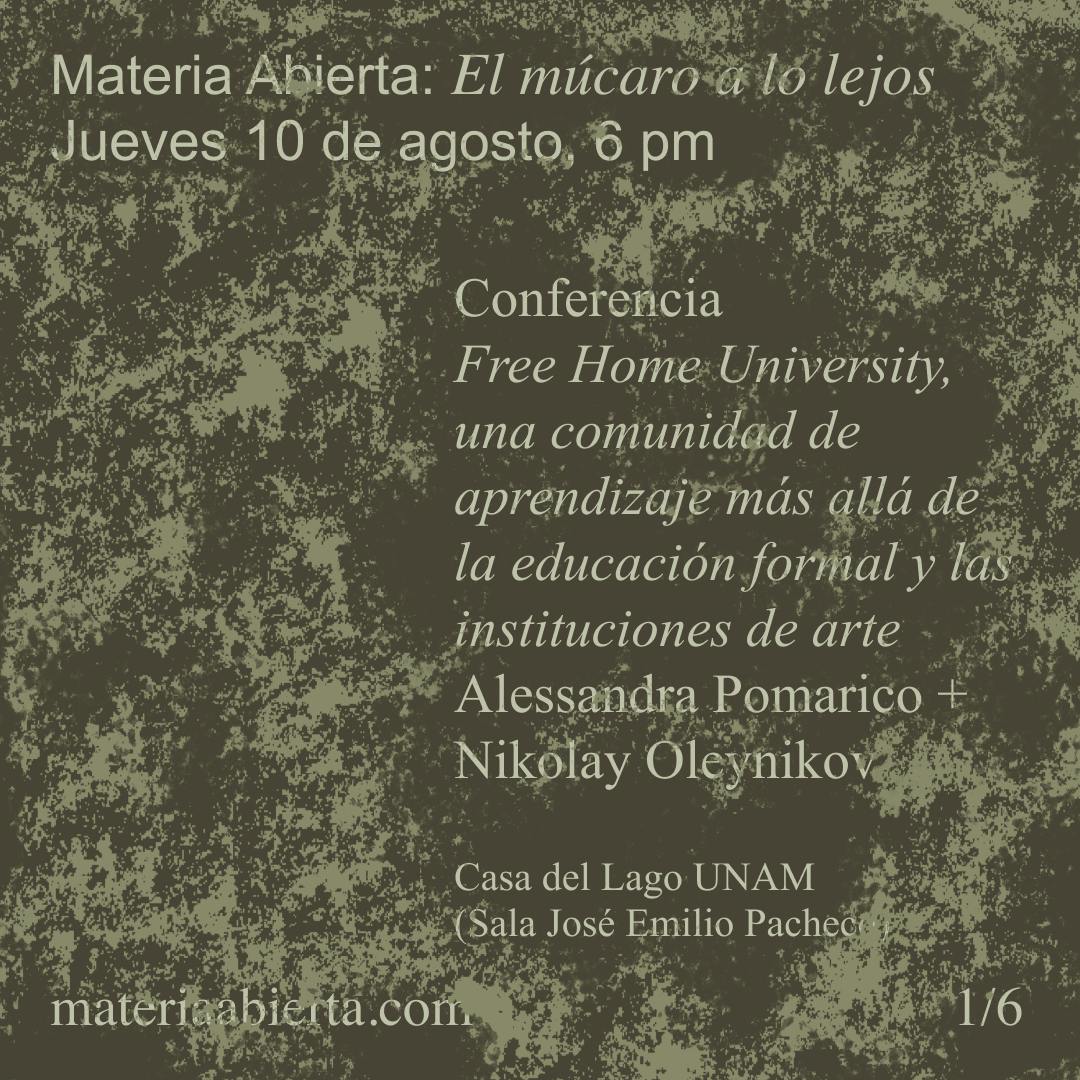
EL MÚCARO A LO LEJOS program for MATERIA ABIERTA, MEXICO
What Is the Sound of Contested Space?
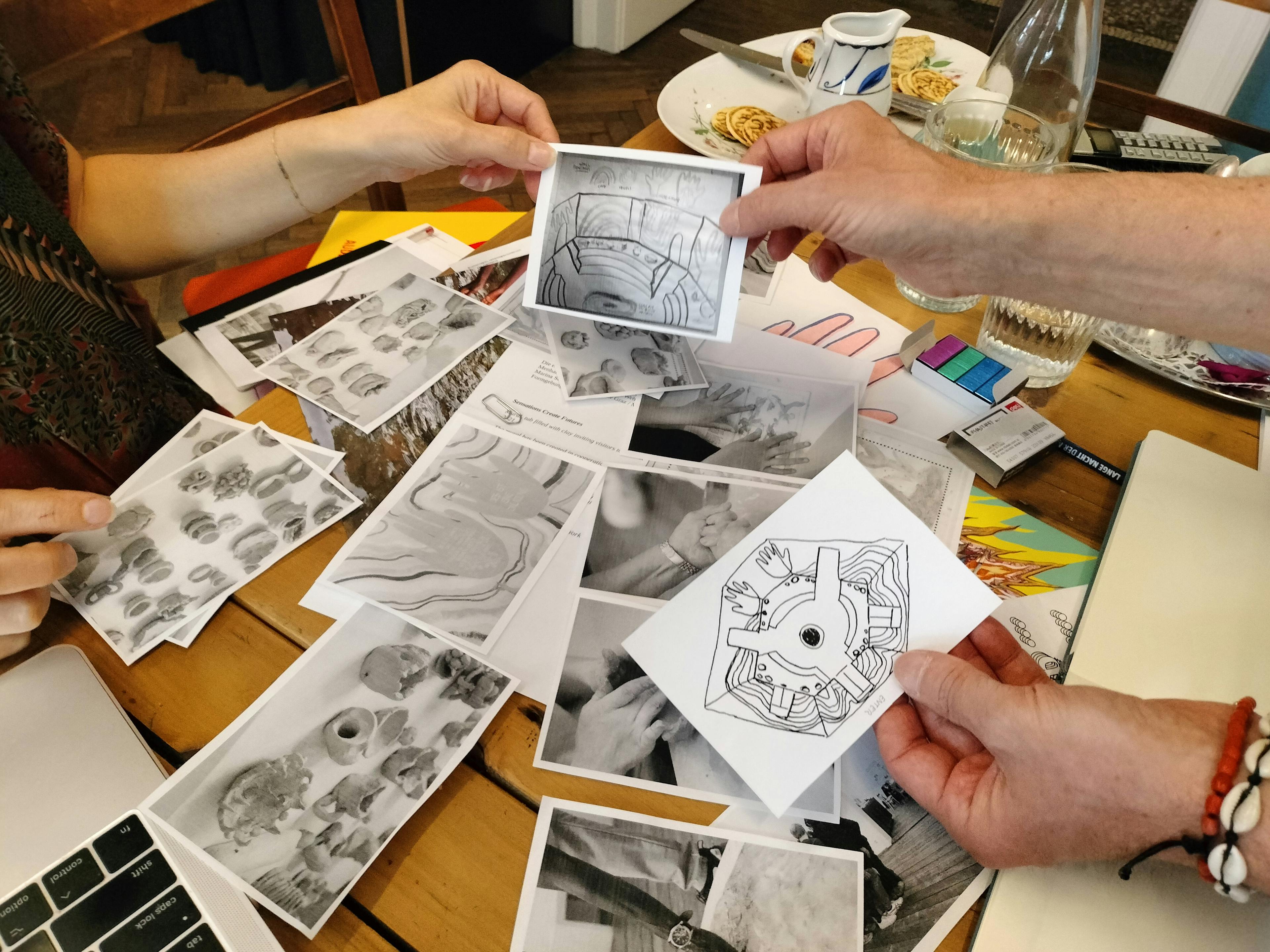
School of the WE | Editorial Meeting @ <rotor>, Graz
June 23-25
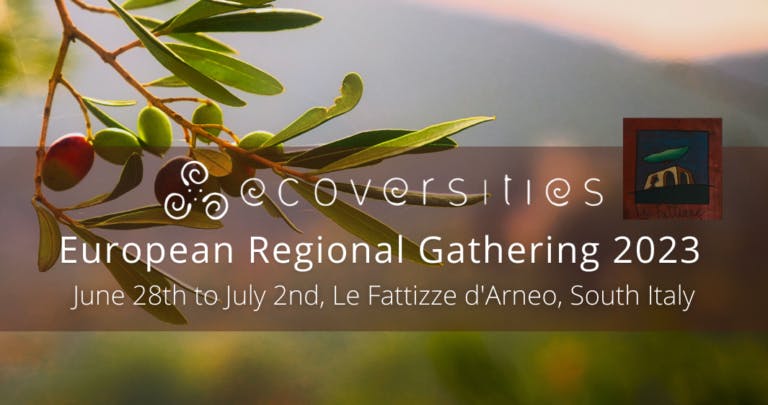
Ecoversities Gathering | Regione Europae | chapter 2
Le Fattize d'Arneo, Salento
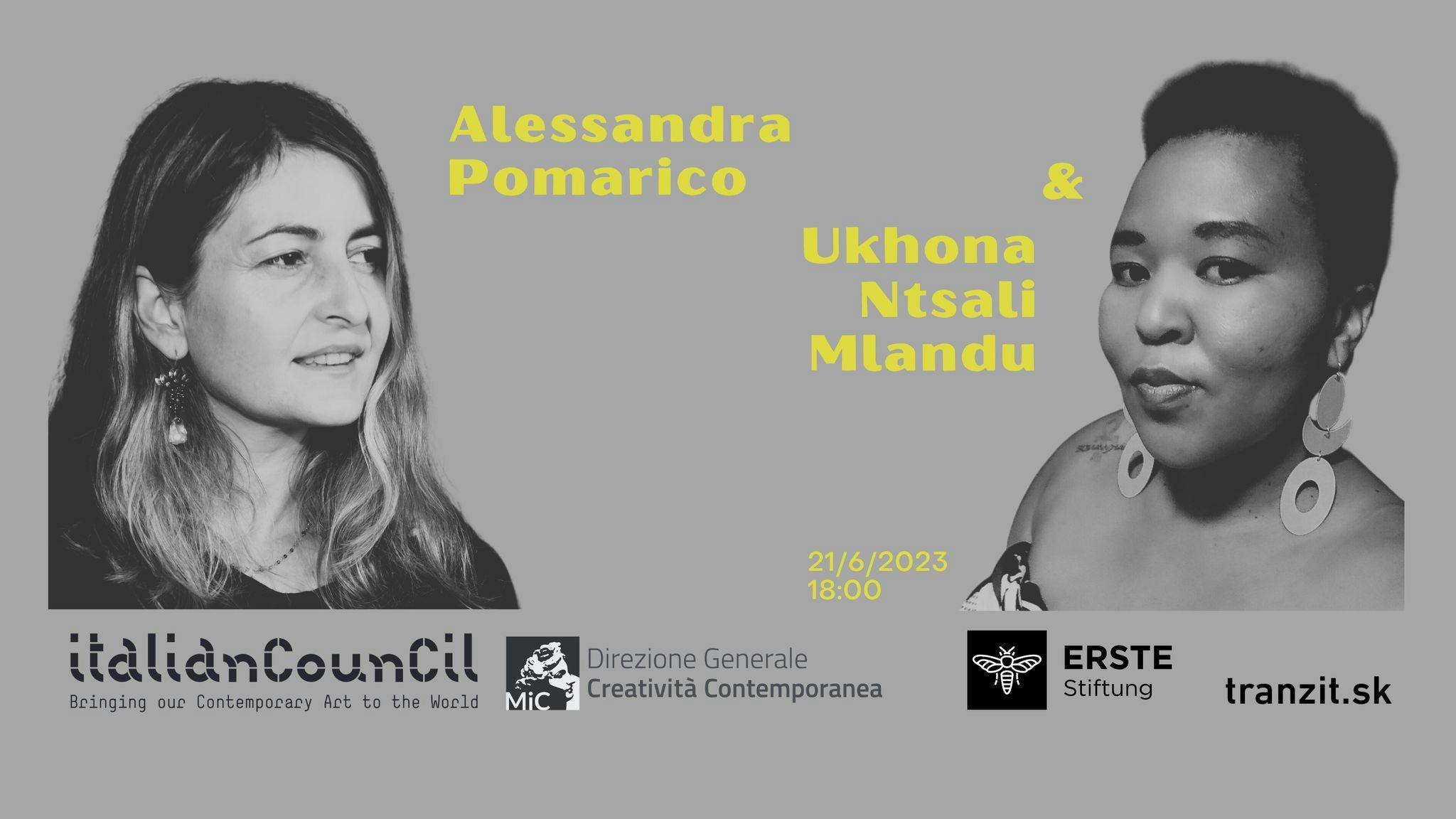
CURATORIAL PRACTICES at the INTERSECTION of COMMUNITY BUILDING, LEARNING PROCESSES, and POLITICS of EVERYDAY LIFE @tranzit.sk
a conversation between curators Ukhona Ntsali Mlandu and Alessandra Pomarico

Expanding Our Wor(L)ds @ <rotor>, Graz
series of events with Alessandra Pomarico
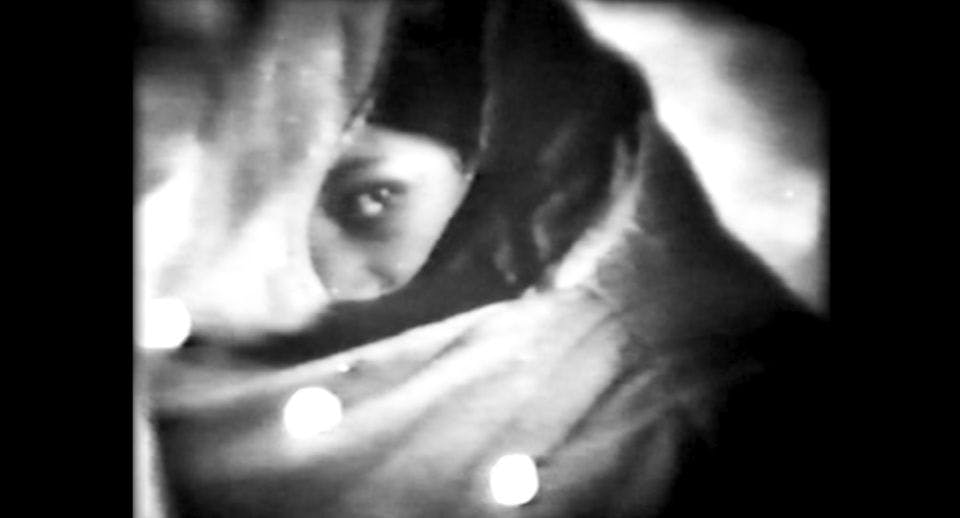
MAKING the INVISIBLE VISIBLE | Saodat Ismailova & Alessandra Pomarico @tranzit.sk
online discussion
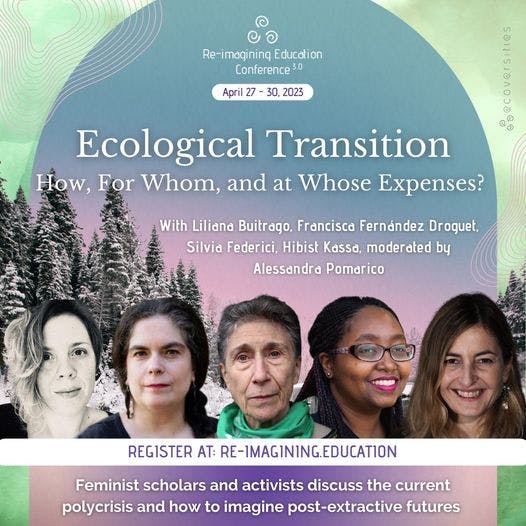
ECOLOGICAL TRANSITION: How, for Whom, and Whose Expenses? @Re-Imagining Education Ecoversities Festival

READING as a SUBVERSIVE PRACTICE: a series of exercises with Free Home University and Dreaming in Women* @ halle-fuer-kunst, Lueneburg, Germany
01:04 @ halle-fuer-kunst, Lueneburg, Germany
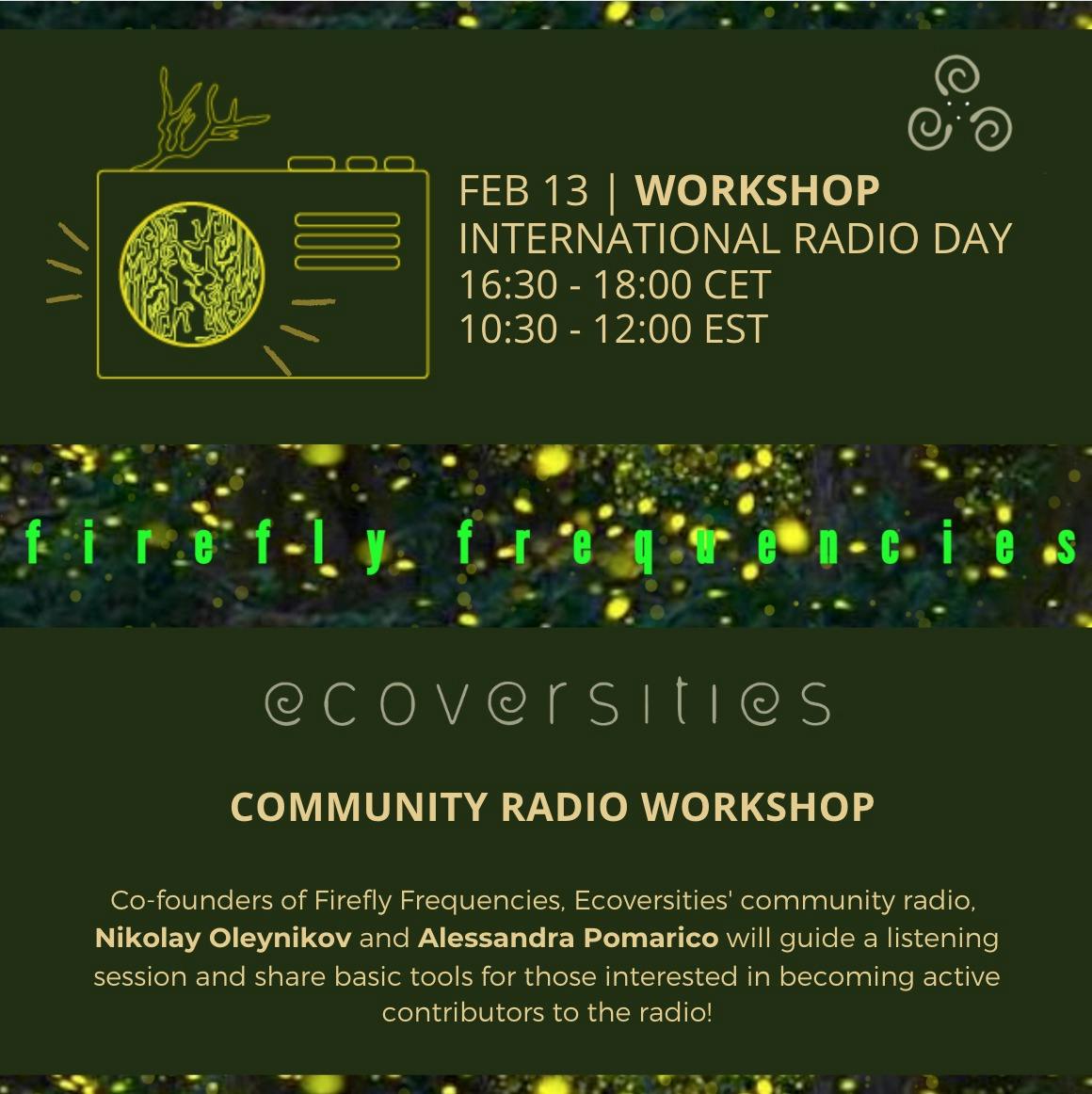
RADIO DAY | firefly frequencies @ ecoversities
listening | learning | resonating
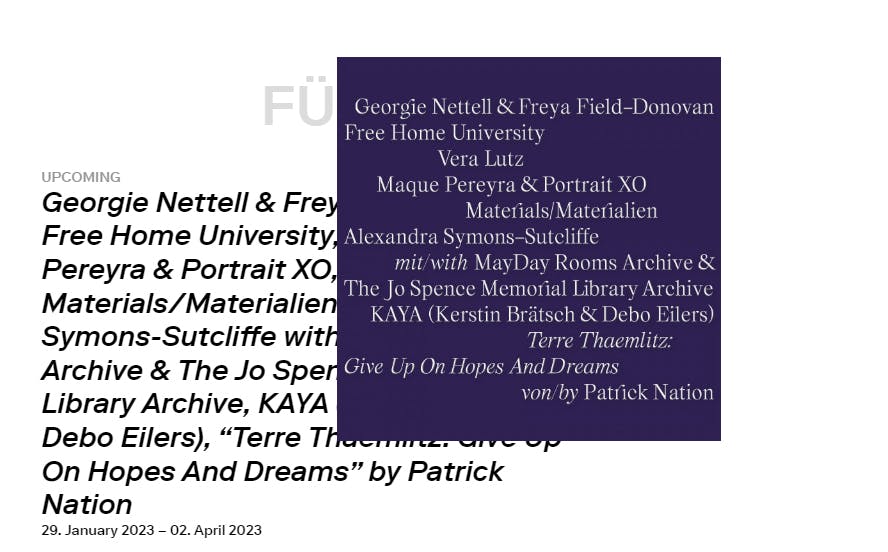
FHU w/FFF in HALLE FÜR KUNST LÜNEBURG
29. January 2023 – 02. April 2023
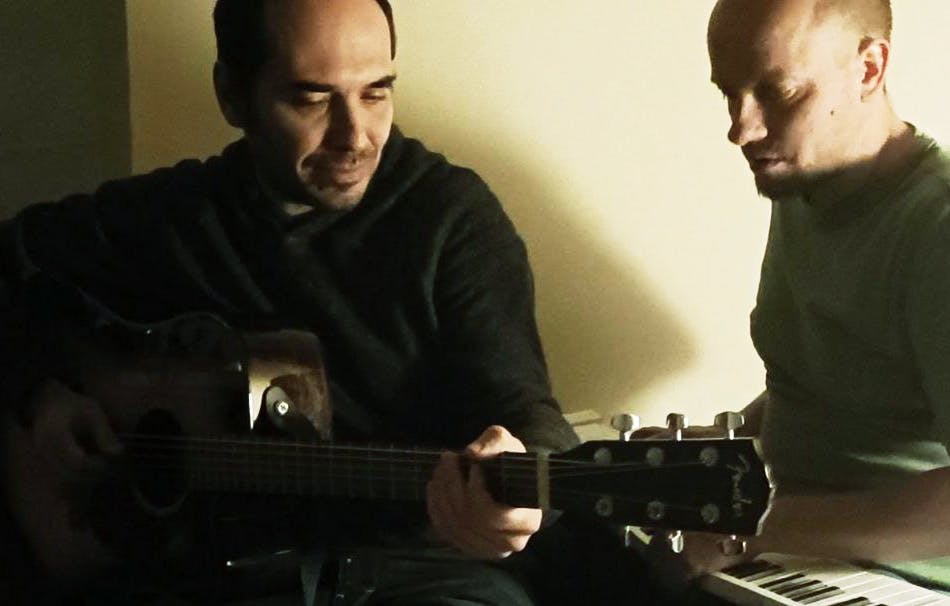
Loop-House Rewind | Arkadiy Kots Band and Anna Moiseenko in residency
protest present time
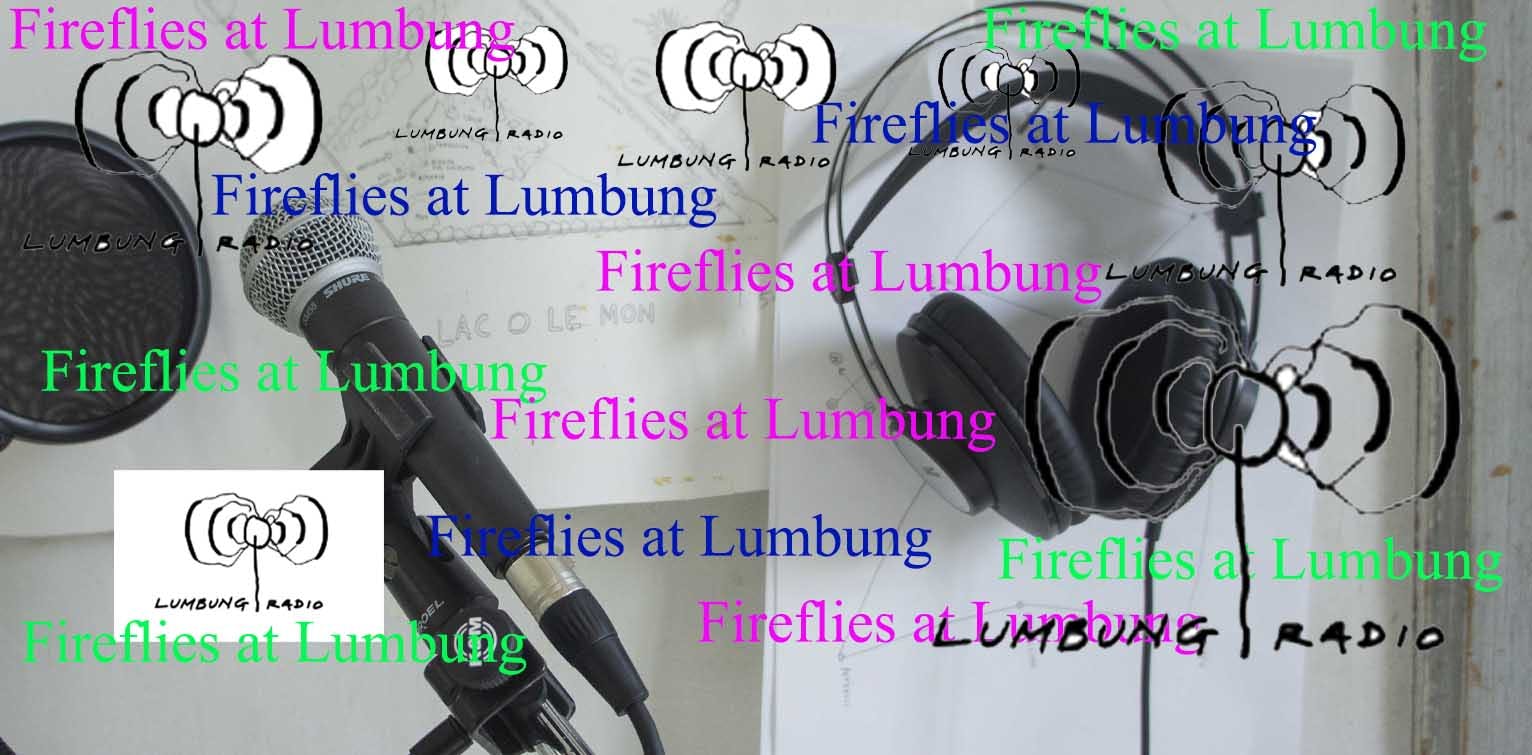
Becoming Fireflies | documenta fifteen encounter
Sept 21 | 3-5pm

Becoming Fireflies with the Lumbung
documenta fifteen fff transmissions
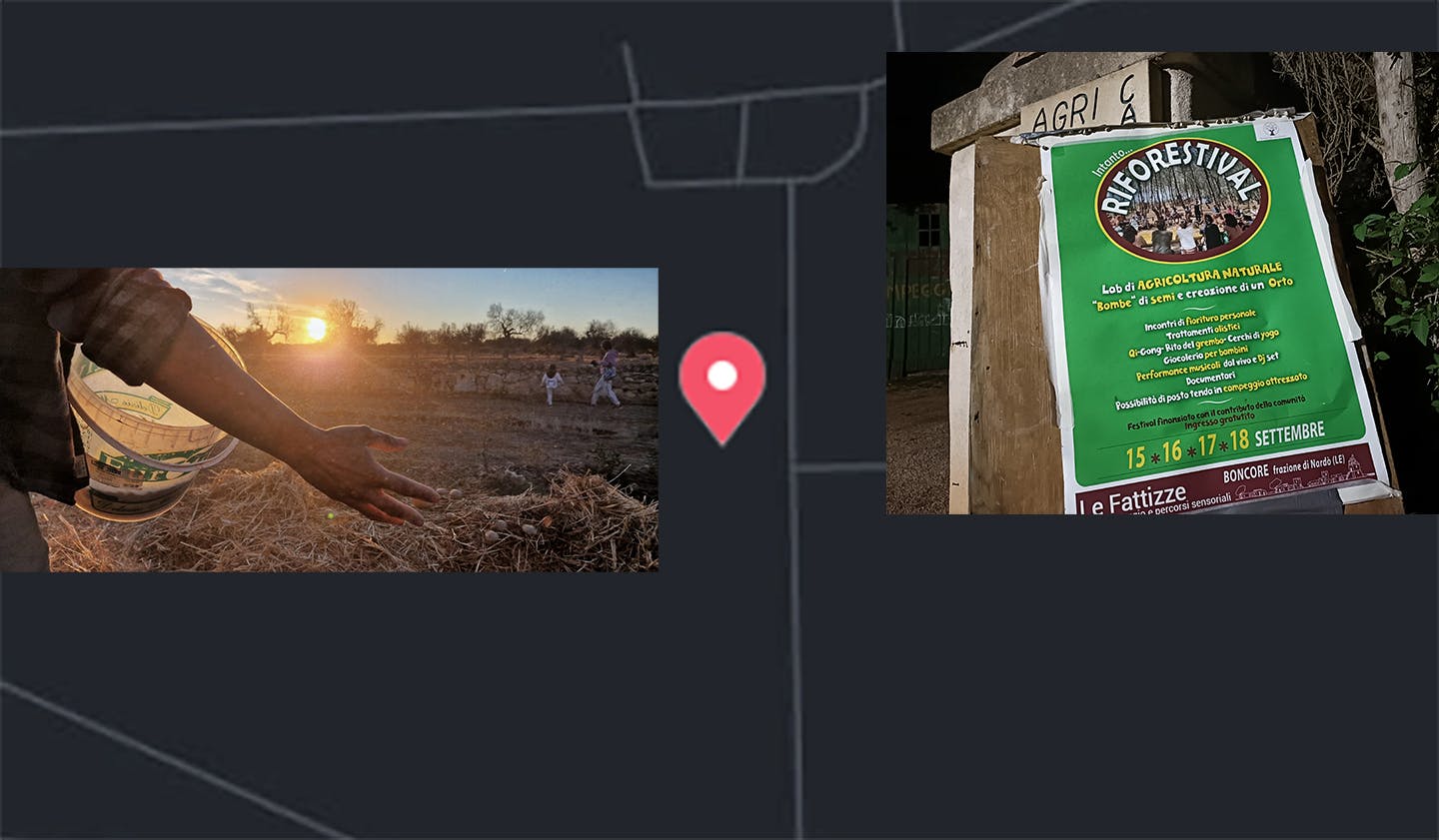
RiForestival | Le Fattizze
Sep. 15~18 | 2022
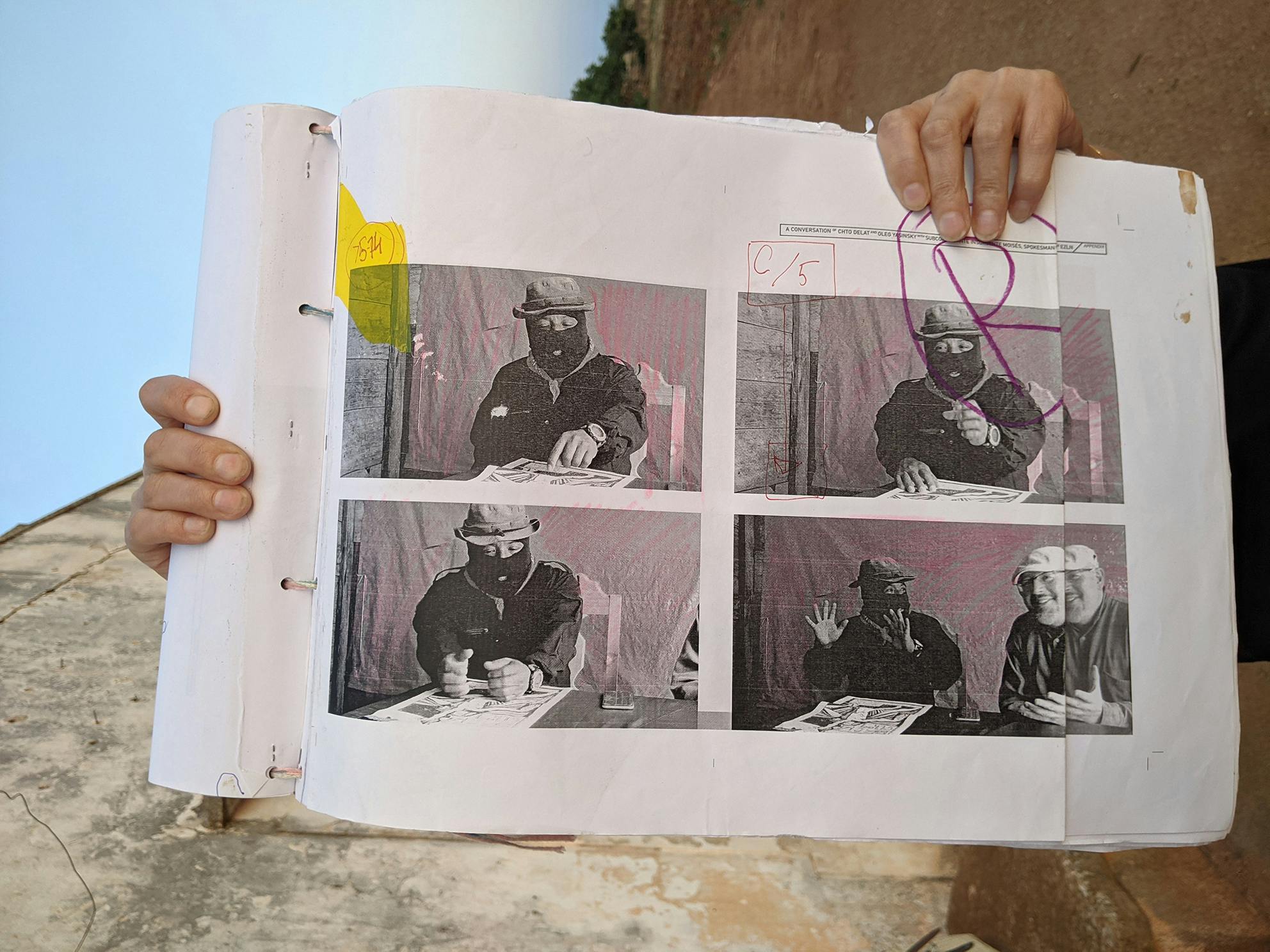
COMMONINGS w Chto Delat at HKW
NEW ALPHABET SCHOOL
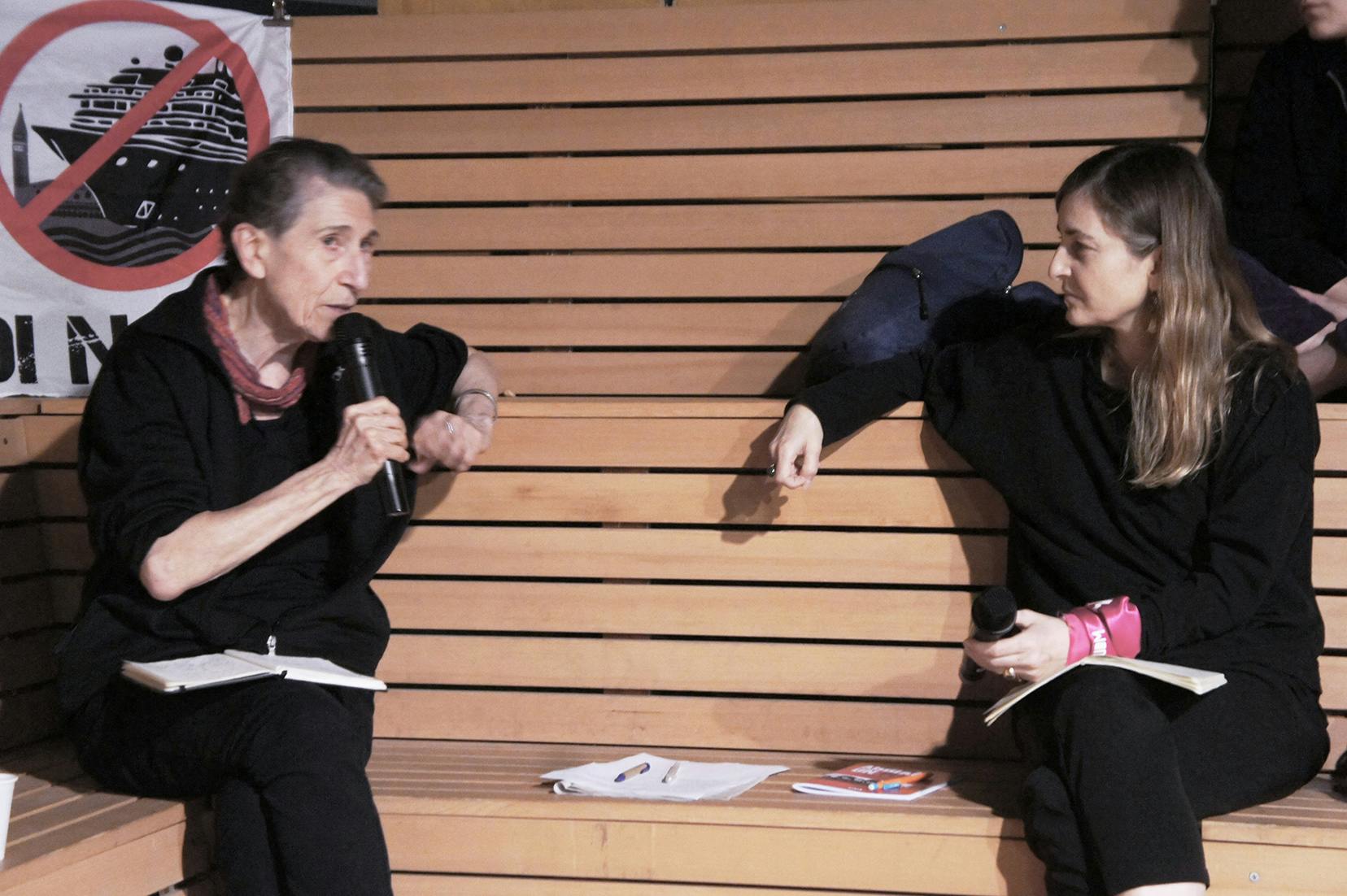
COMMONINGS w Silvia Federici, Peter Linebaugh moderated by Alessanra Pomarico
The NEW ALPHABET SCHOOL

Pasolini @ Notte Verde | 2022
Aug 29-31 | 2022
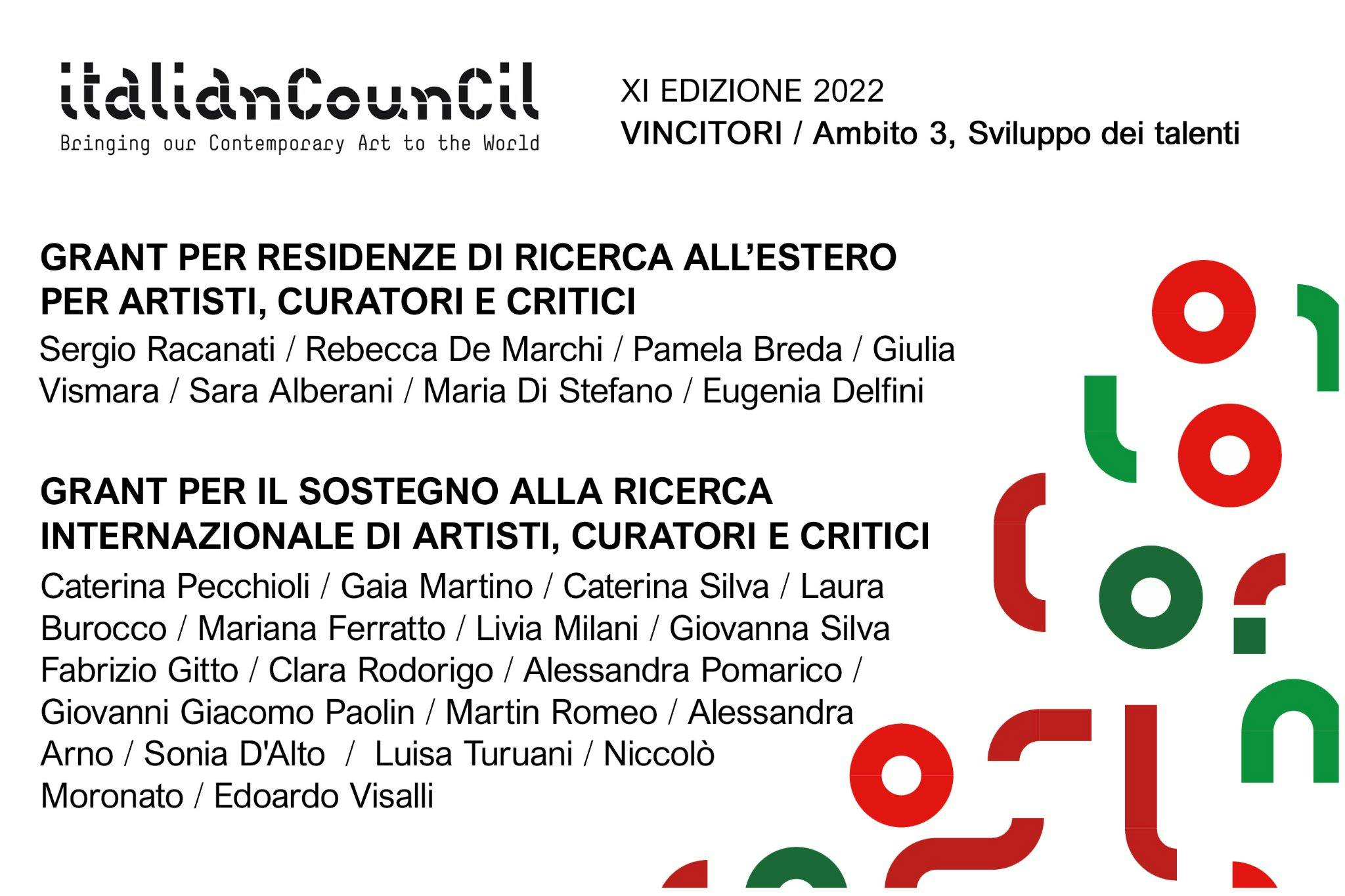
Alessandra won an Italian Council award

People of Flour @ FATTIZZE DOC FESTIVAL
Aug-6 | book'n'film presentation
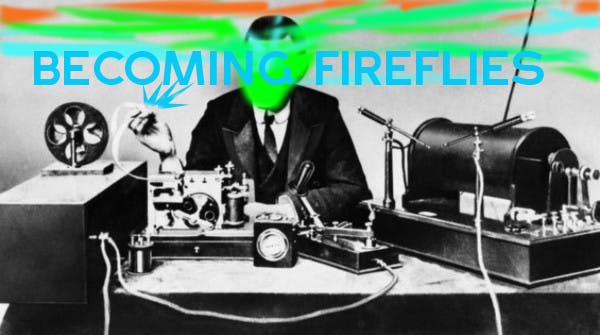
Becoming Fireflies @ lac o le mon
practices of radio > affective listening > transversal transmission

Reclaiming Wider Ecologies of Knowledge @ tranzit.sk
July 7-8-9
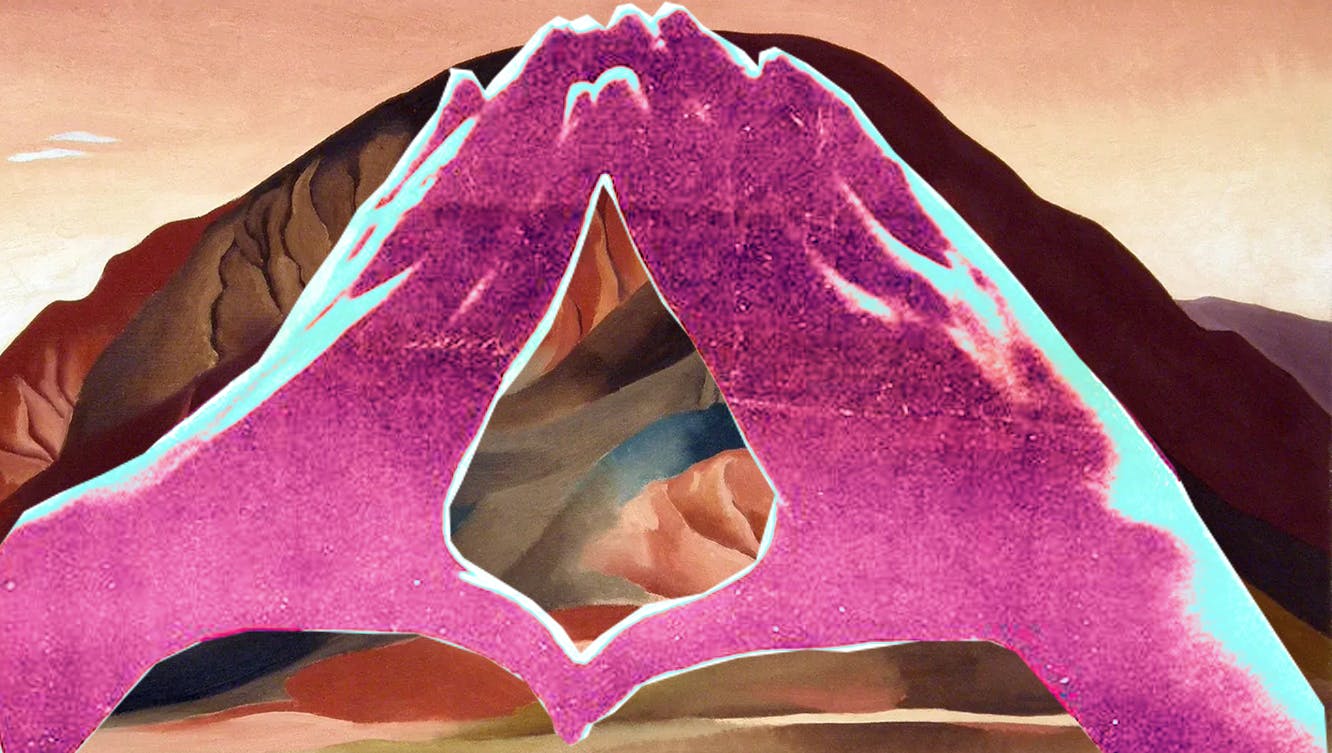
ECOLOGIES of CARE | Ljublijana
23 –25. 6. 2022
screening & talk || Chto Delat @ Grounding~Seeding
film screening and artist talk || 26 May 2022, 7pm
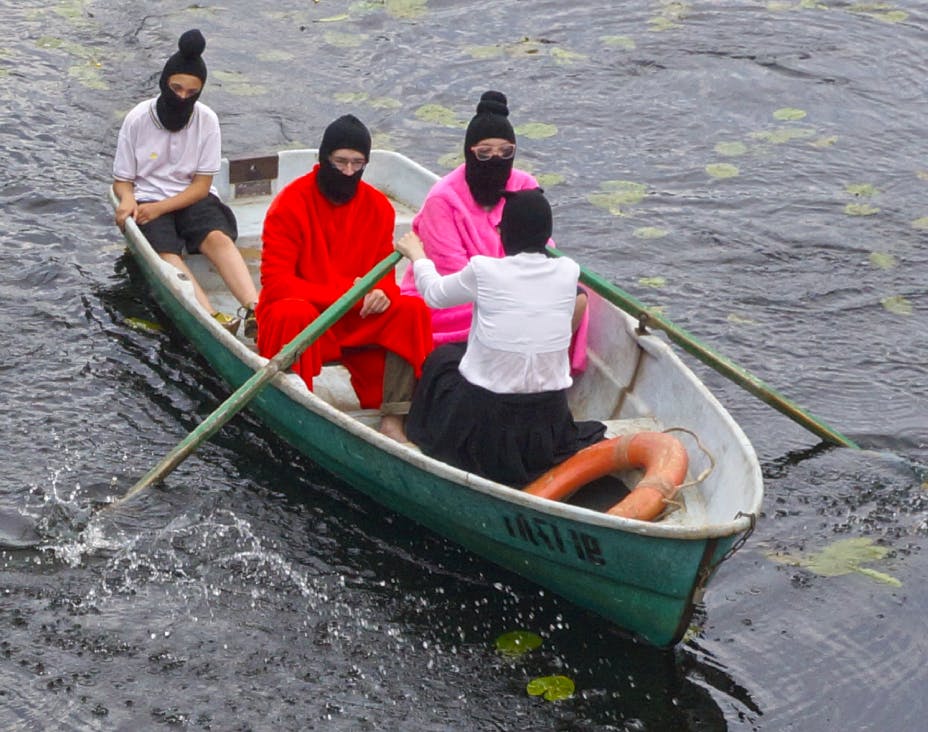
Guelph Book Launch @ Musagetes
When the Roots Start Moving: Film Screening & Conversation with Alessandra Pomarico and Nikolay Oleynikov Sunday, May 29, 2022 /// 2pm Heritage Hall /// 83 Essex Street, Guelph, ON
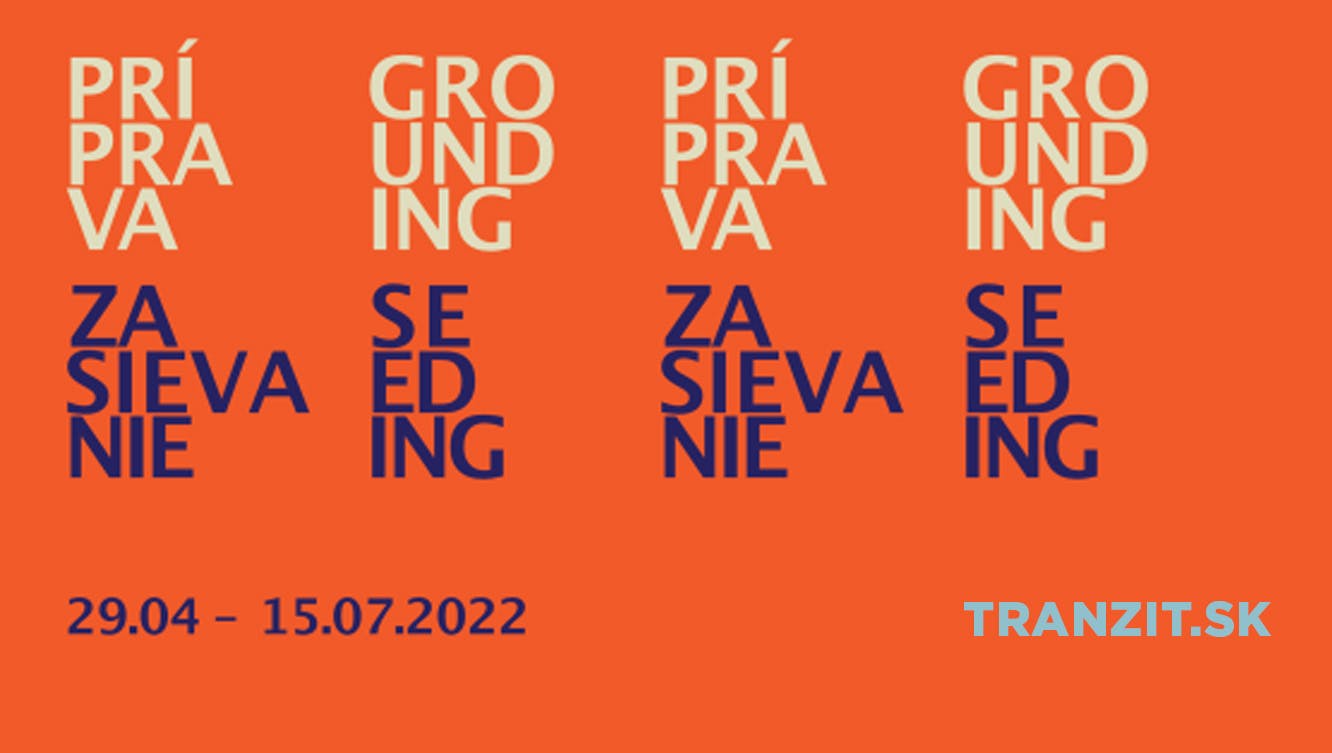
Grounding~Seeding @ tranzit.sk
exhibition project in Bratislava
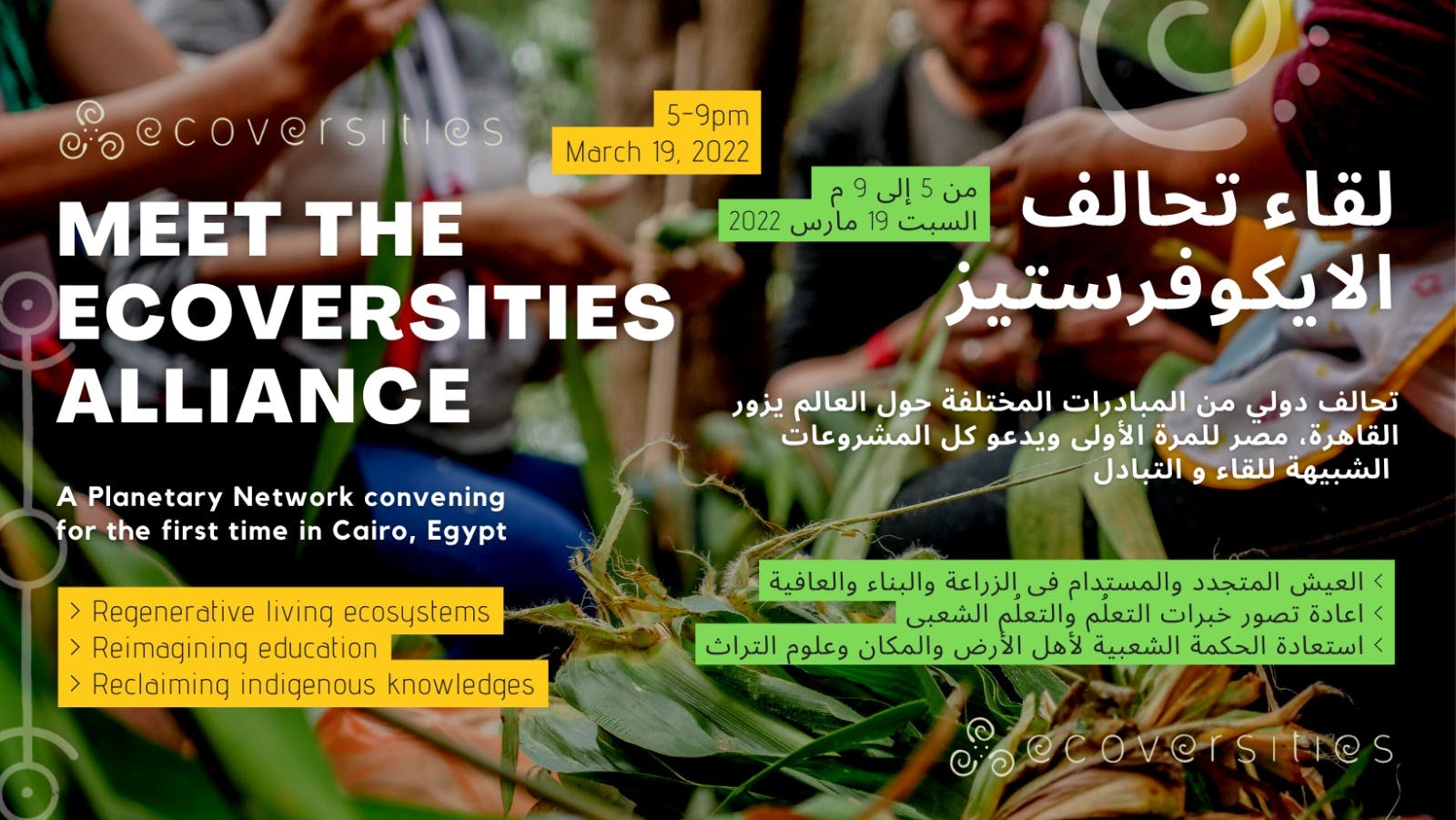
Ecoversities Sixth Planetary Gathering in Egypt
19-26.03.2022
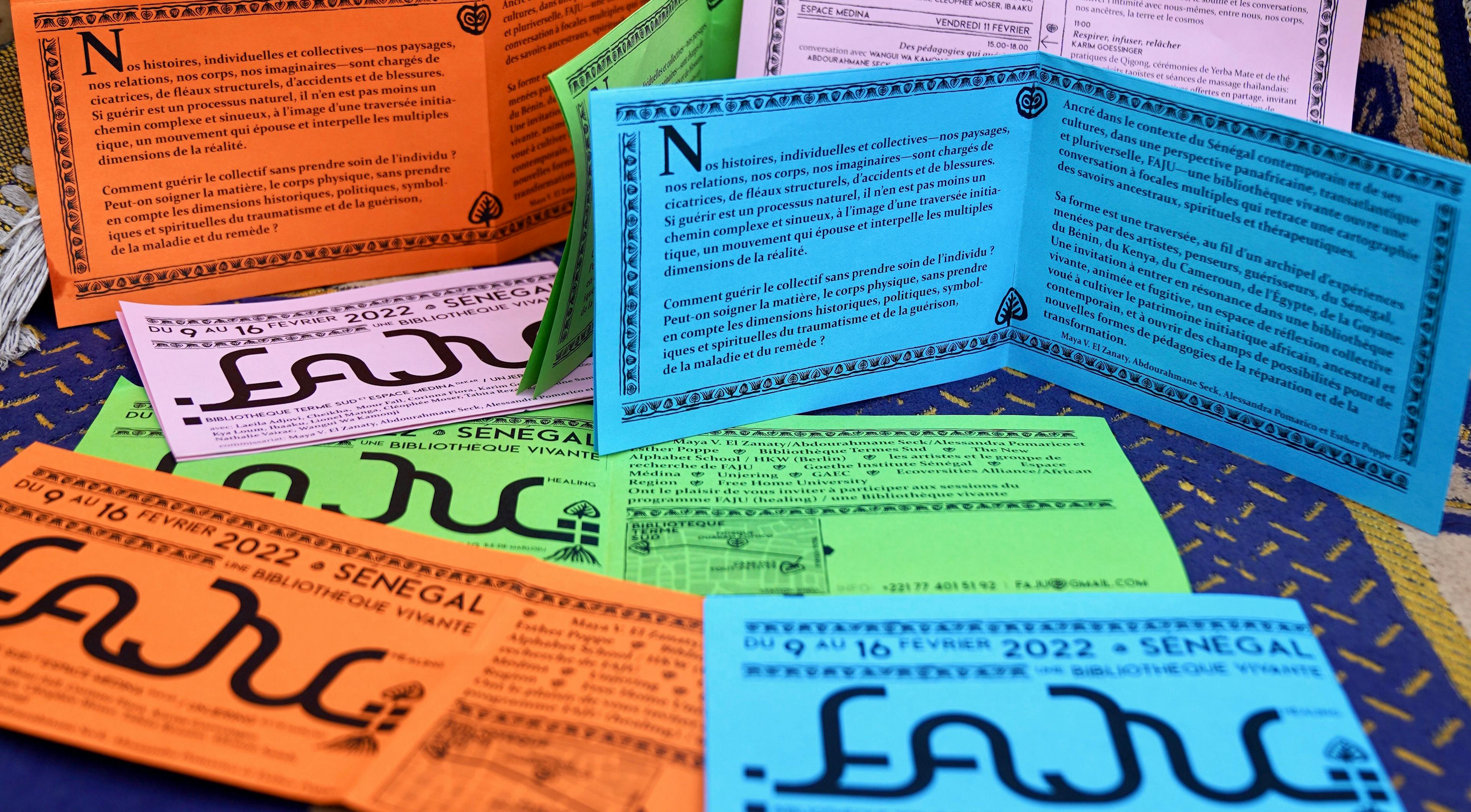
FAJU in Dakar || Feb, 9 to 16
second edition gathering
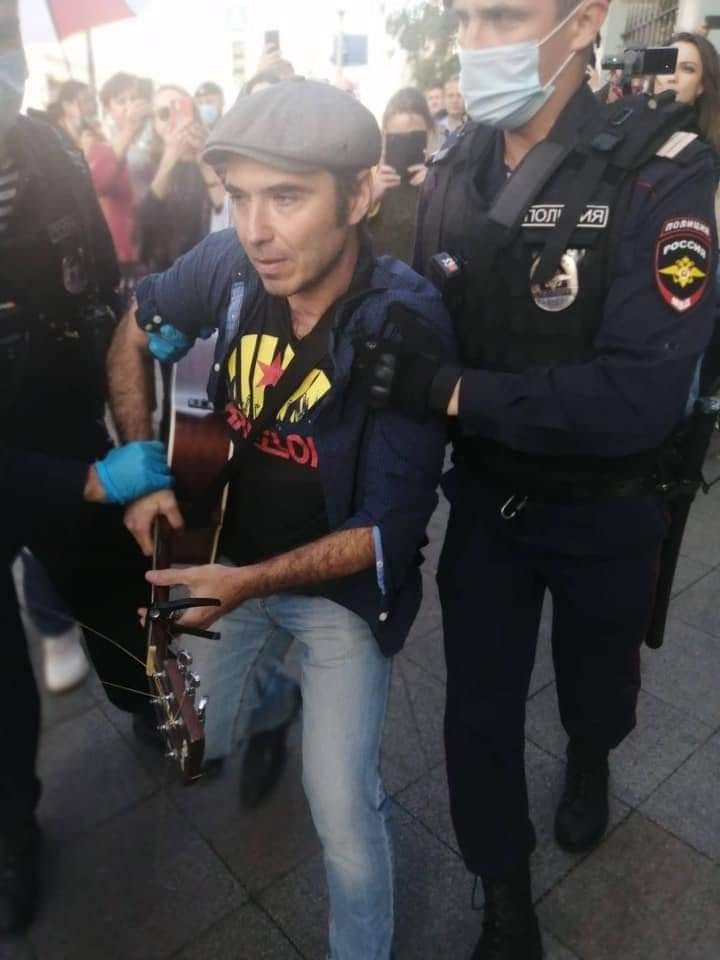
Kirill Medvedev is imprisoned
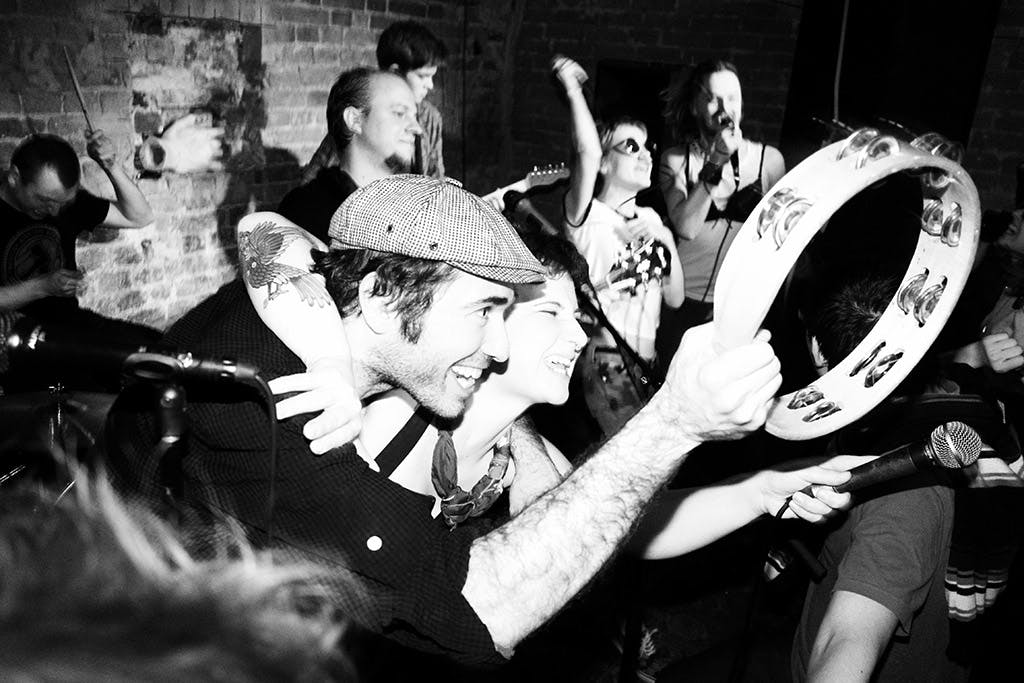
Partizan Jam at Partisan Cultures
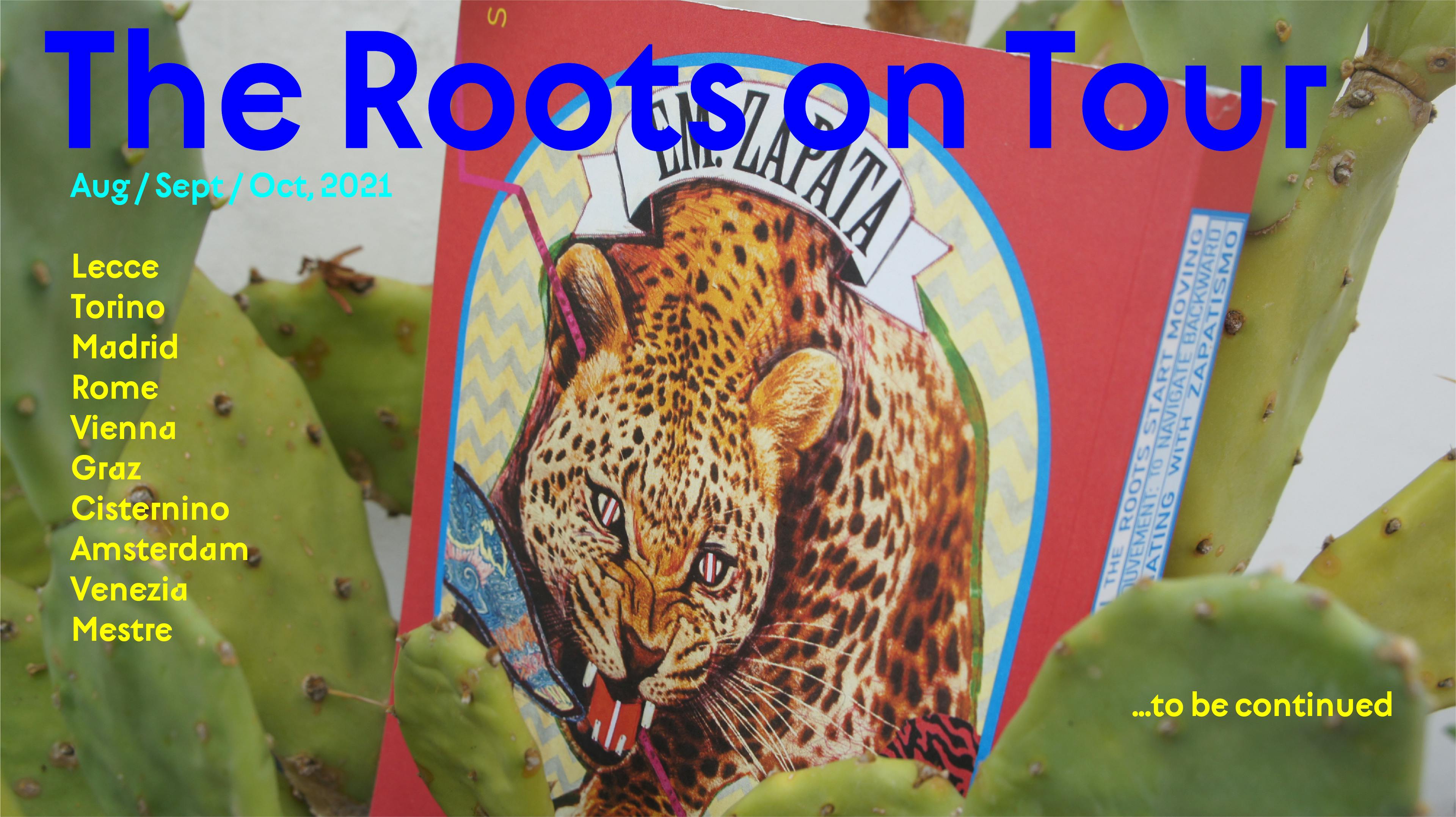
When the Roots Start Moving || launching tour
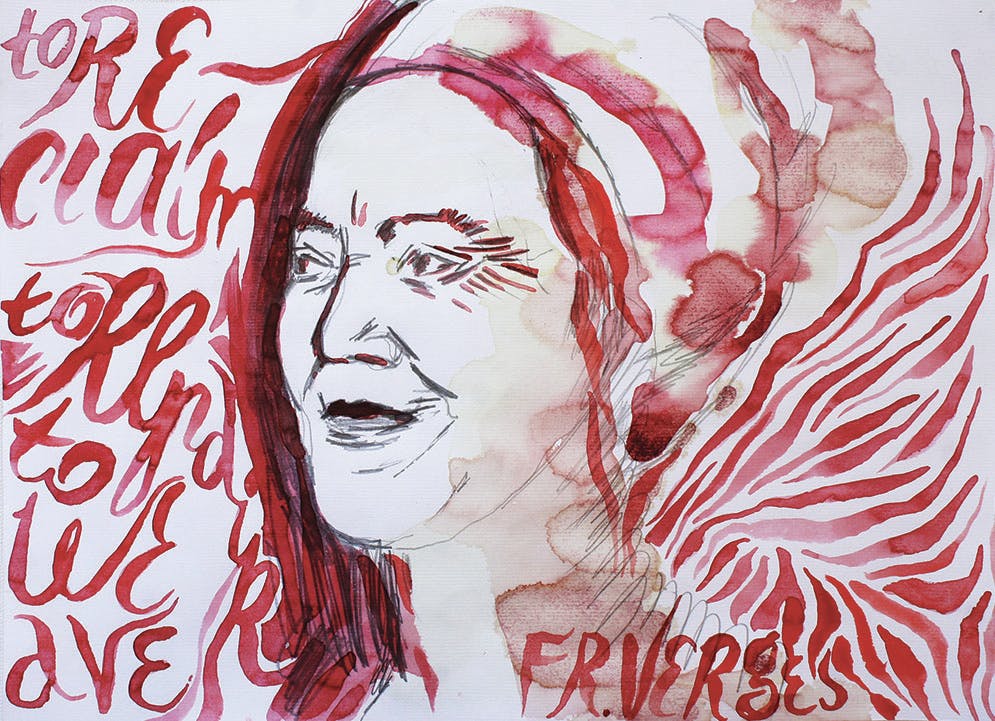
Françoise Vergès and Rachele Borghi || public events of M.E.D.U.S.E. in Salento
Aug 26 & 28
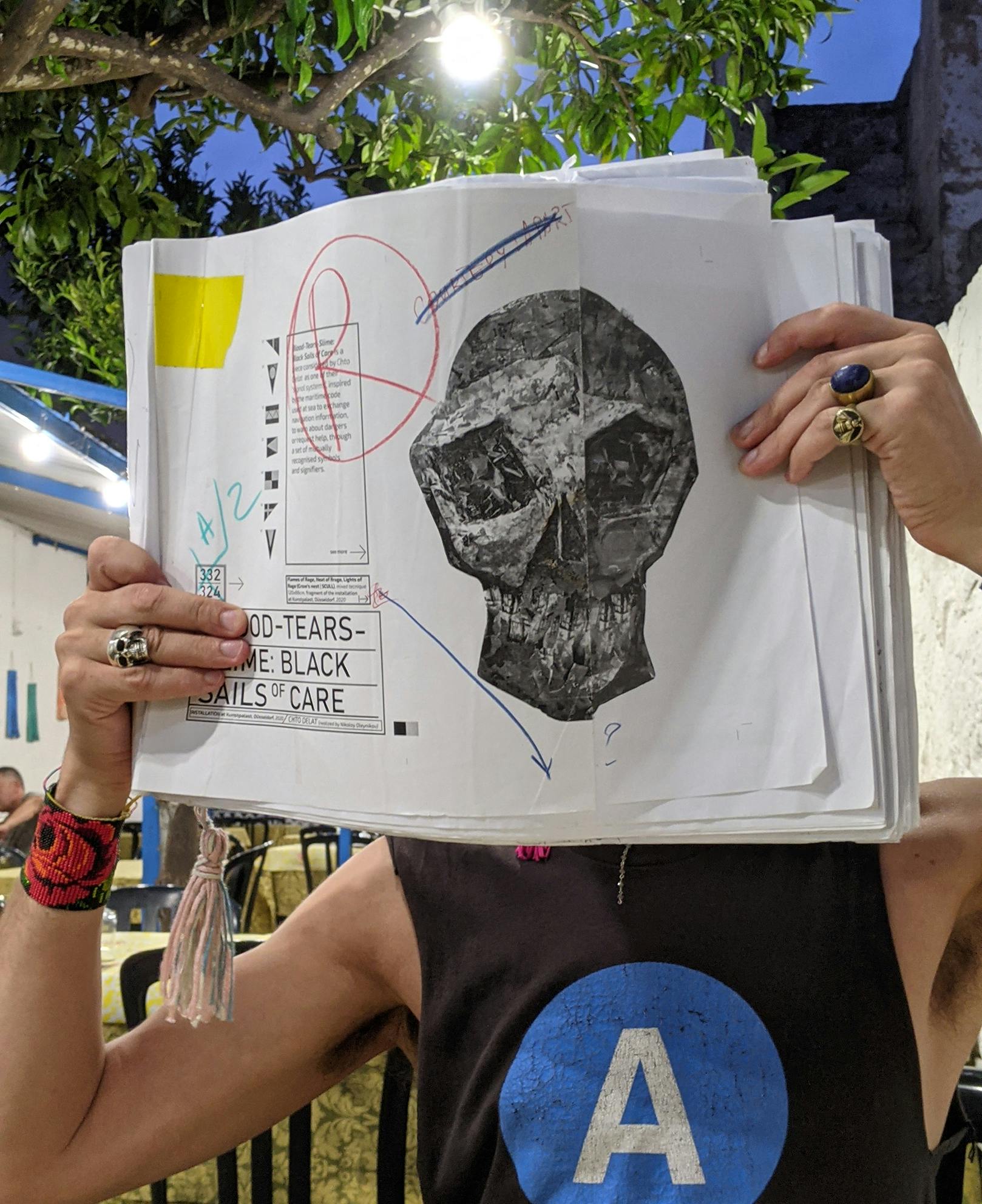
"R" is for "Revised" (and sent to print)
the book is delivered to the print house Giorgiani
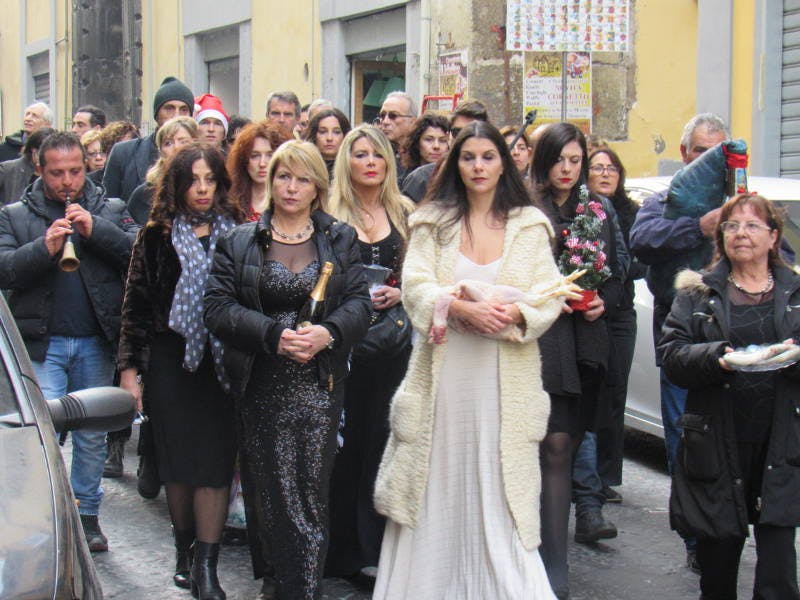
M.E.D.U.S.E. in Dialogue around the Mediterranean @ Domus, Galatina
19 – 25 July 2021
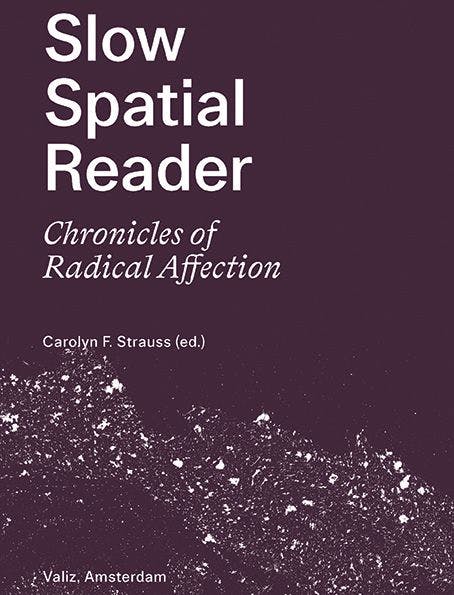
SLOW SPATIAL READER | book launch
July 8th, 2021, 19:30–21:00
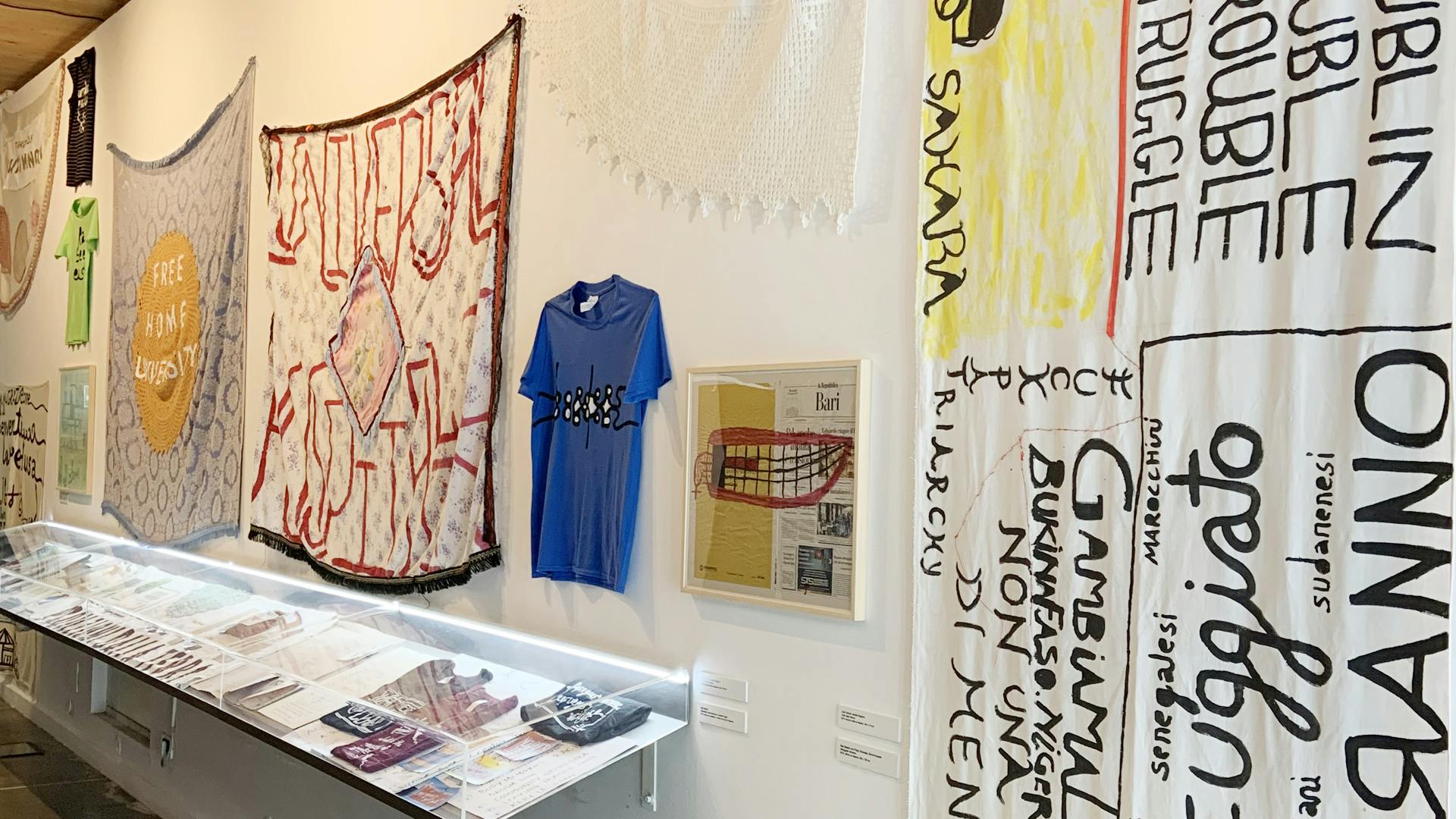
SUSTAINING ASSEMBLY | PAV, Torino
07.05.21 / 24.10.21
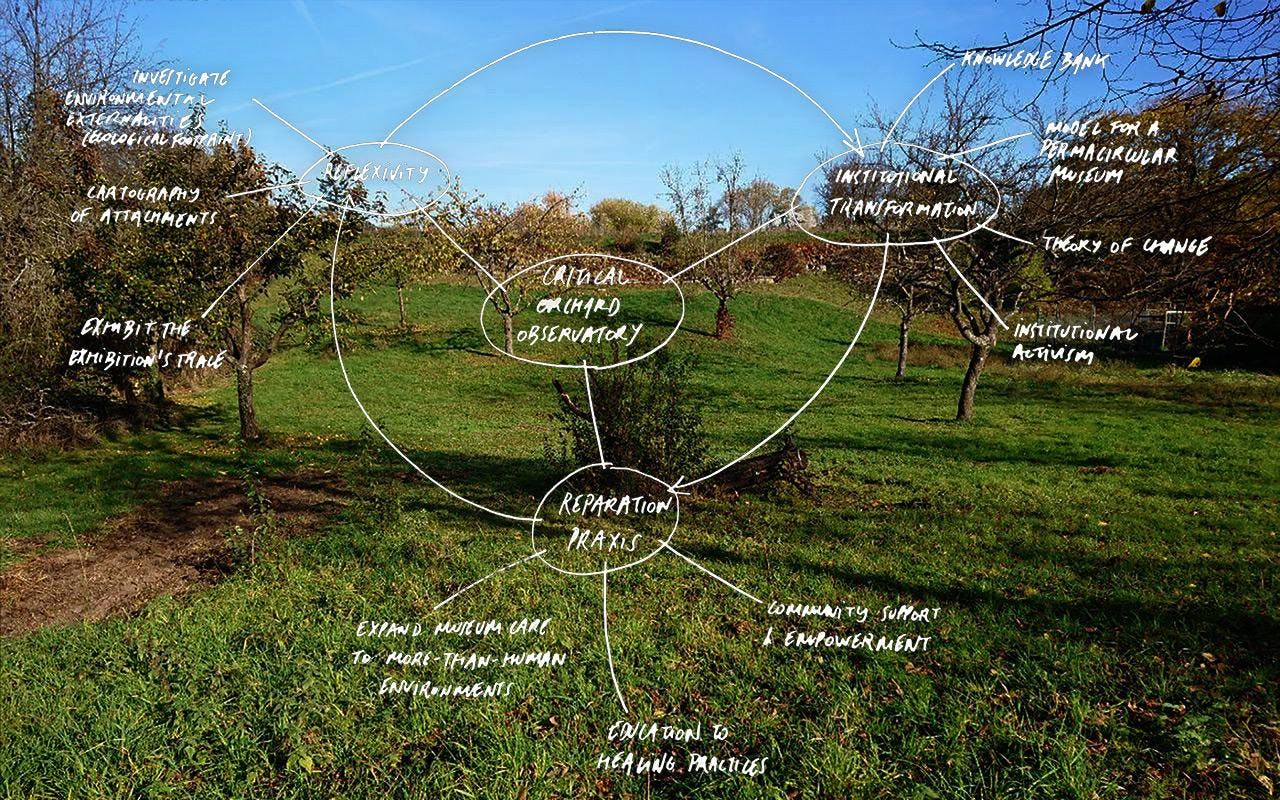
ZKM || Assembly for Permacircular Museums
ZKM || Apr 23

ARTS for WOMEN'S STRIKE
octopusVSpatriarchy
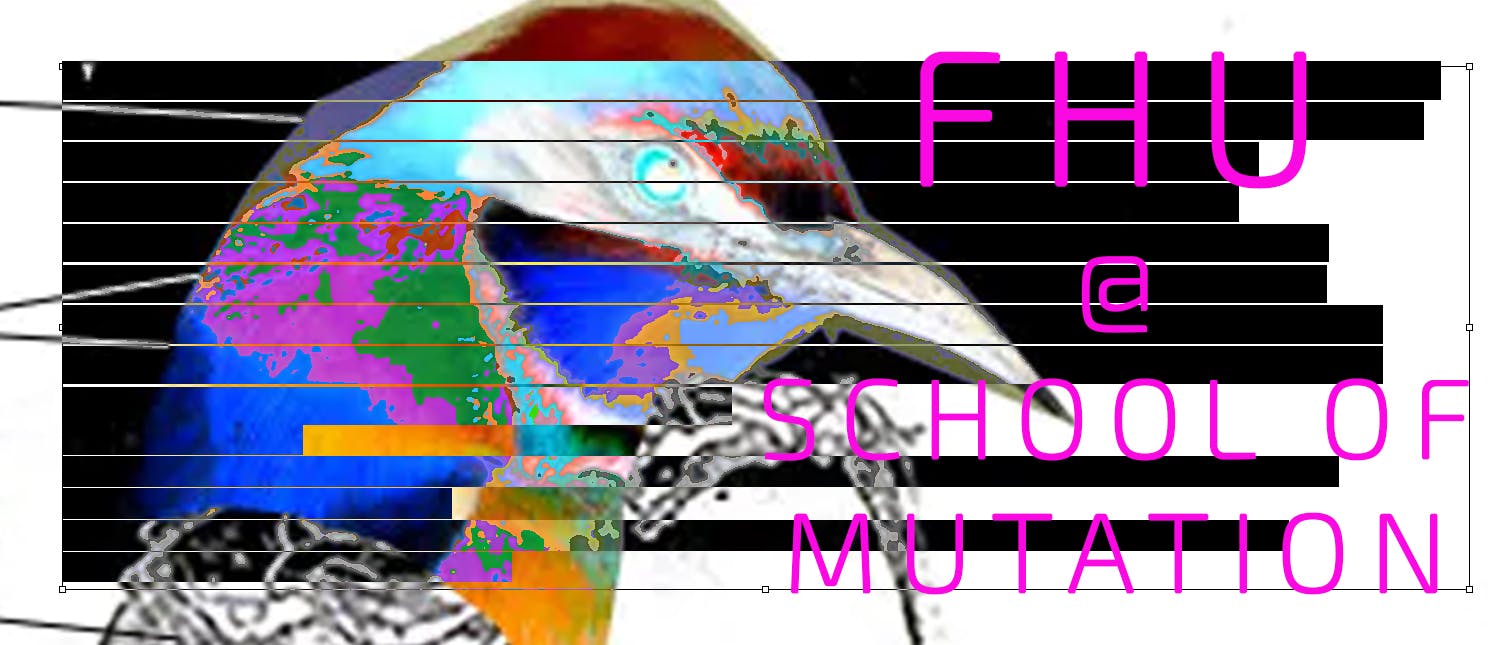
ON ECOLOGIES OF KNOWLEDGES || Alessandra in debates @ the School of Mutation (IRI)
Institute of Radical Imagination in dialogue w Dm. Vilensky
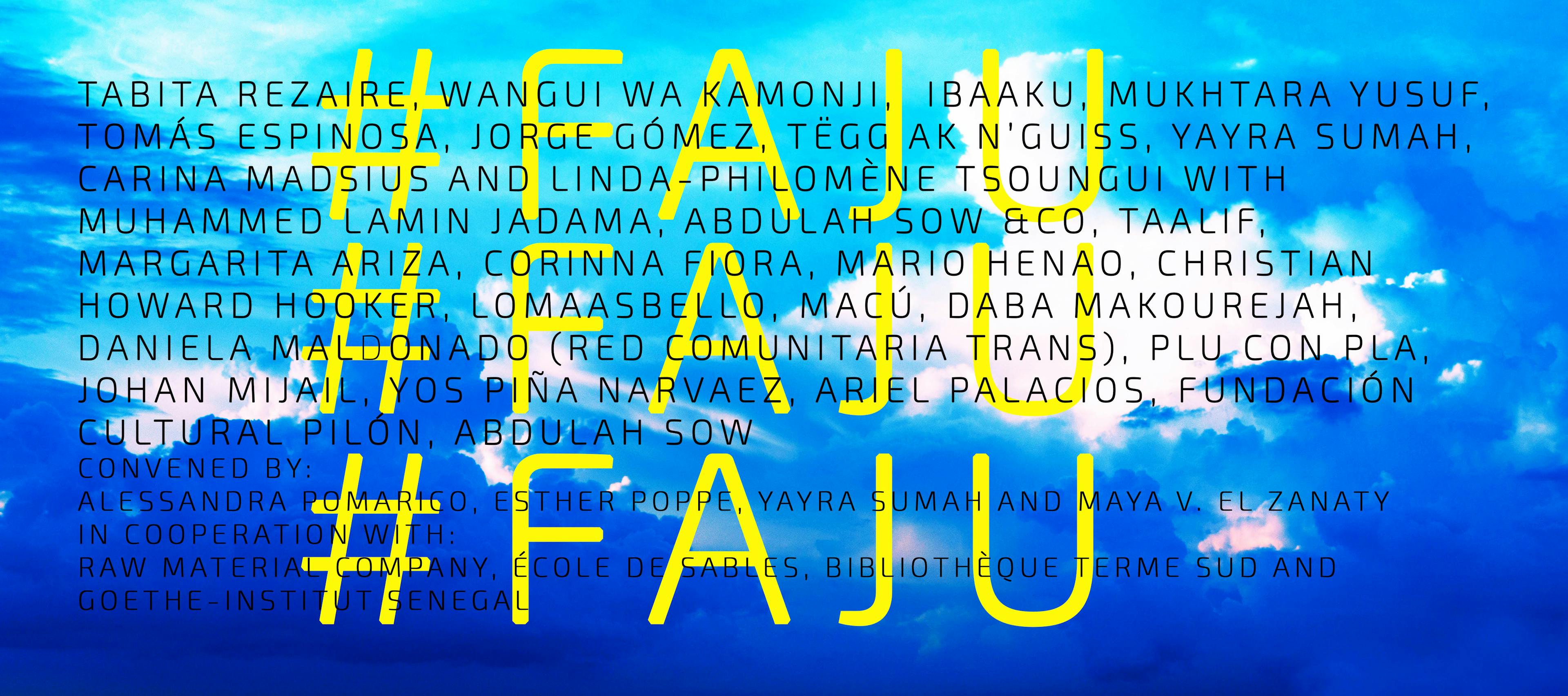
#Healing (Faju) || Feb 4-6
New Alphabet School @HKW (Berlin)

2 new pieces in Partizan Jam collection
keep on studying antifascism
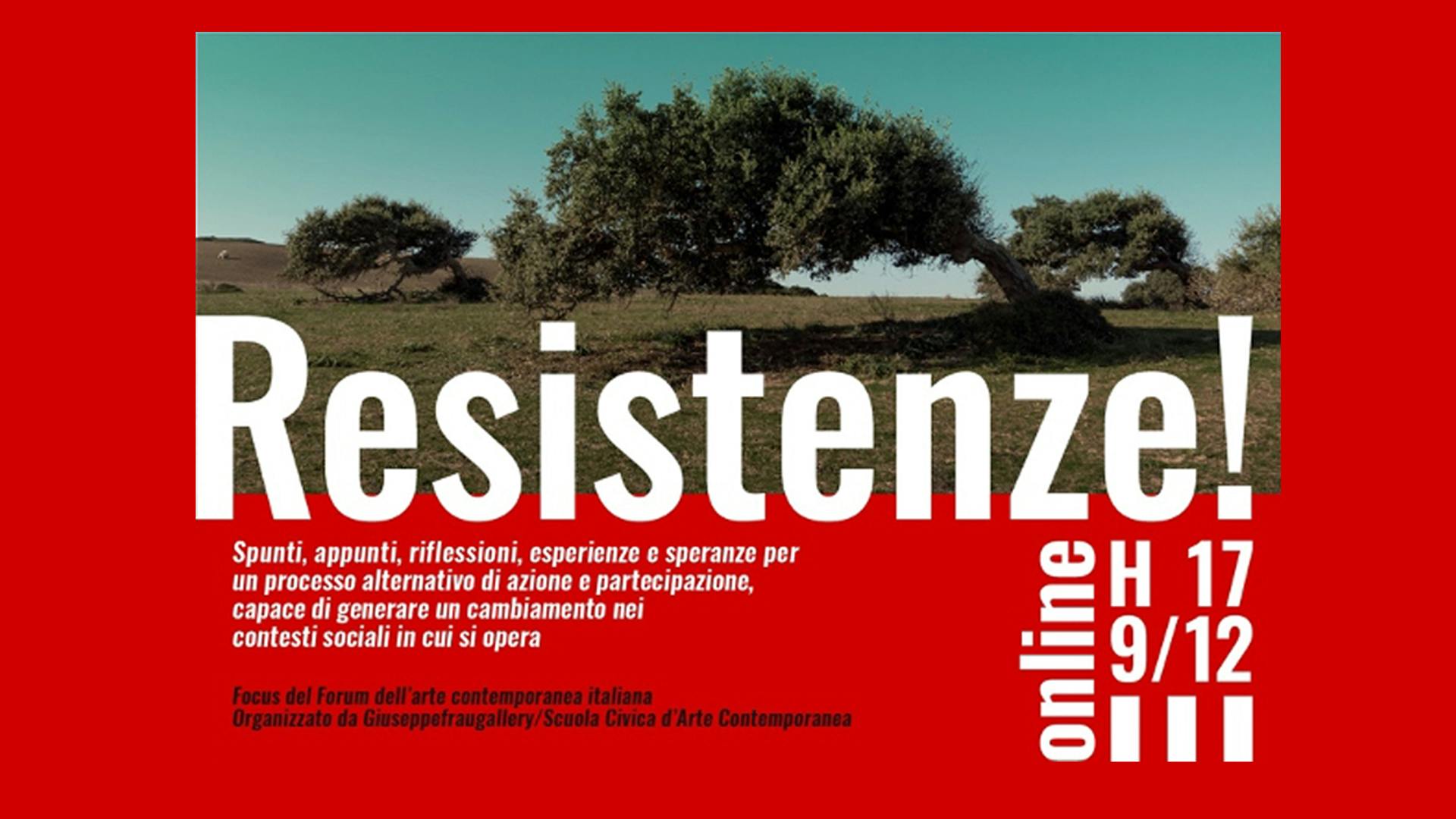
FHU@Forum dell'Arte Contemporanea Italiana
Resistances / Radical Pedagogy
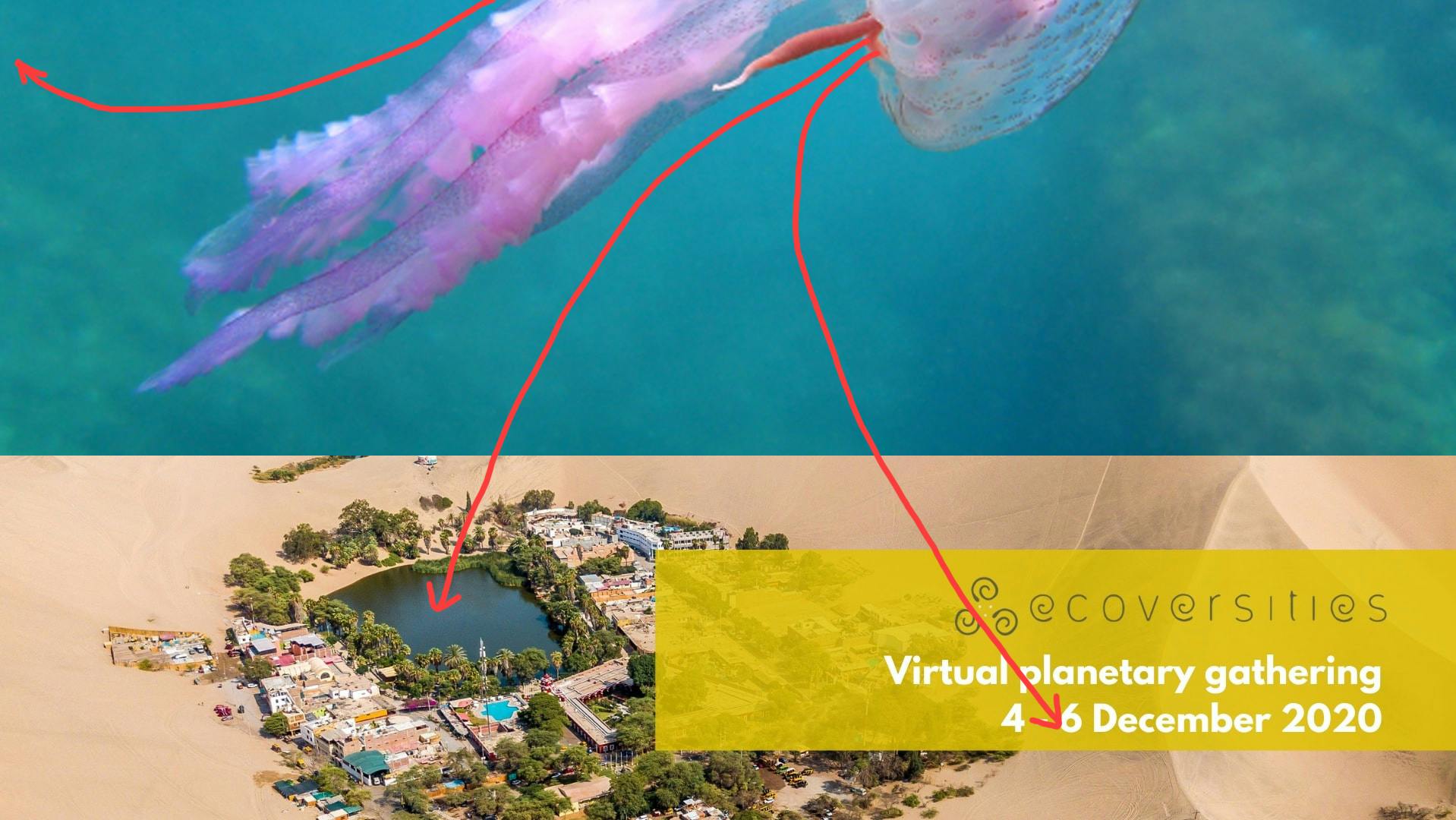
M.E.D.U.S.E. float @ Ecoversities
Dec.06 || 9.oo PM CET
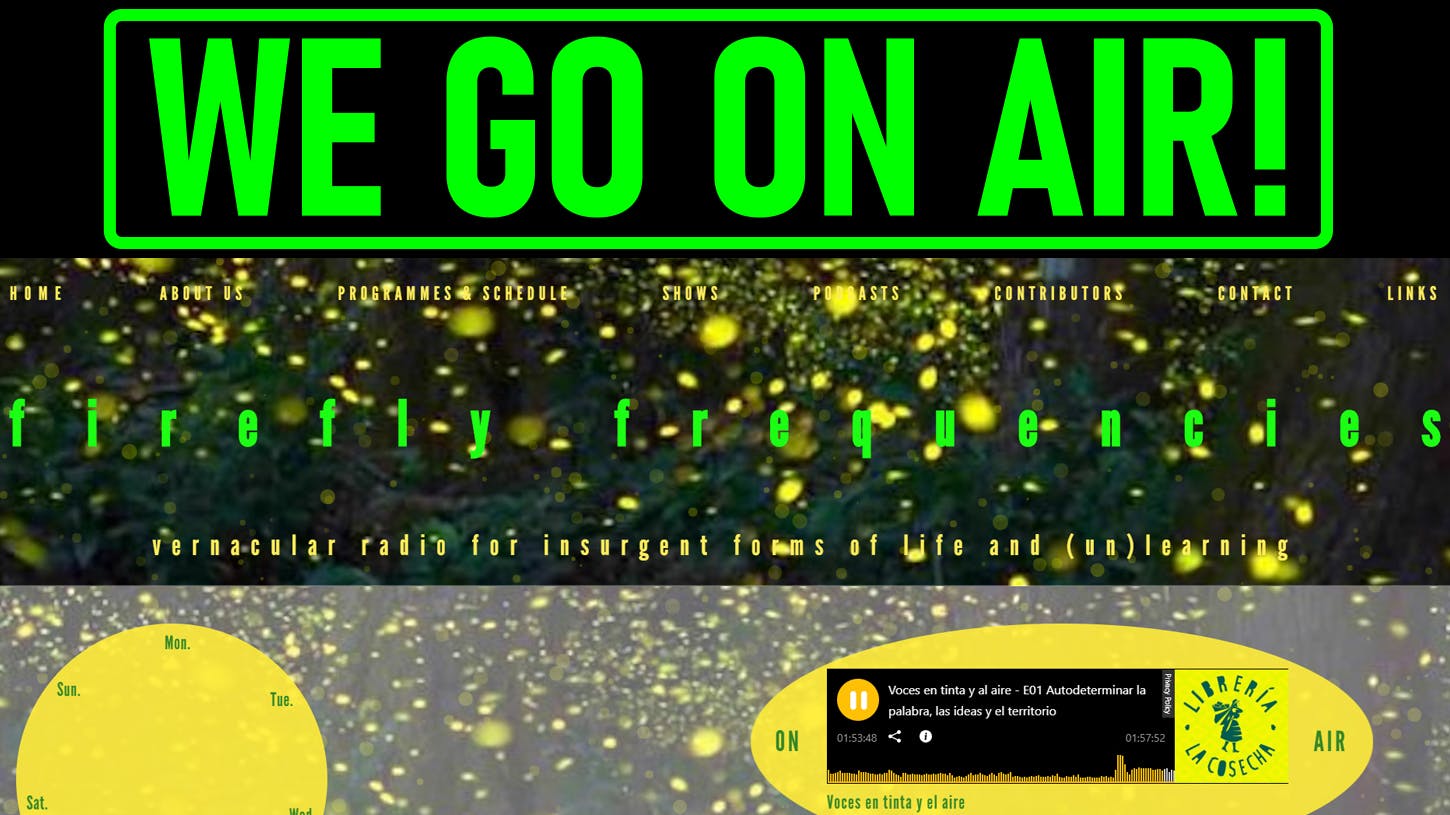
Firefly Frequencies || since Dec 5, 2020
launch of the online radio
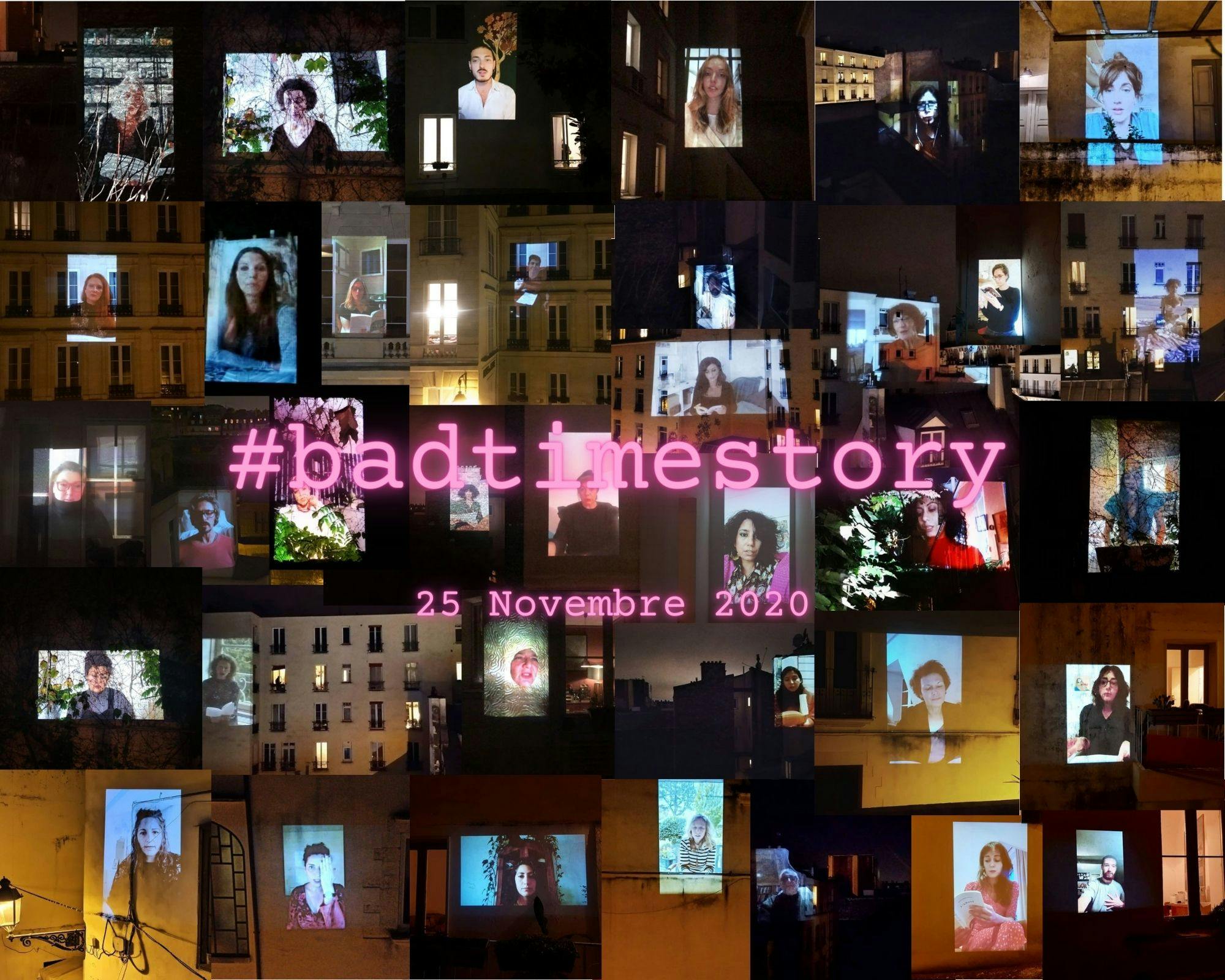
International Day for the Elimination of Violence against Women
bad-times-story

#HEALING Dakar\Berlin || Feb 2021
FHU@HKW
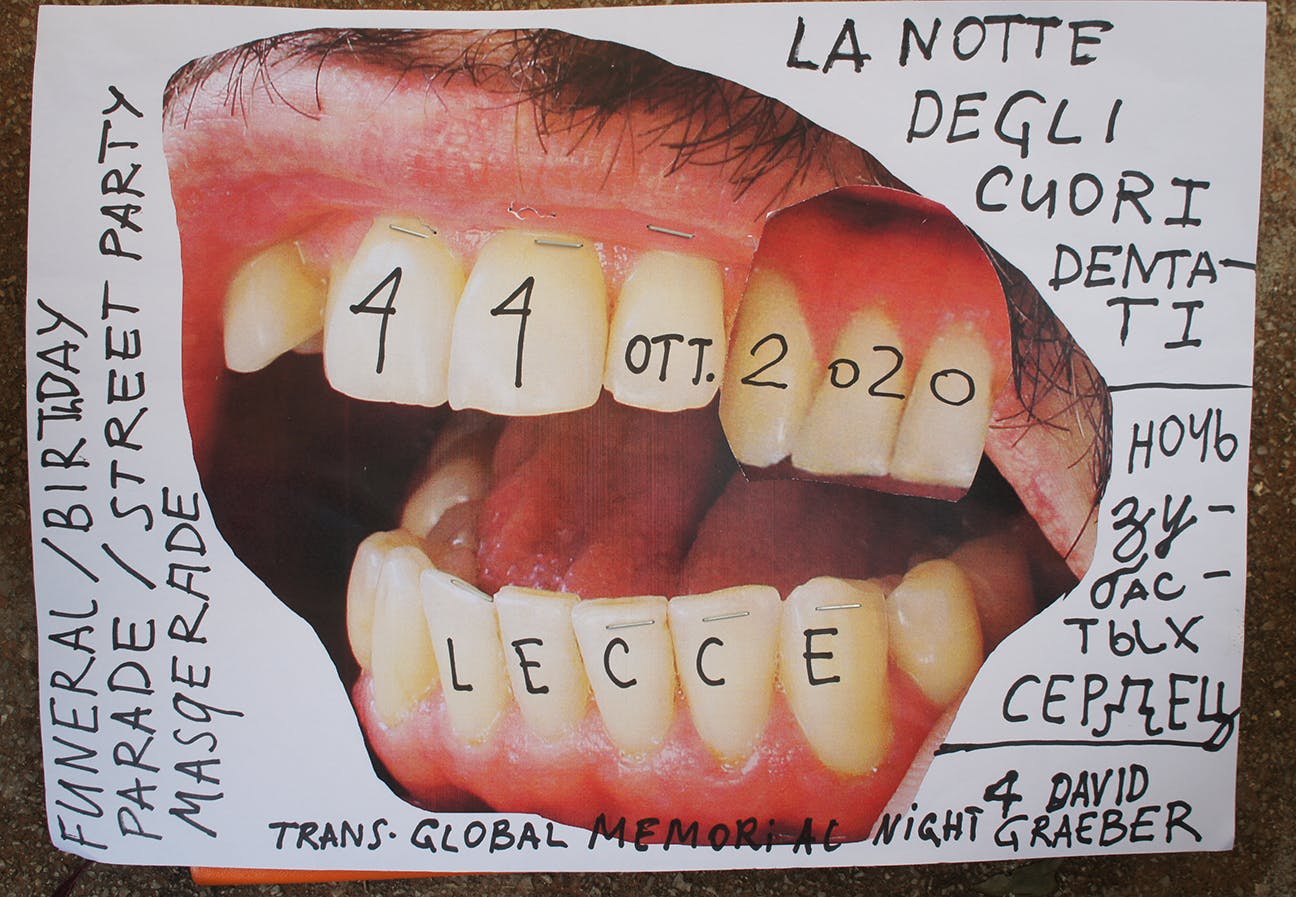
In Memoriam || David Graeber's intergalactic night || Oct 11th, Lecce
Notte dei Cuori Dentati
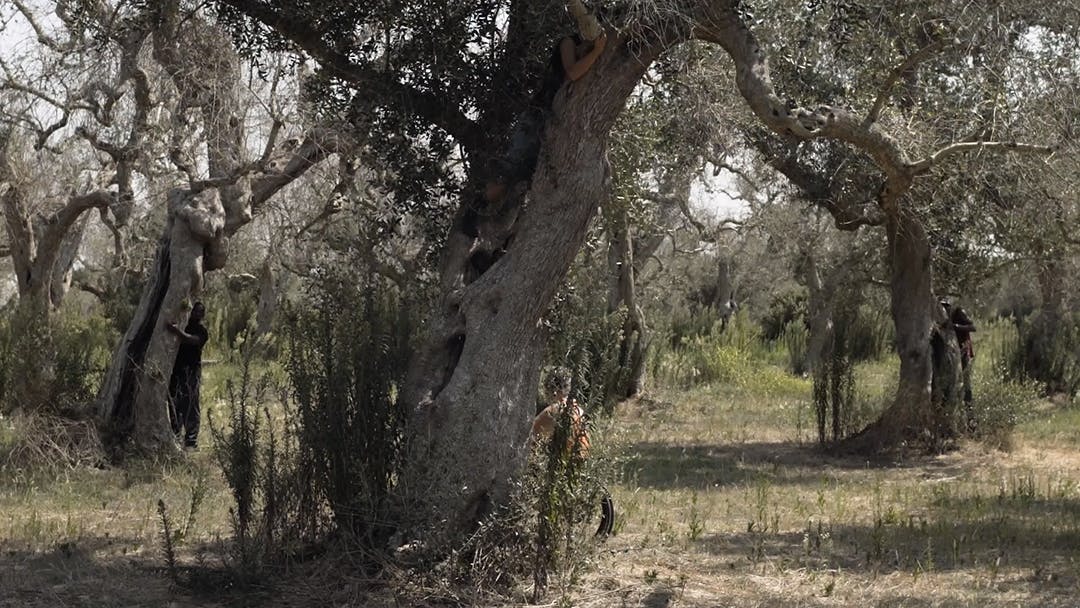
People of Flour on display in Athens
European Premiere
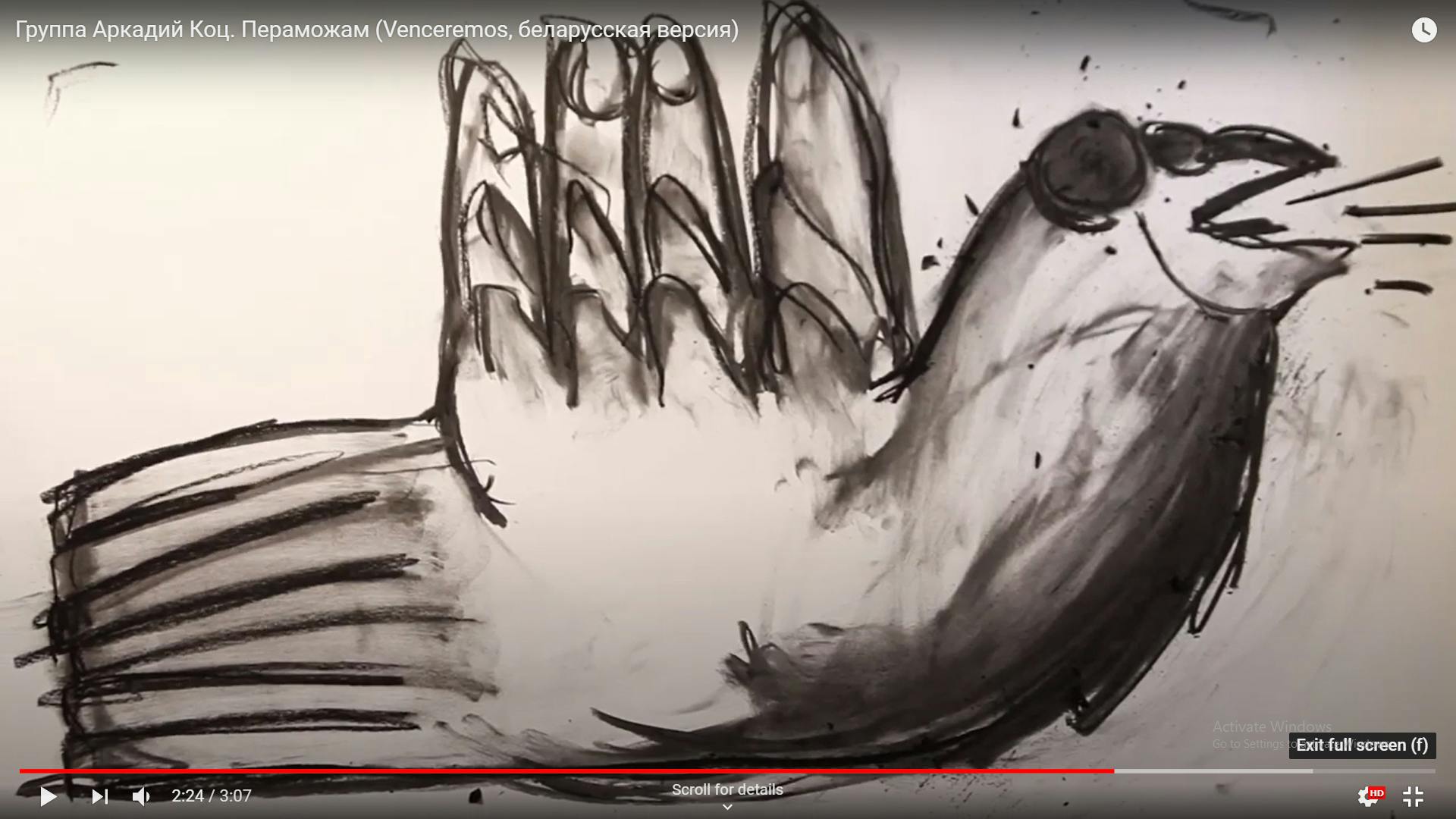
Cultural Workers of Belarus: Open Letter
open letter
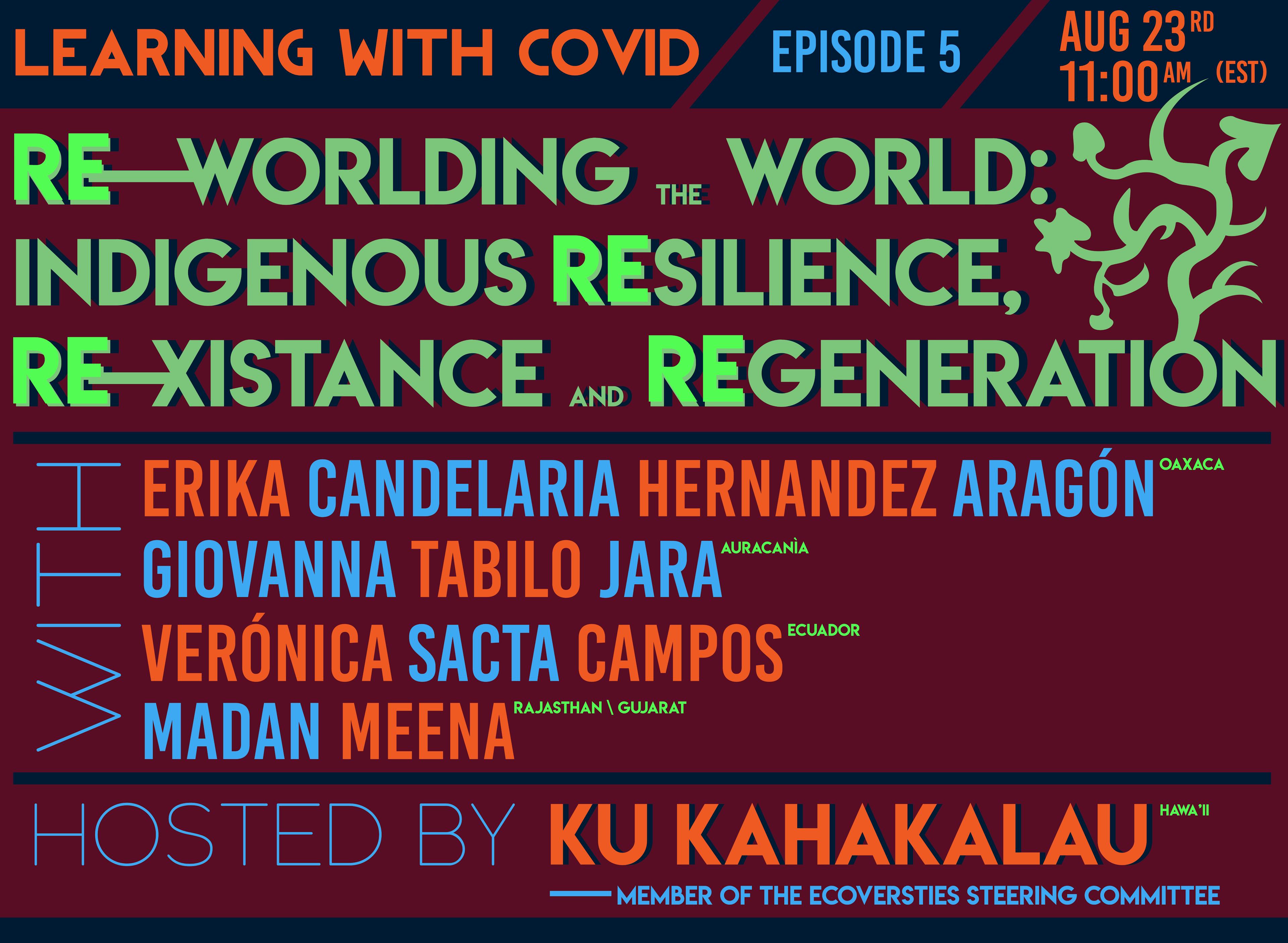
Indigenous Resilience || Learing w COVD: chapter 5
Aug 23 || 11:00 (EST)

The Black Diaspora || Political Resistance and Radical Love
Learning w covid series
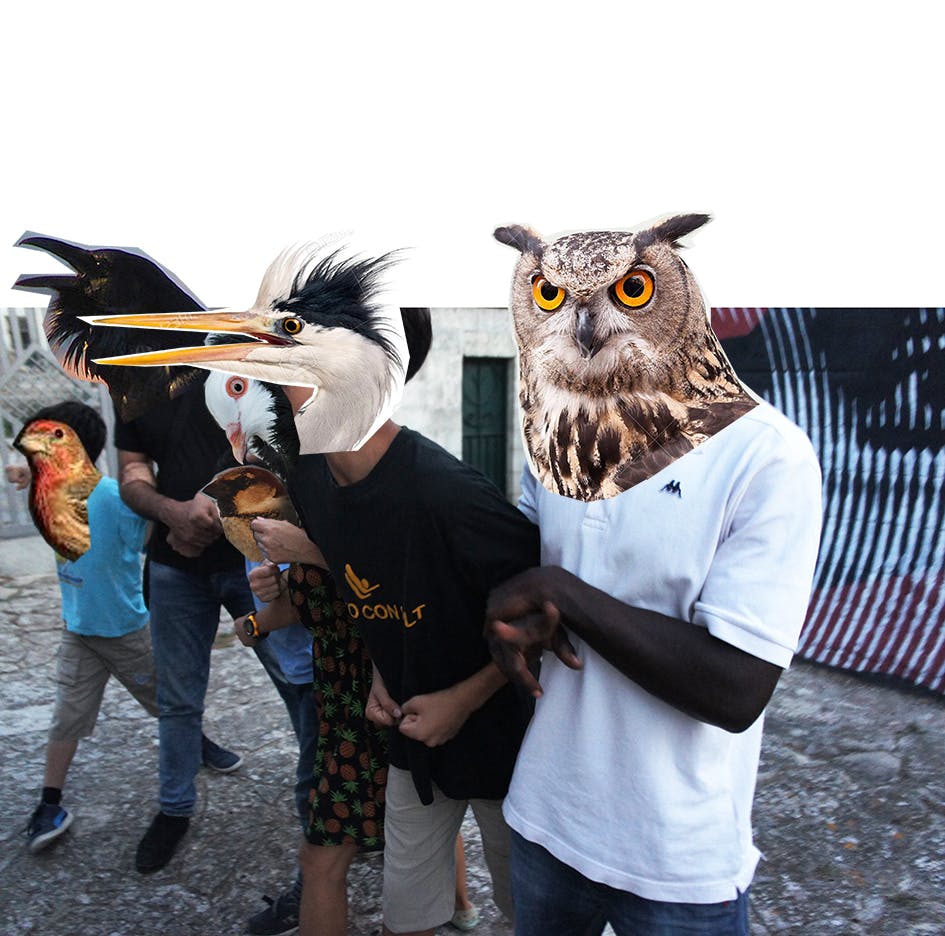
What's there to (un)learn? || June 17-19
LaForesta Academy feat. FHU
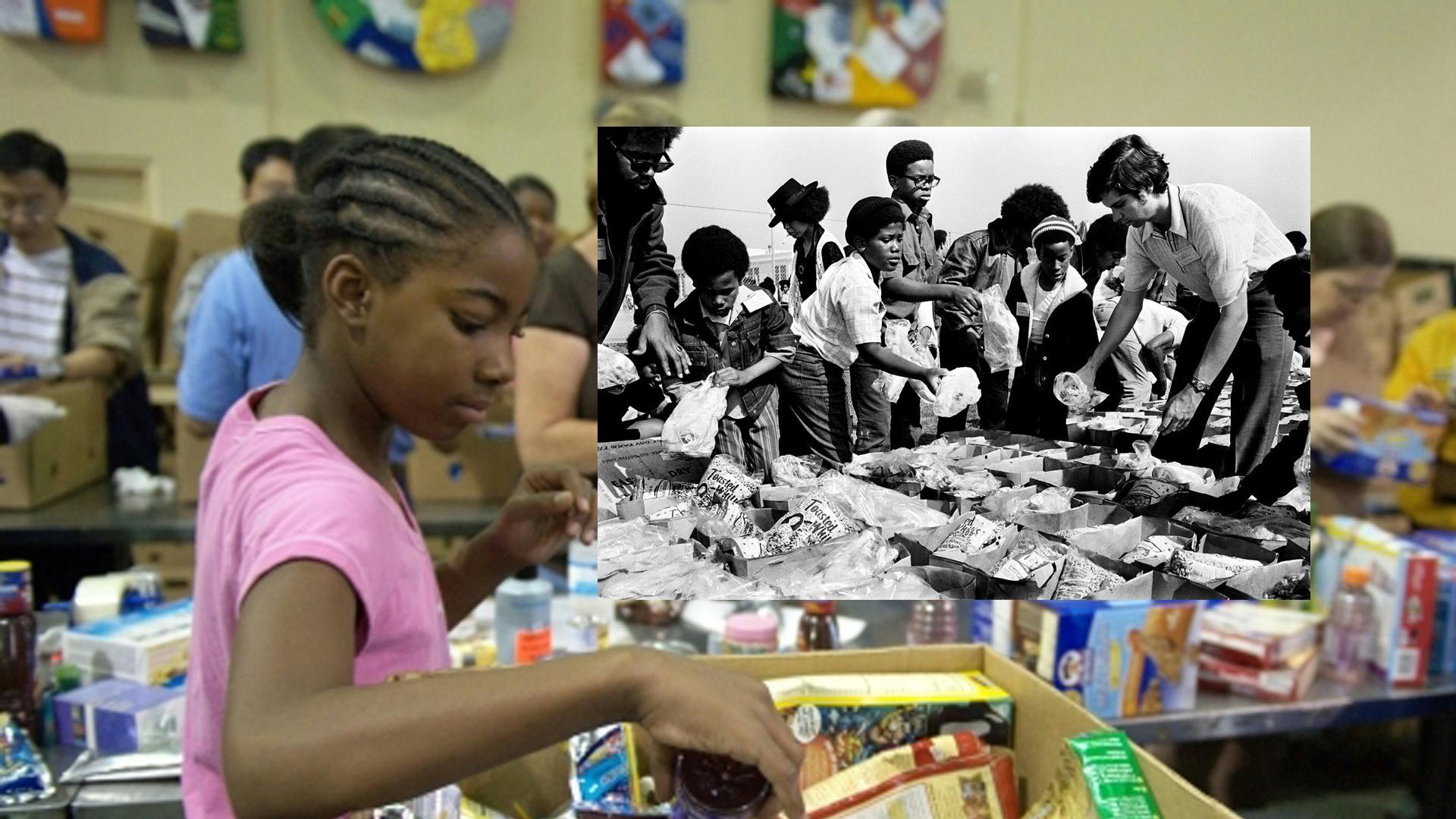
la Cura || the Care (we want) by A. Pomarico
A contribution to the Italian Contemporary Art Forum

S. Federici, G. Esteva, M. Fasheh
Ecoversities in Conversation
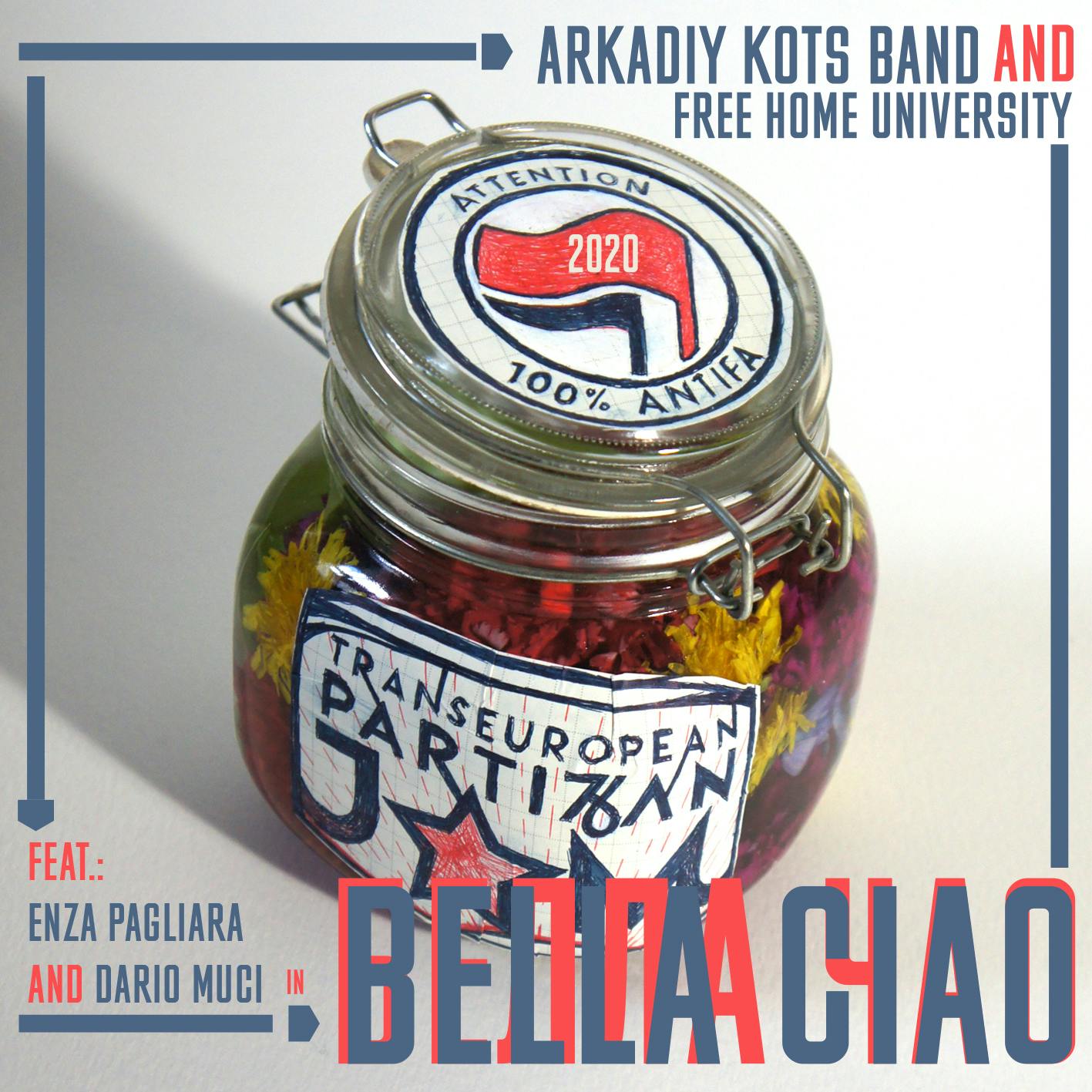
Trans-European Partizan Jam || Chapter 1: Bella Ciao
Chapter 1
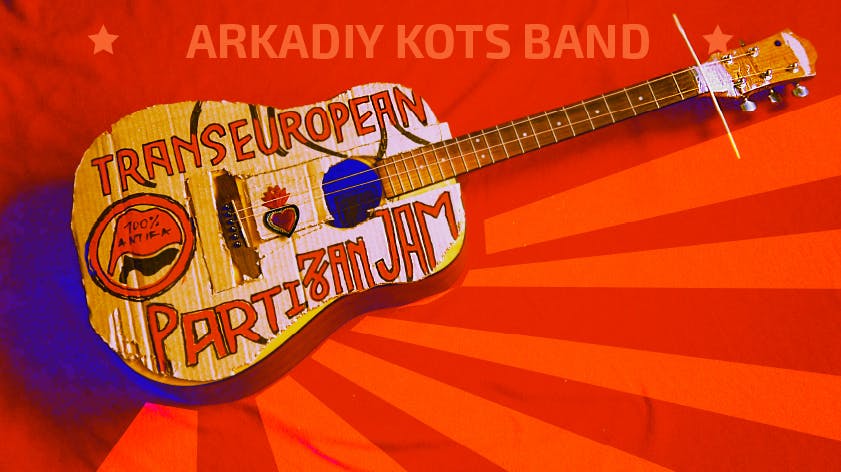
Antifascism for the Future? Live Music and more
live concert online
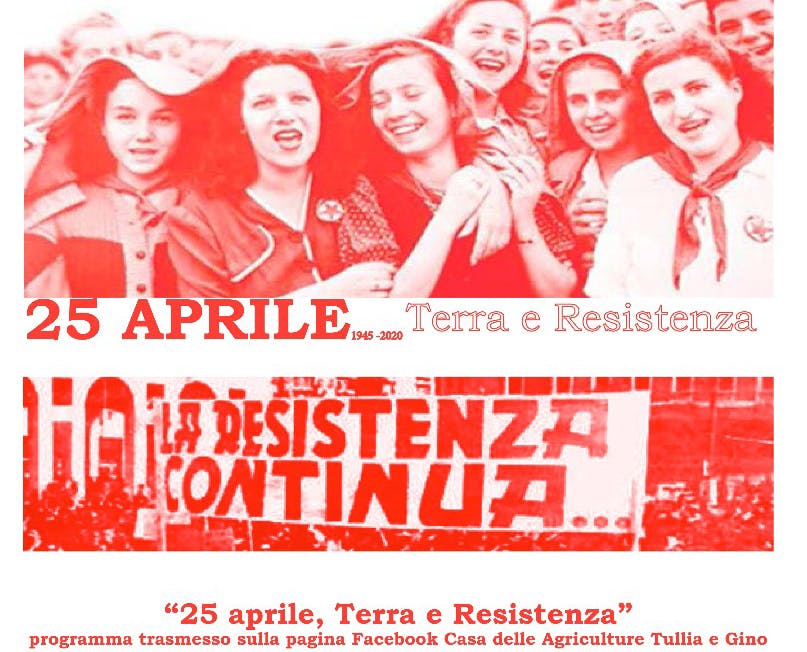
Bella Ciao teach-in: pedagogies of Antifascism
April 25 || Castiglione d'Otranto
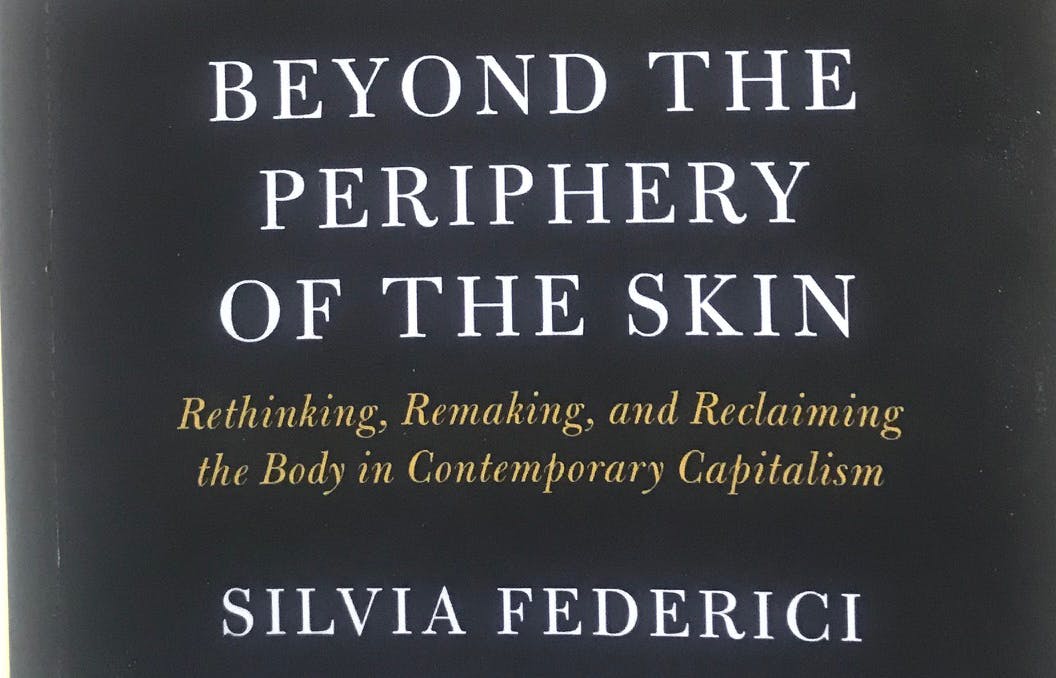
S. FEDERICI's NEW BOOK
acknowledgements

CALL for POSTERS
Women's Strike NYC Street Fest
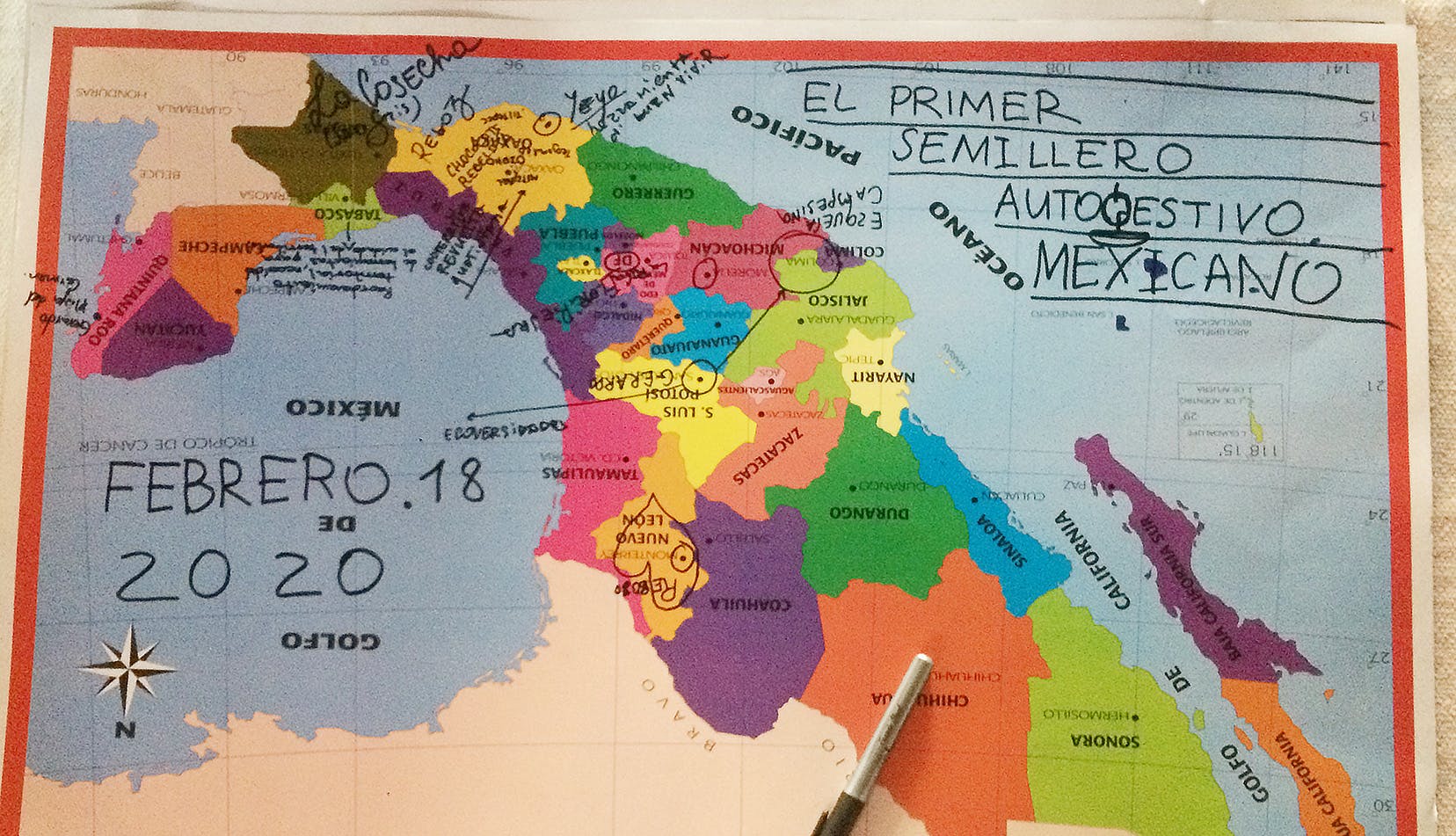
Oaxaca || Forms of R-existence
El Primer Semillero

Polit-Informatsia Under the Mango Tree
02.02.-07.02.2020
Free Home on the news
La Repubblica & Telerama
Ecoversities Europea || Gathering at the Threshold
27.12.2019 - 03.01.2020
People of Flour... @ Lo Spirito del Grano
Chto Delat is back to Casa delle Agricullture
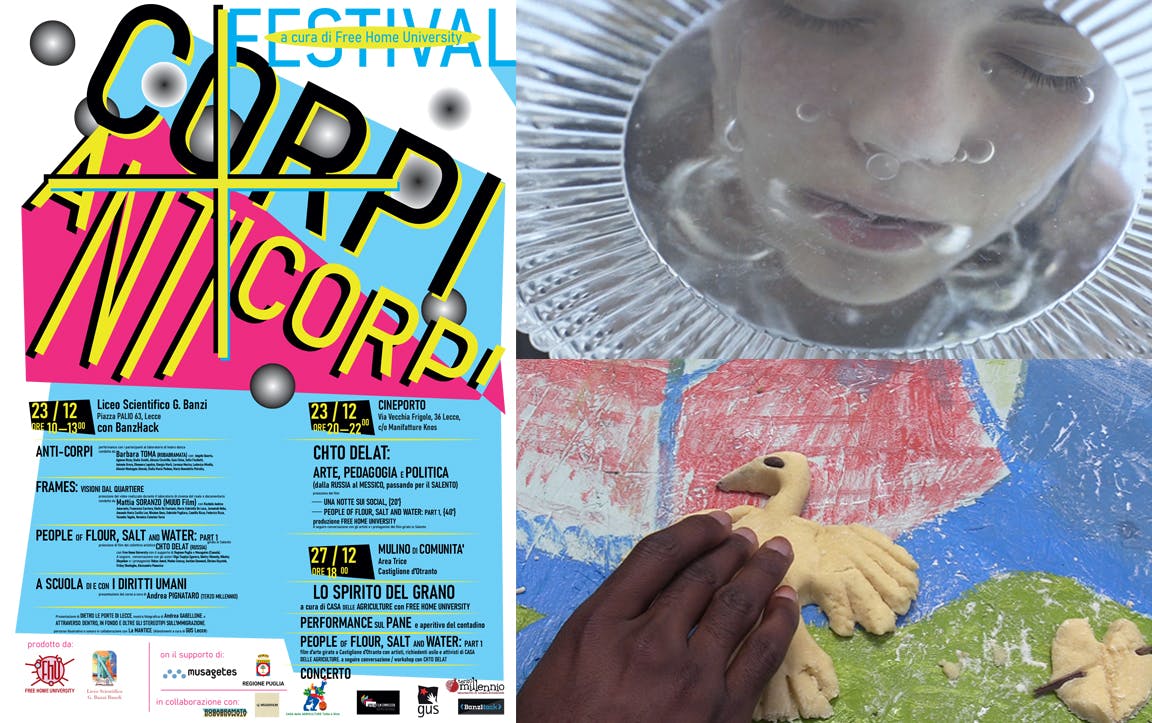
Corpi+Anticorpi Festival of FHU (Italian announcement)
23-27 Dec 2019 || Lecce
Altar to Our Teachers
Pedagogies of the Dead
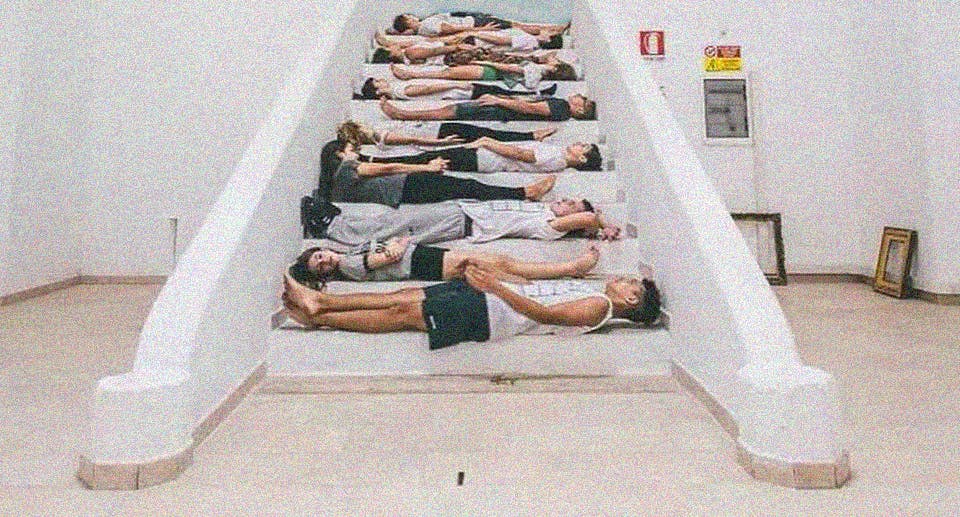
Back to School: FHU @ Banzi, Liceo Scientifico, Lecce
Oct || Dec, 2019
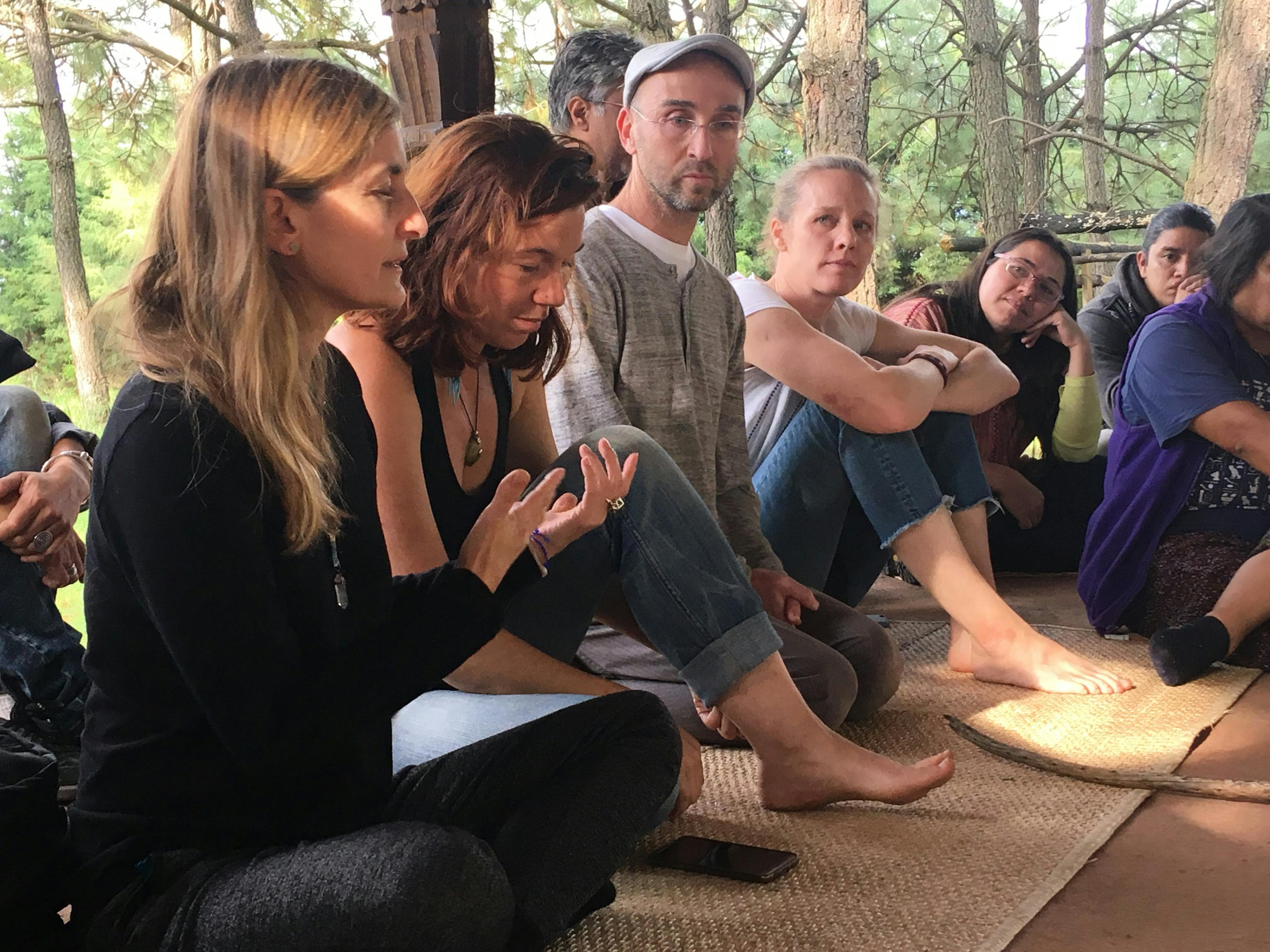
FHU@Ecoversities Global in Mexico
Oct26 || Nov2

SHIFTER 24 || NYC Art Book Fair
book launch, Spt 22, 2019
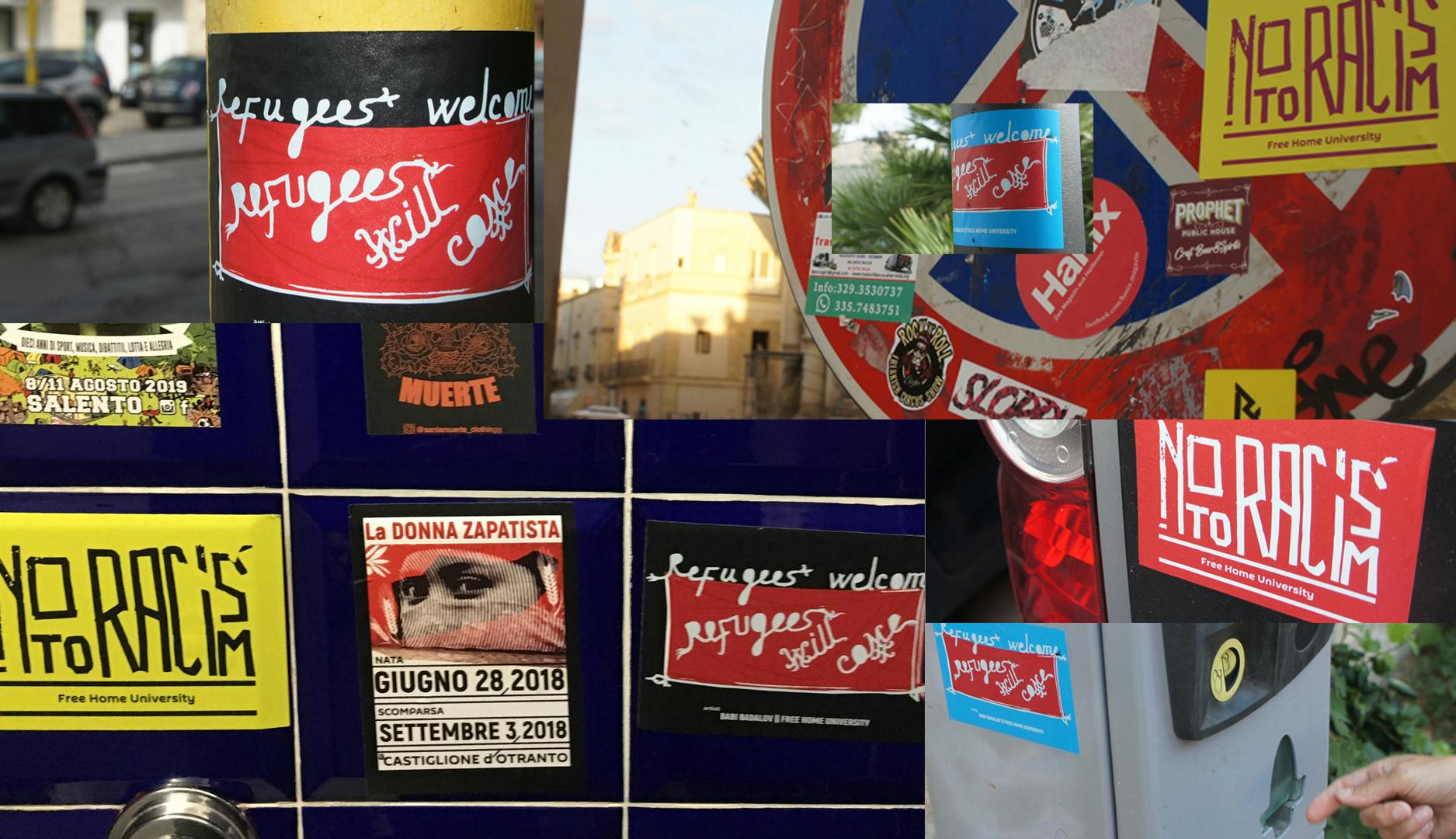
Wearing Our Questions || Sticking On Our Mottos
FHU's Mutual-Aid Fund and Graphic Guerrilla Campaign
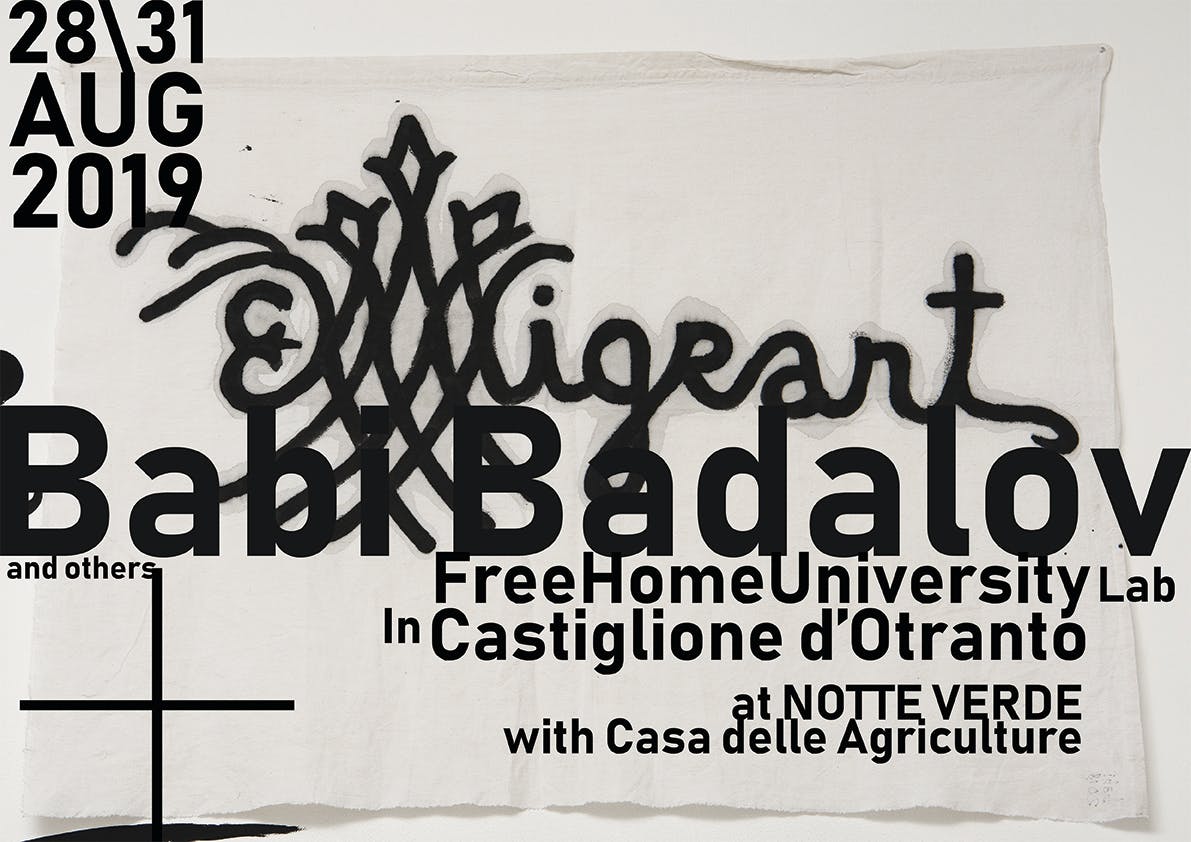
BABI BADALOV || Refugees Will Come {and more}
RURALI MURALI || FHU Lab
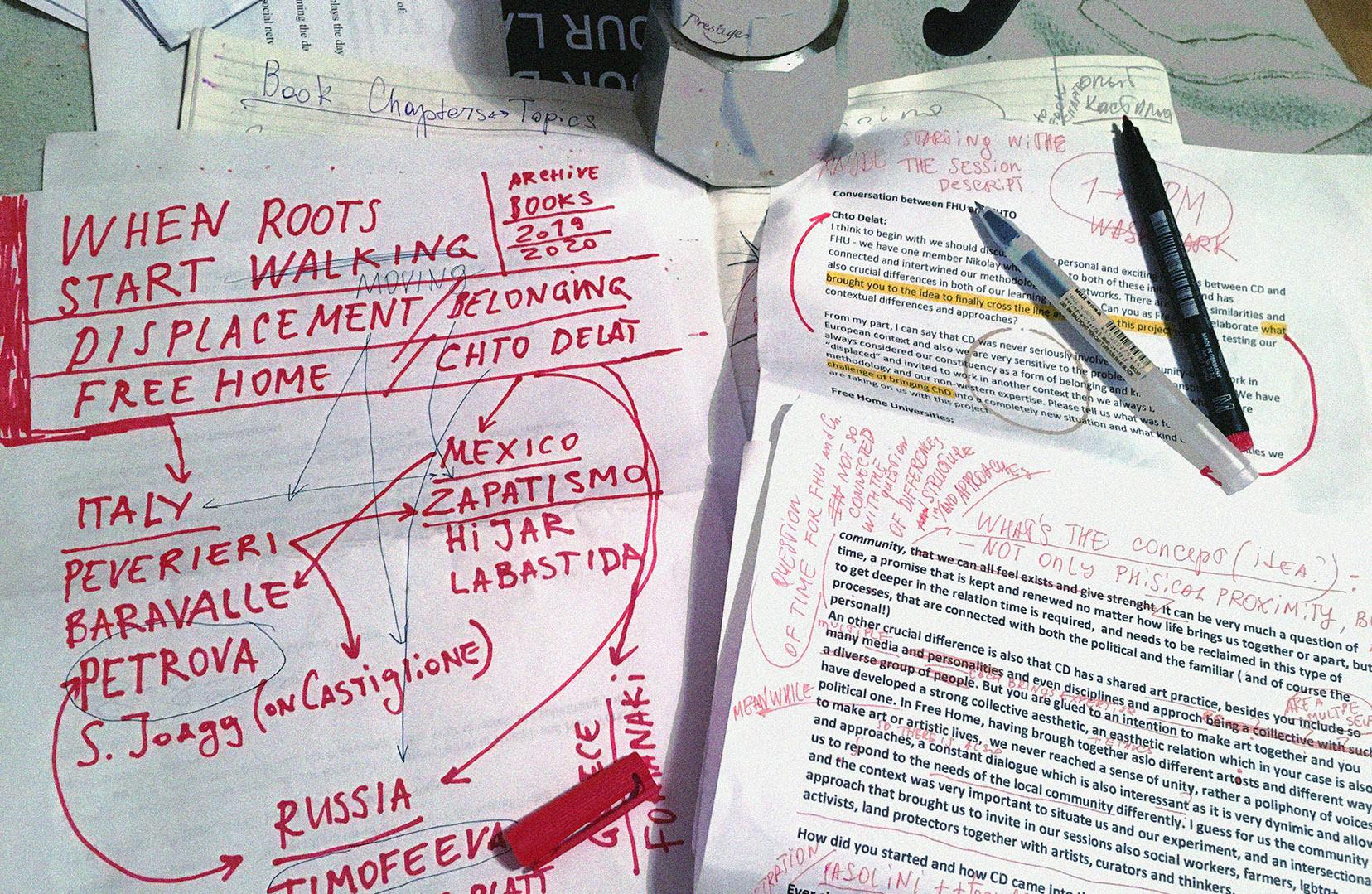
EDITORIAL MEETING
Specchiulla || July 2019
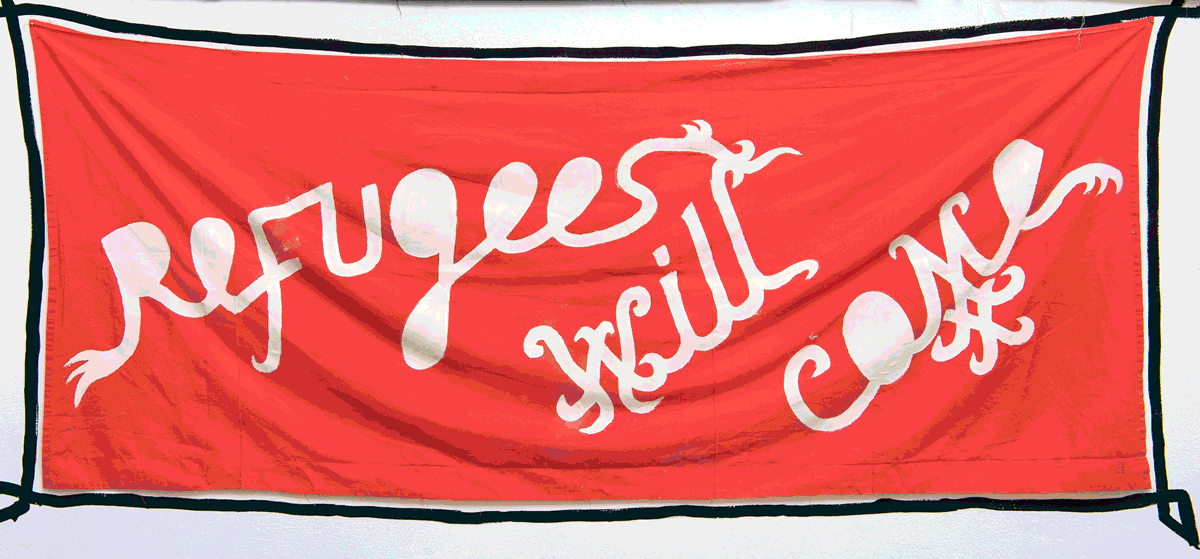
Silvia Federici, Chto Delat, Babi Badalov: Summer Sessions 2019
FHU summer sessions
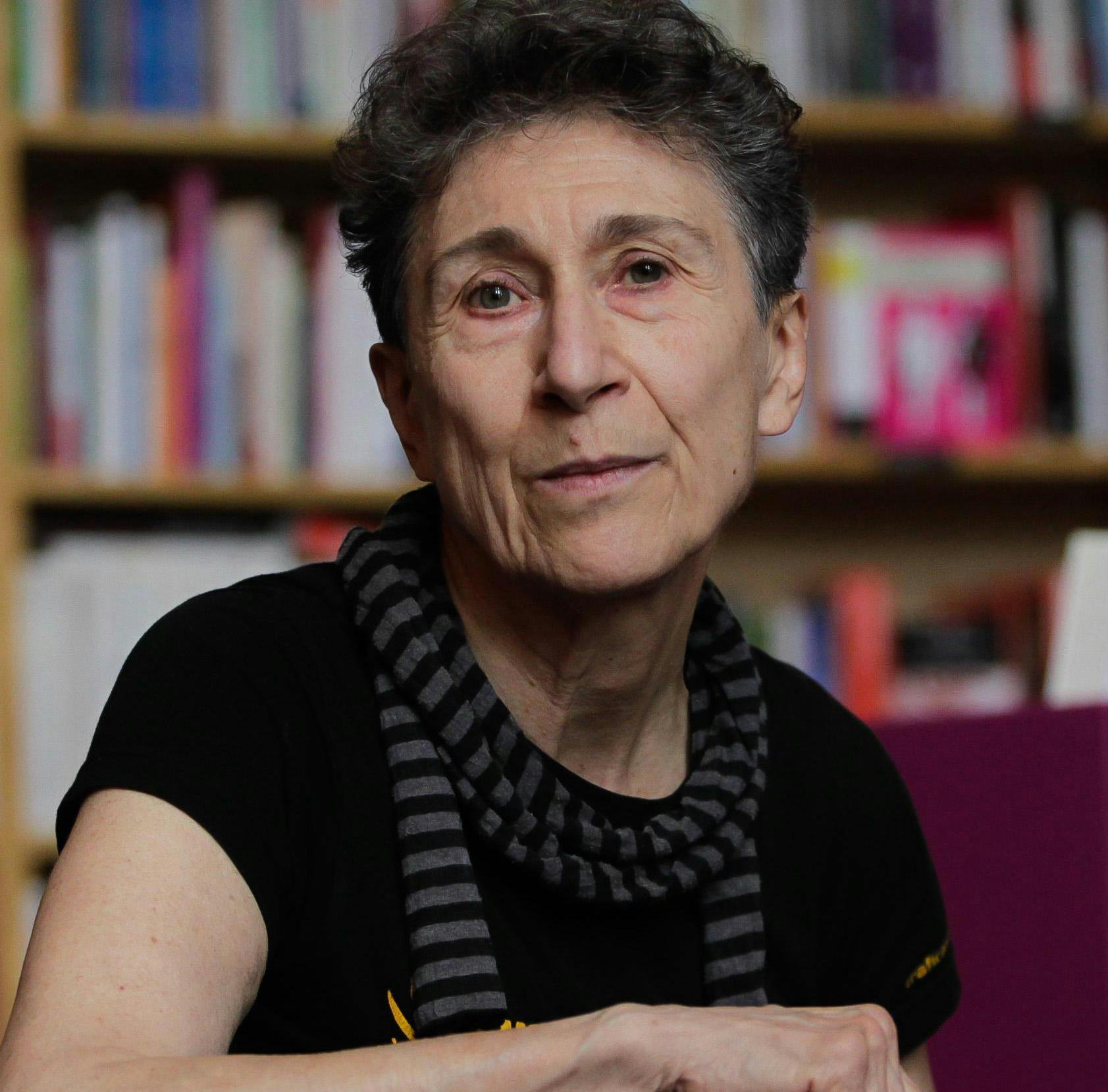
SILVIA FEDERICI || a public talk || S.a.L.E. DOCKS
June 9th, 18:30 || S.a.L.E. DOCKS, Venice
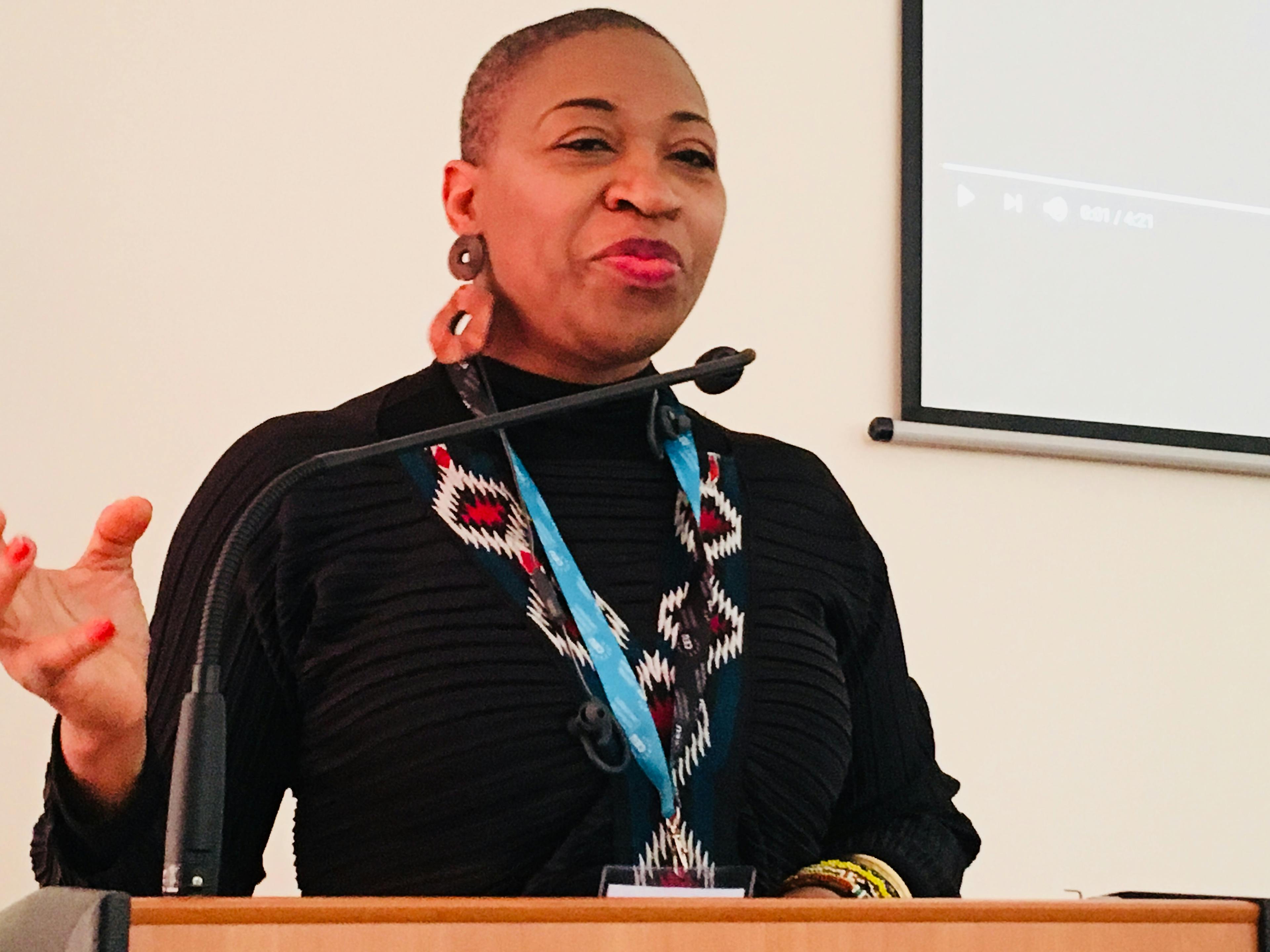
Publics, Pedagogies & Policies
FHU Budapest-2019
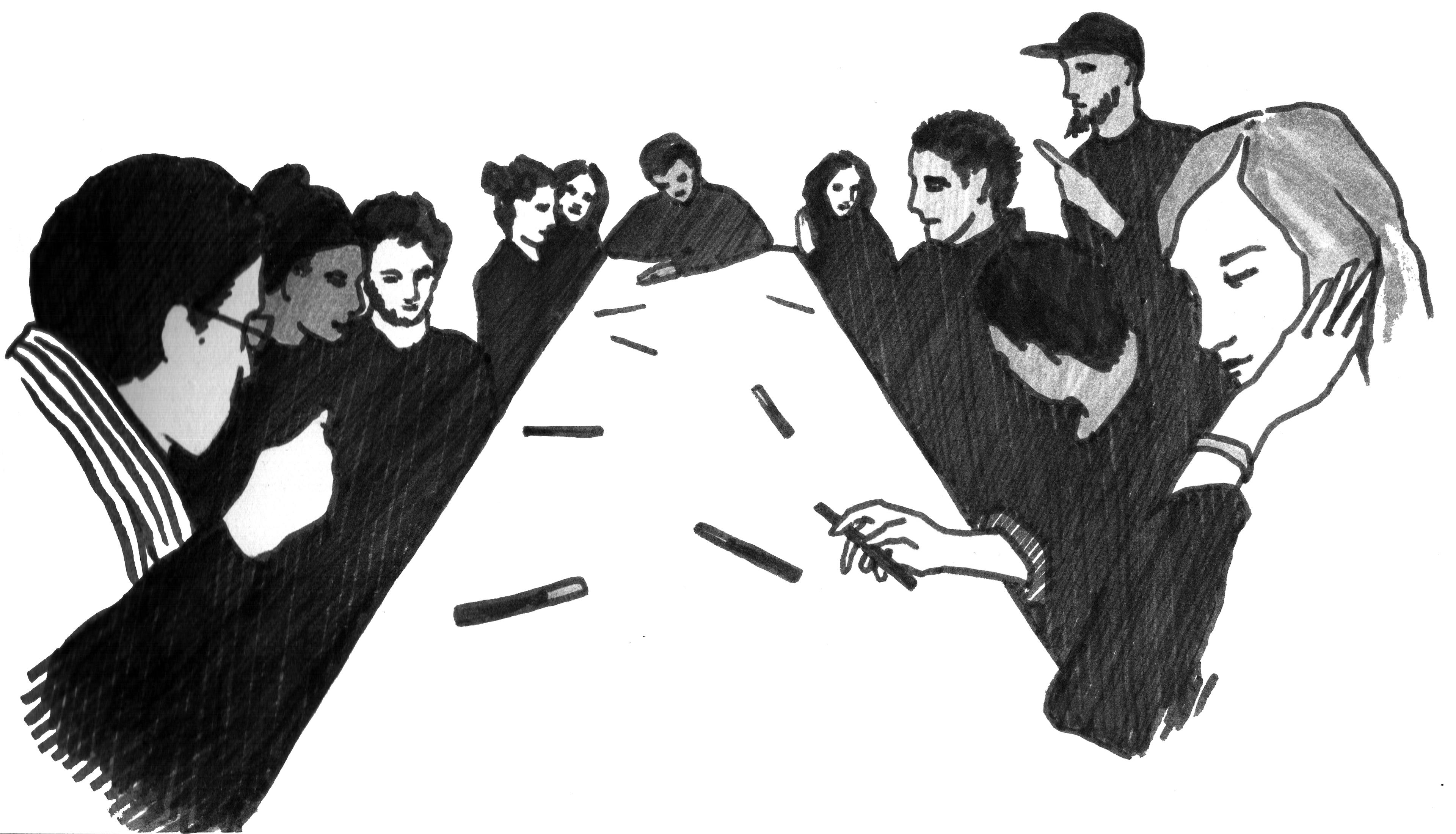
The 8th Floor, NYC. Learn-in: arts, pedagogy and reimagining our existence in dark times
On March 9th Free Home together with Chto Delat is proudly co-hosting a pedagogical event at The 8th Floor (an art venue of Rubin Museum of Art, Shelley and Donald Rubin Foundation) in New York.
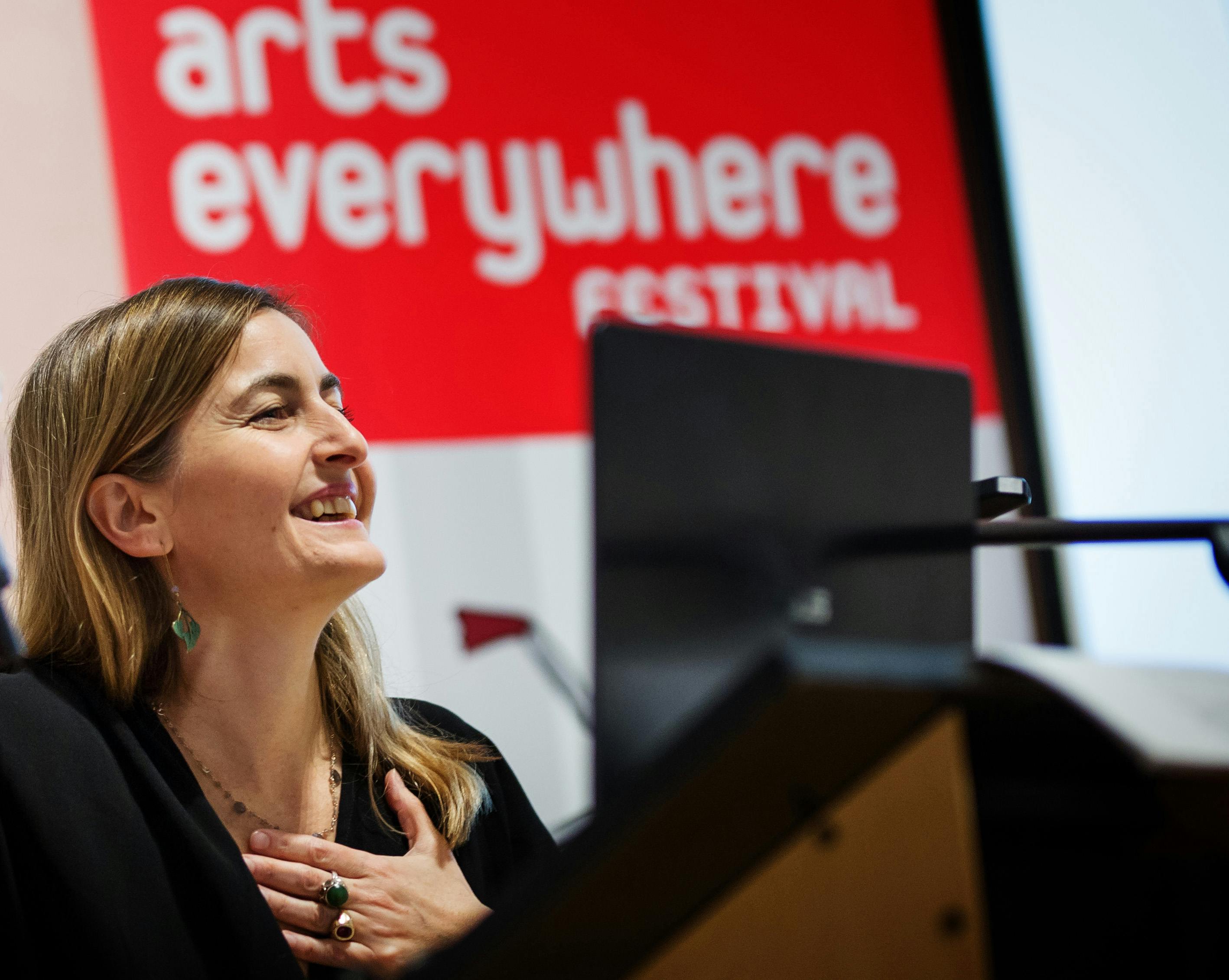
FHU at ArtsEverywhere festival
On January 24 the ArtsEvery festival started in Guelph, Ontario with an opening lecutre presenting pedagogies, practices and urgencies of Free Home University. At the Art Gallery Guelph Alessandra Pomarico gave a talk about the vision, the various articulations and the tools that have emerged during these 5 years. In the room with us Dani D'Emilia, Elwood Jimmy, Shawn Van Sluys, Vanessa Andreotti, Rene Susa, who contributed sharing their perspective and experience of our process.
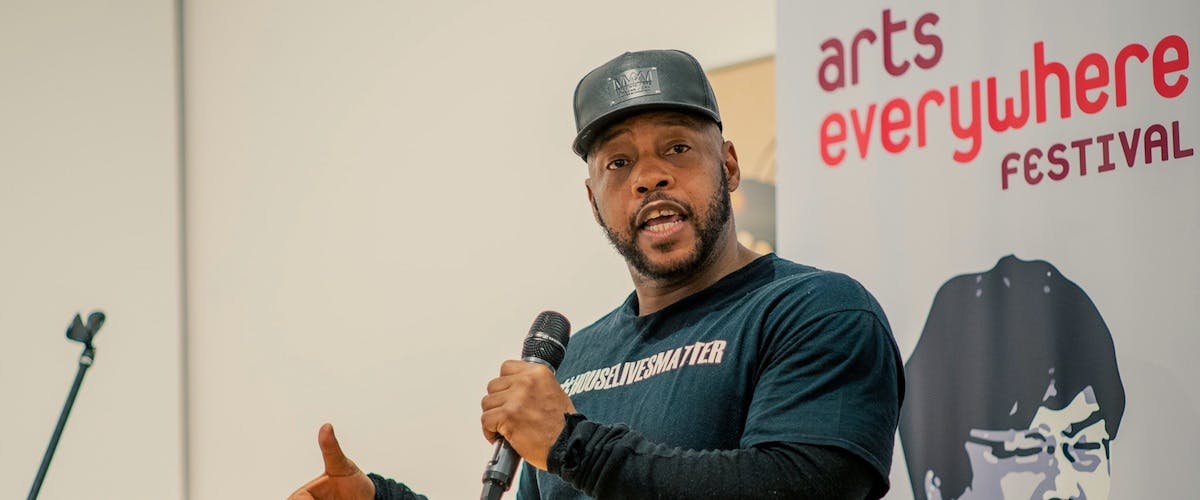
Michael Roberson at the 2018 ArtsEverywhere Festival
in the beginning of 2018 ArtsEverywhere festival in Guelph, Ontario, has started with a speech by our iconic comrade Michael Roberson, activist, historiographer of the house\ballroom community, artist, member of many organizations and father of dozen of houses. Free Home University is proud to announce that 2019 festival will start with an activation by Alessandra Pomarico co-piloted by Nikolay





